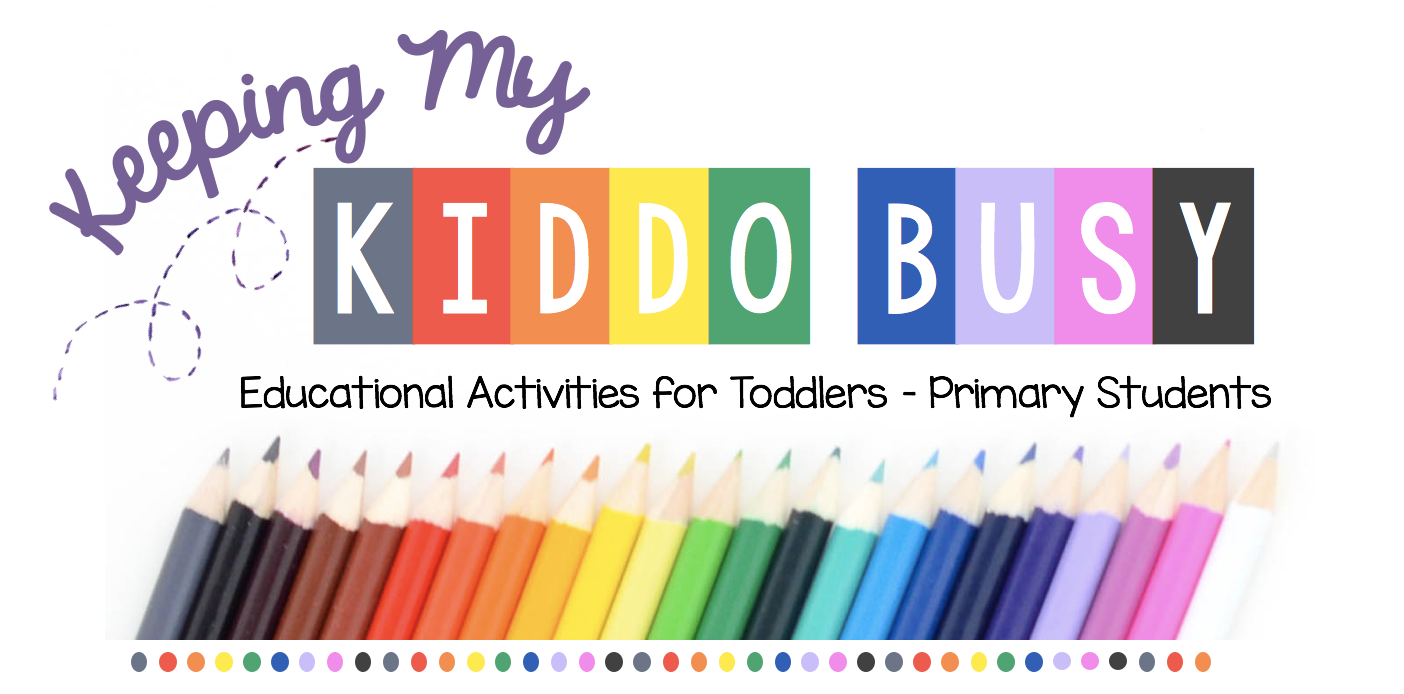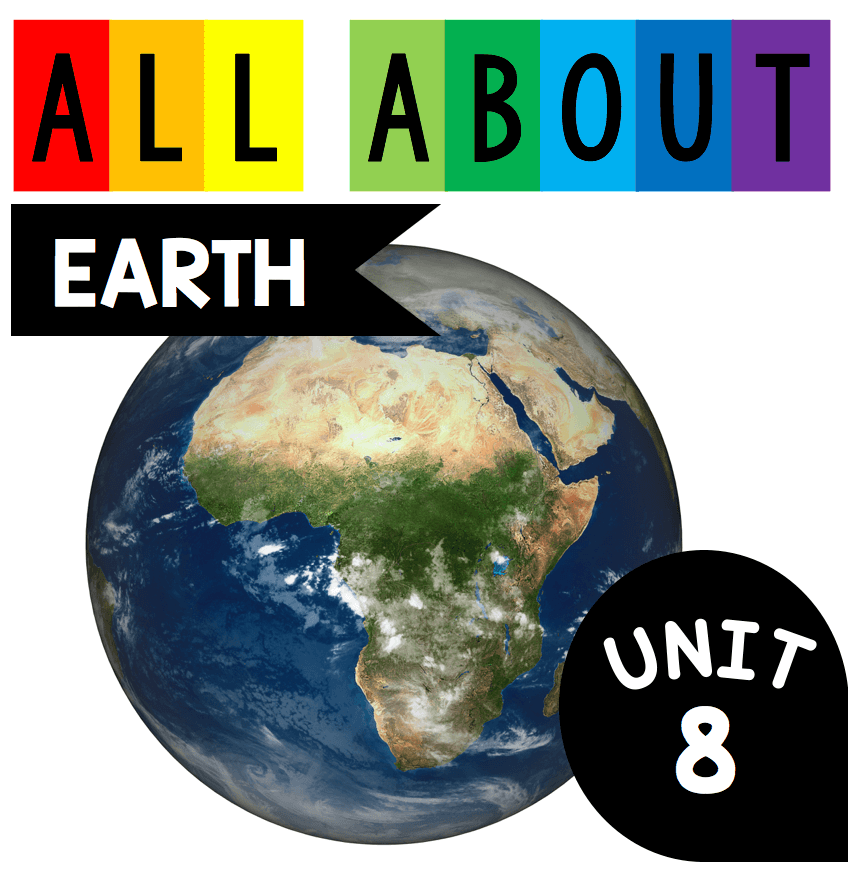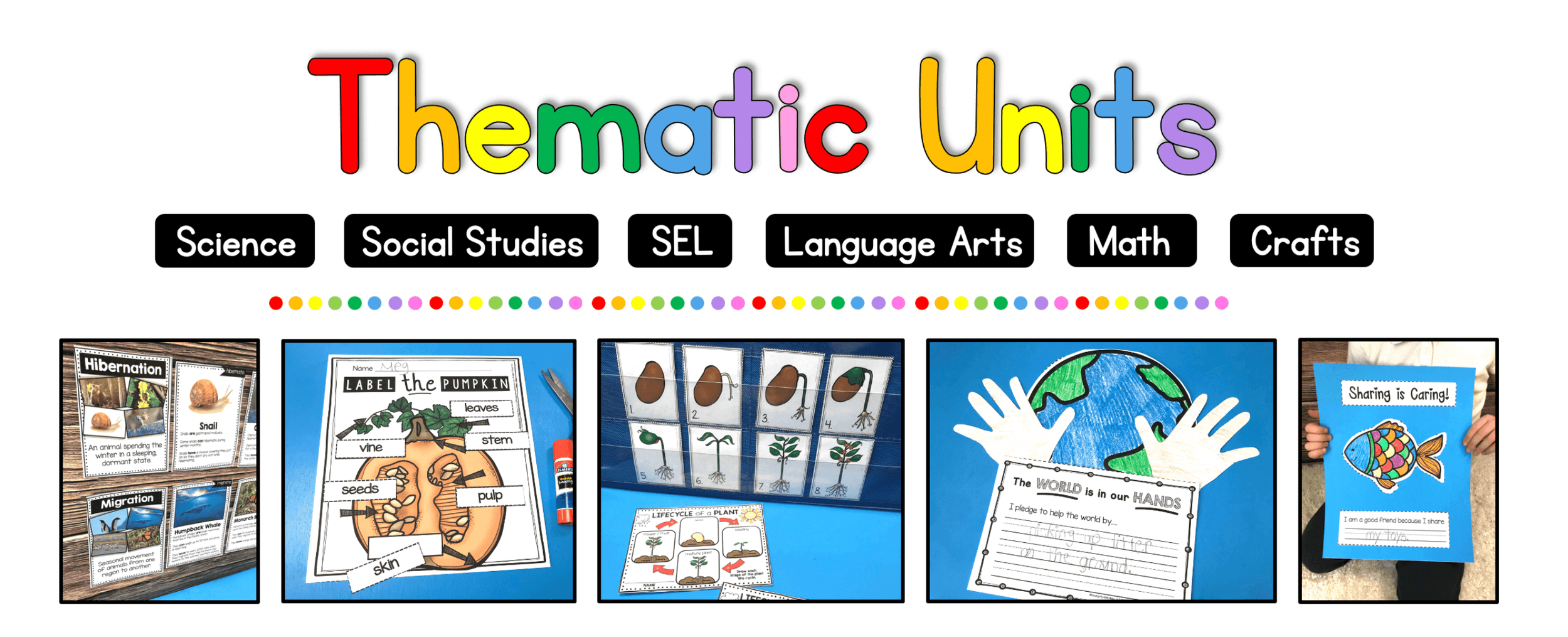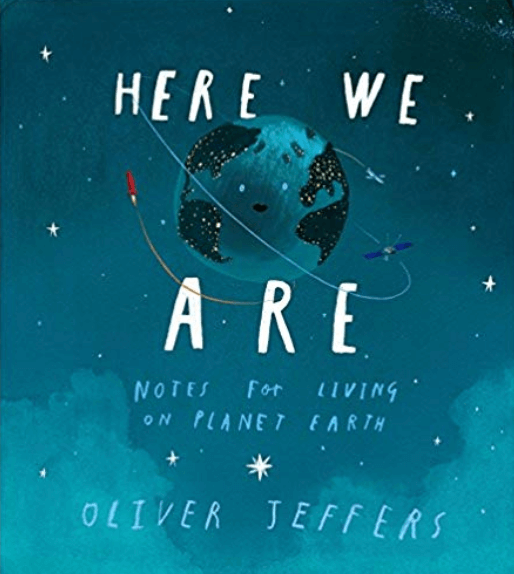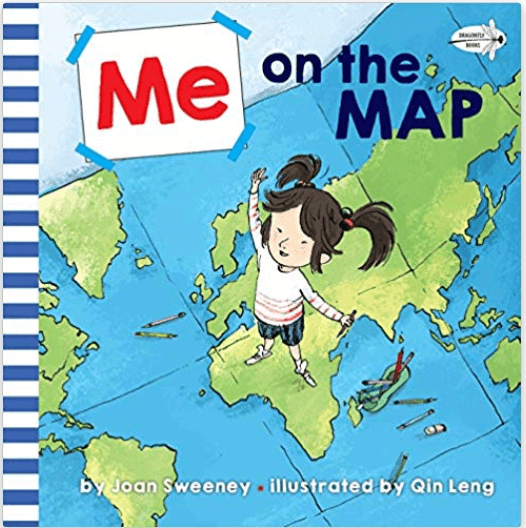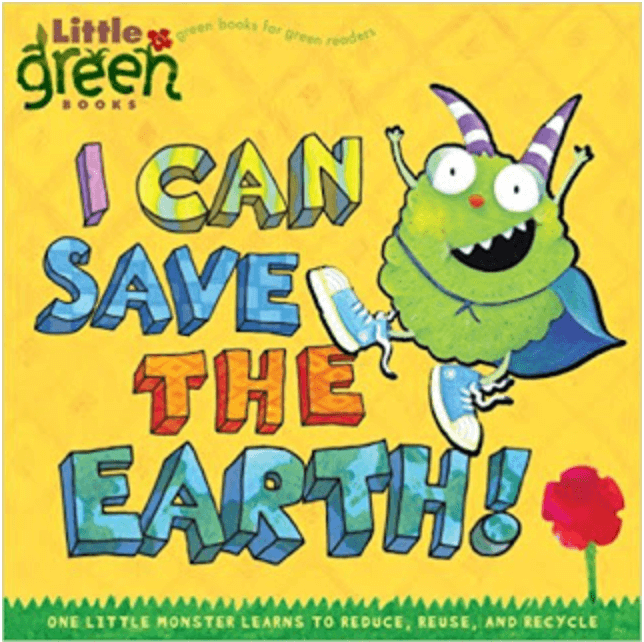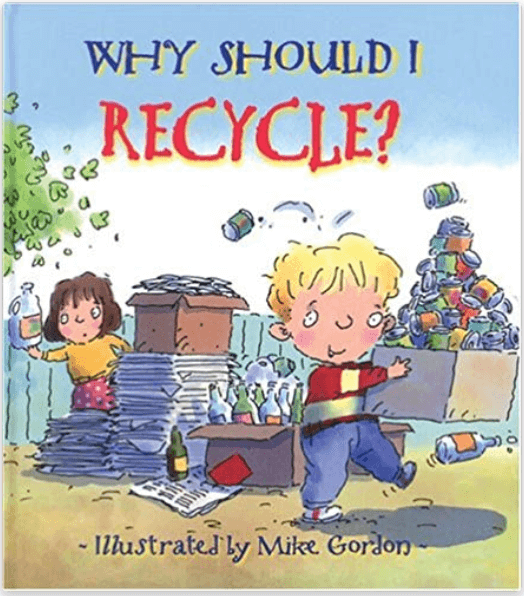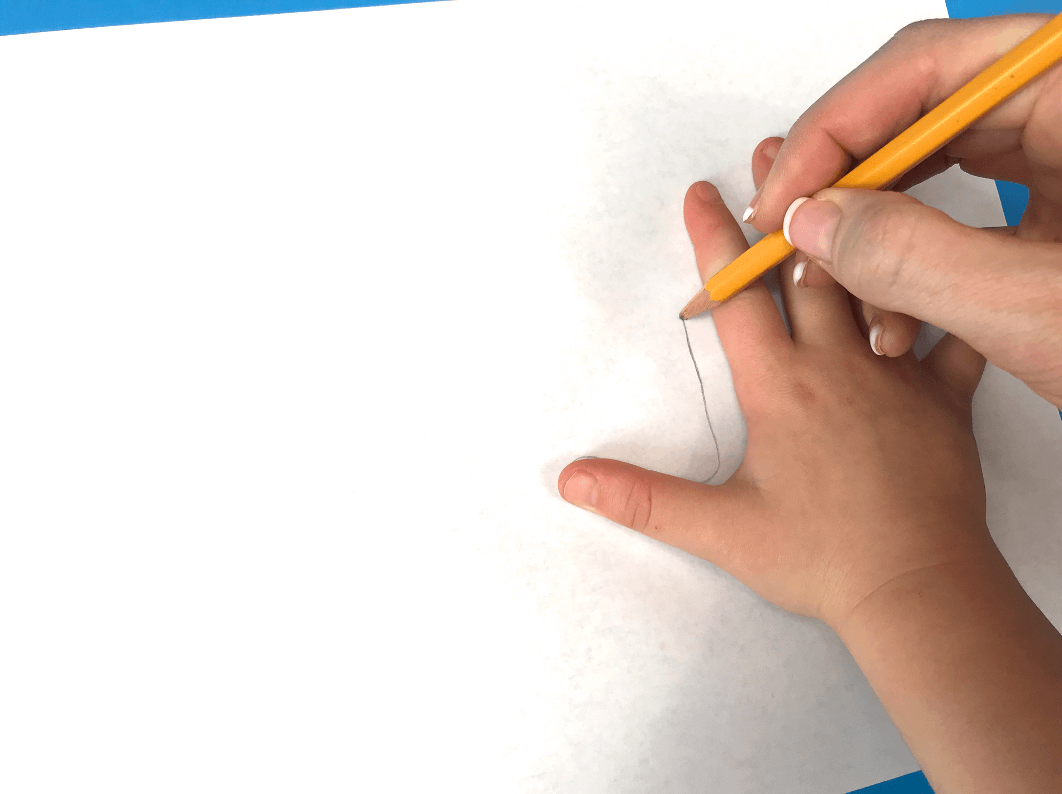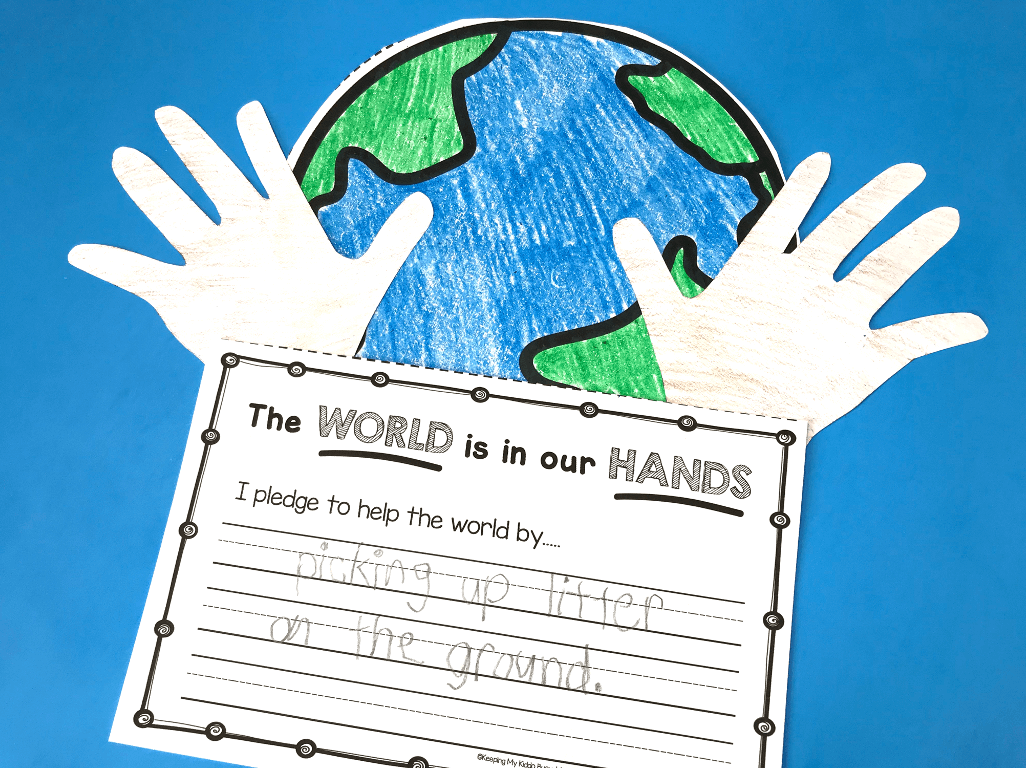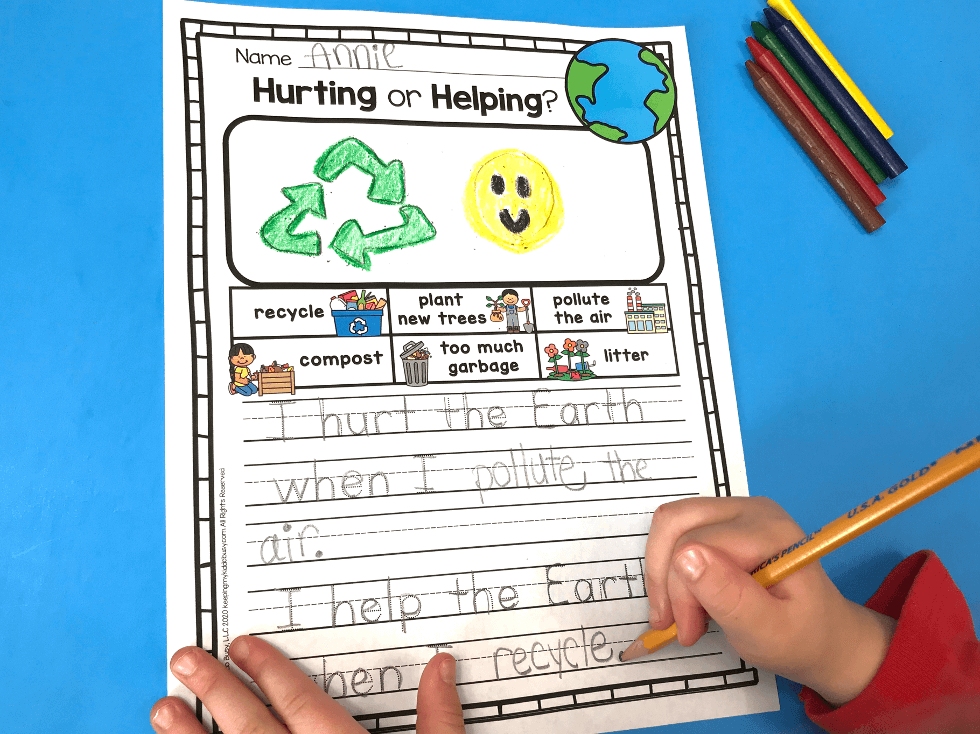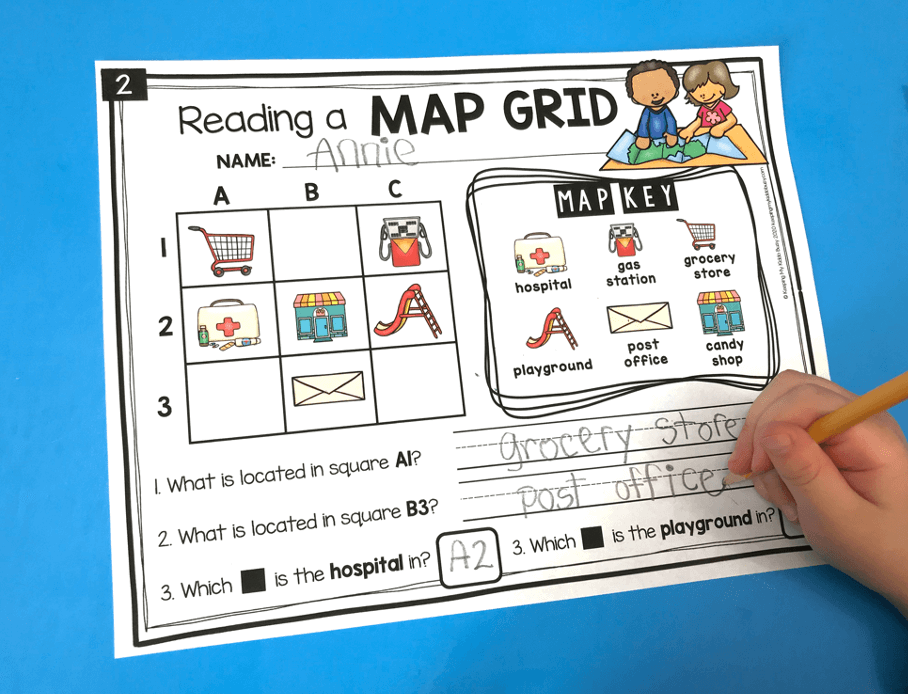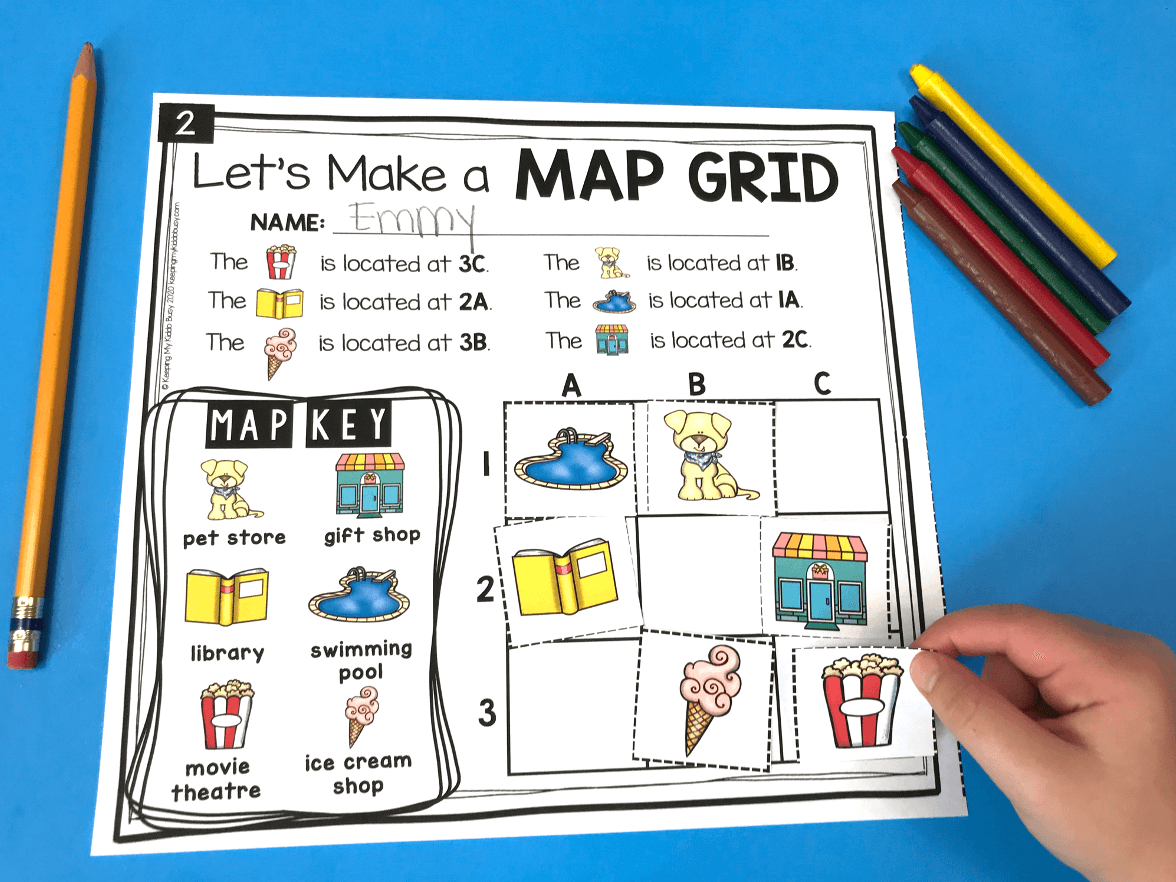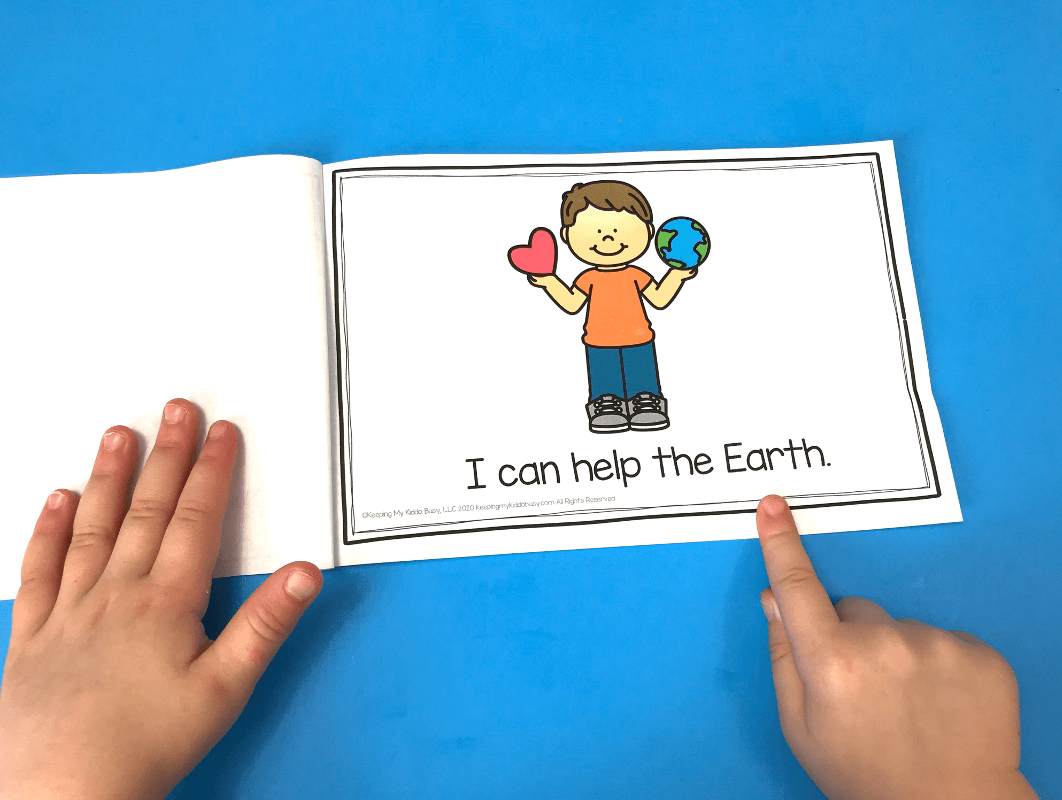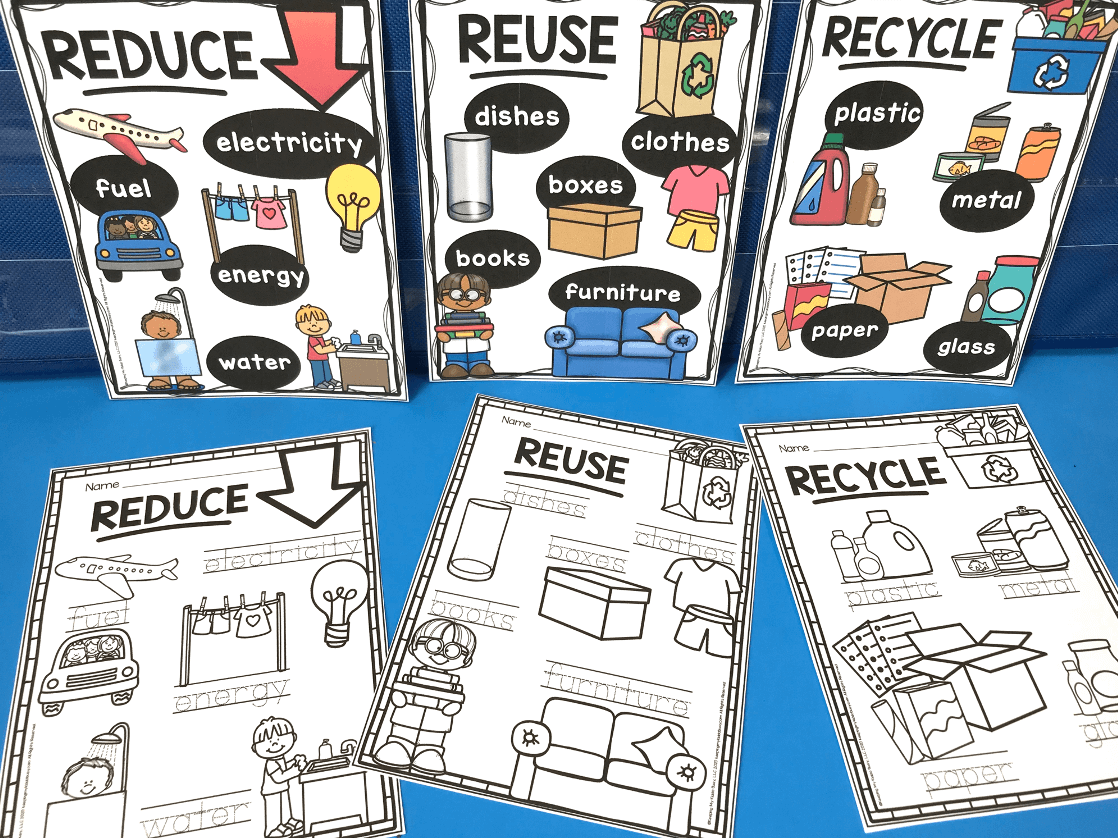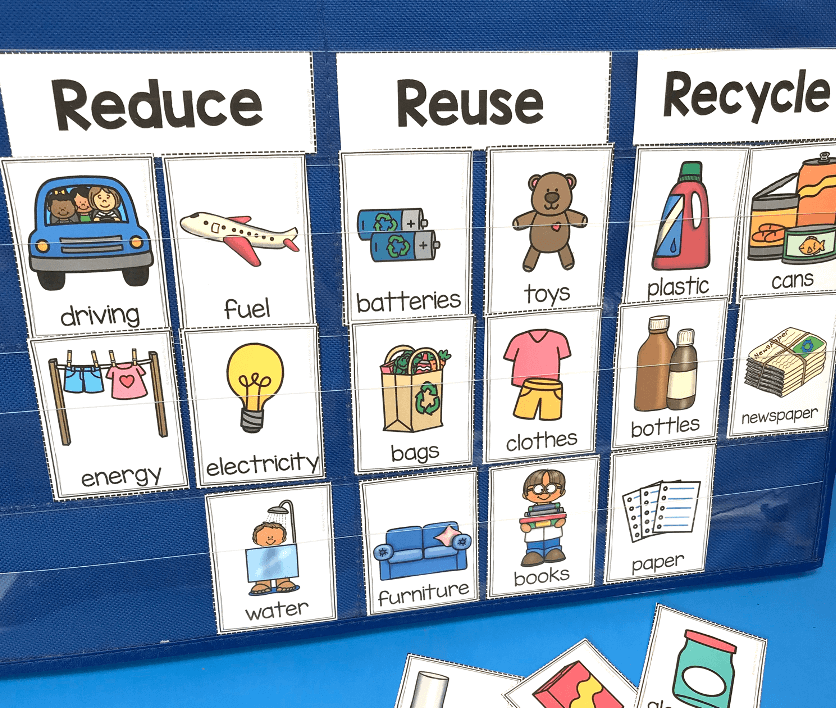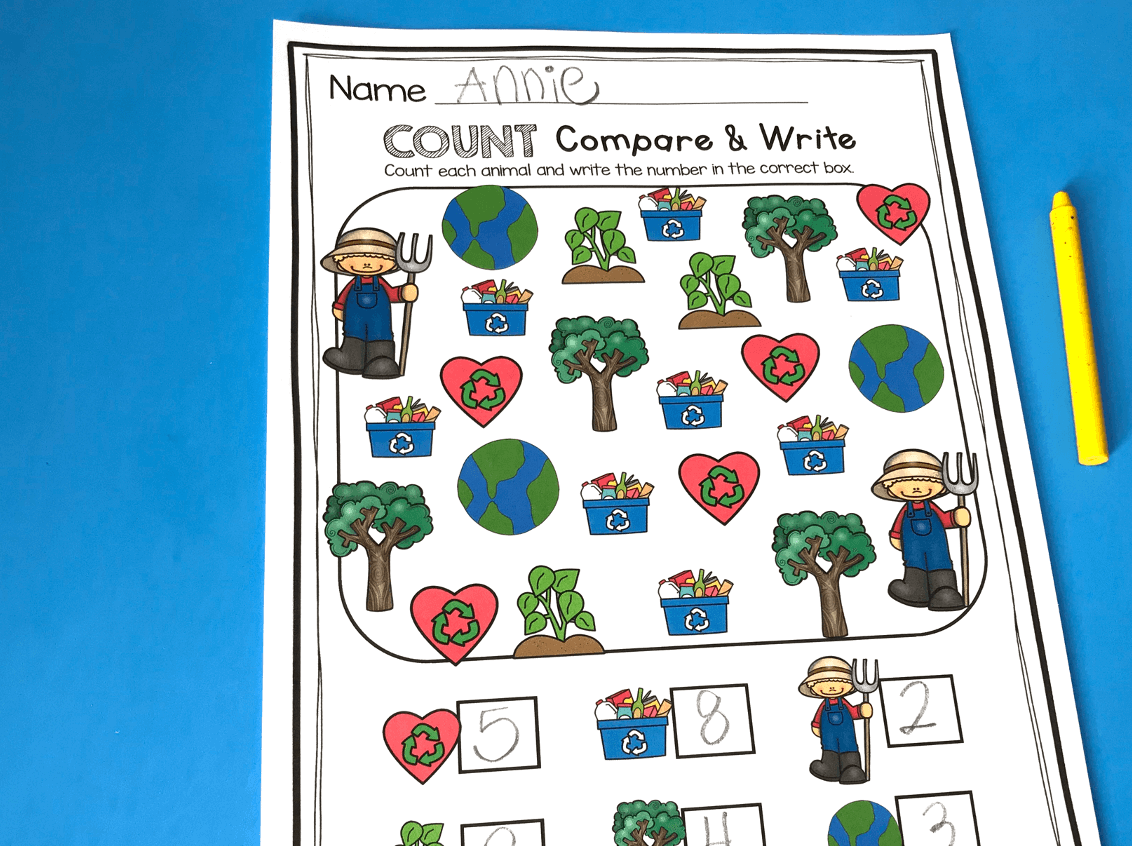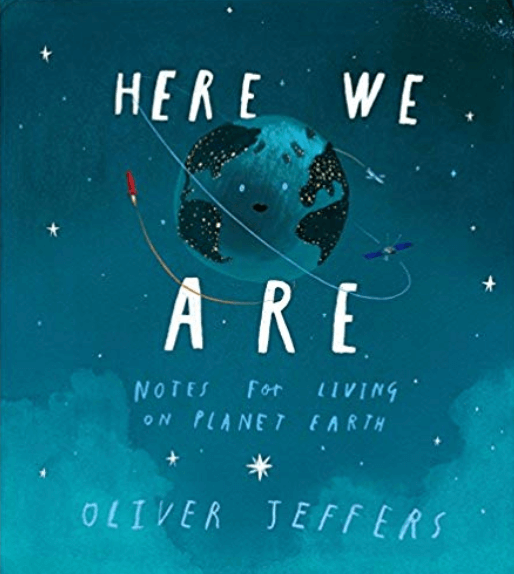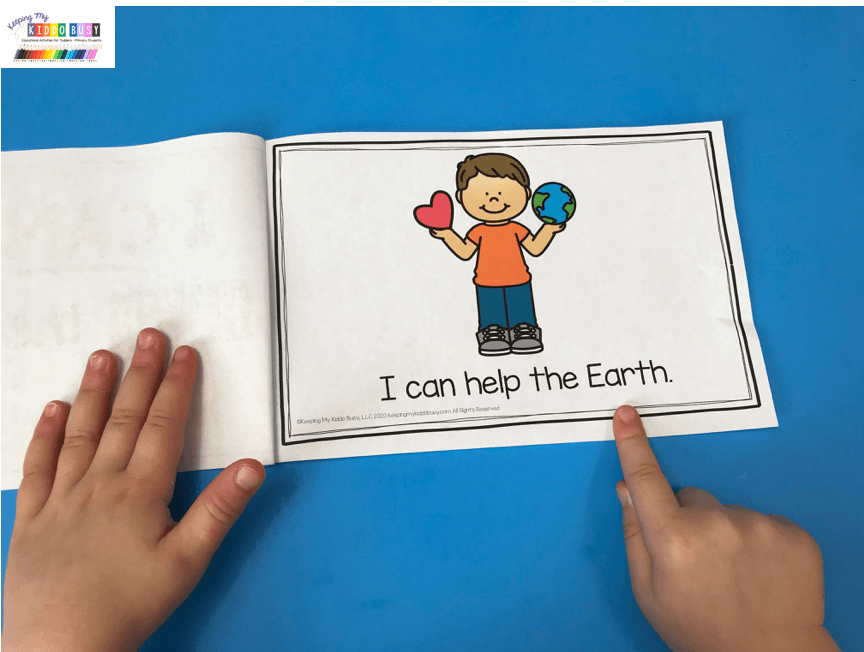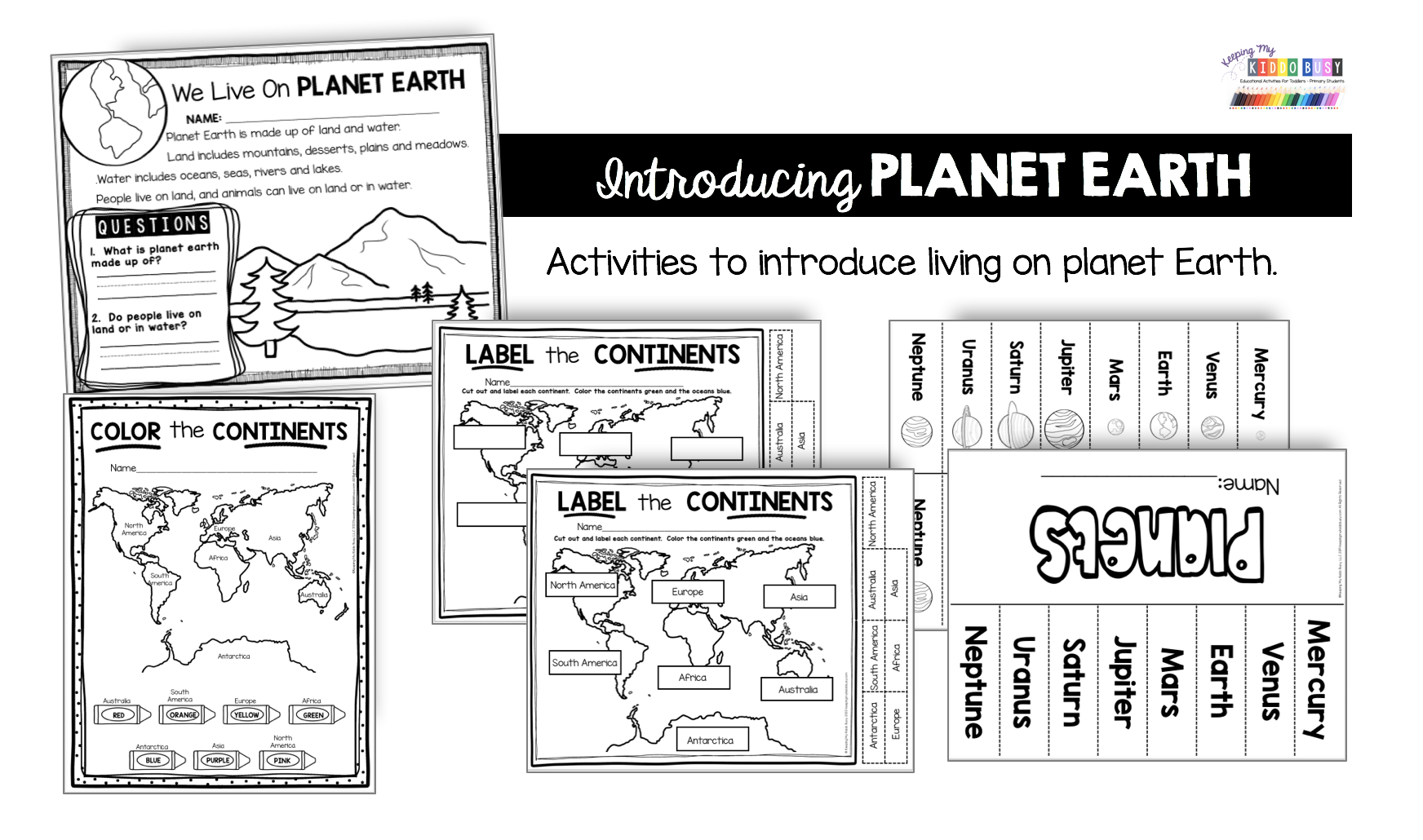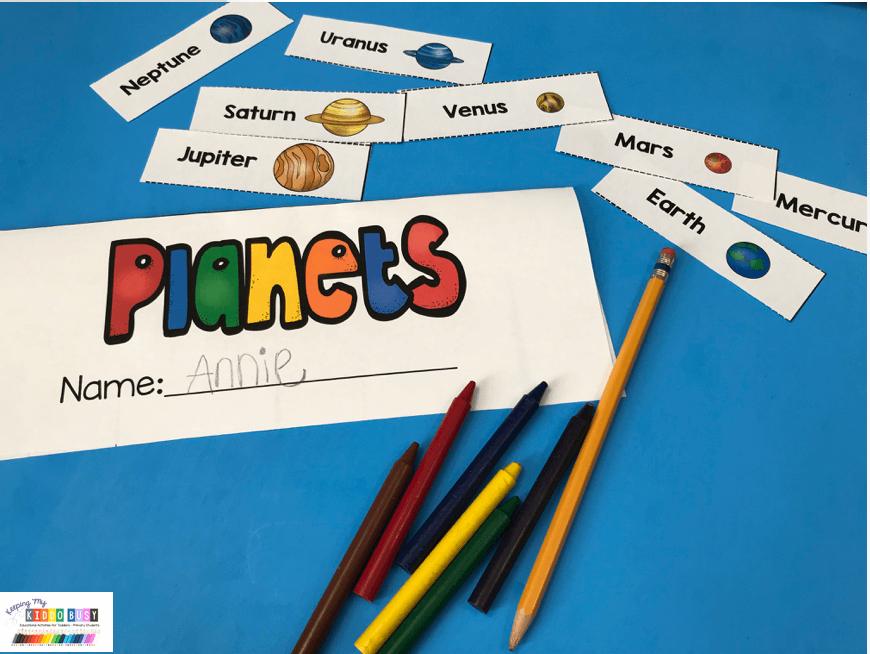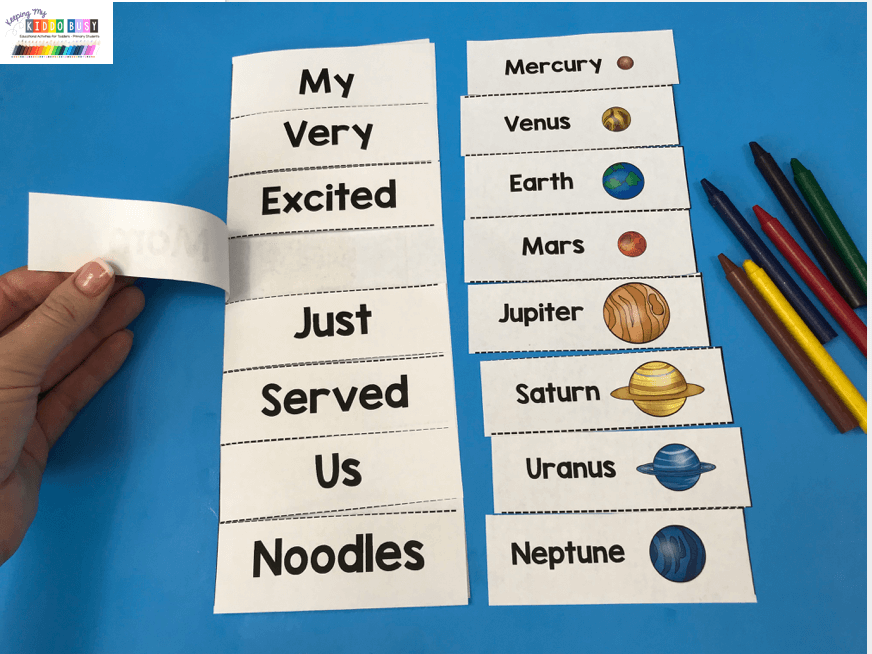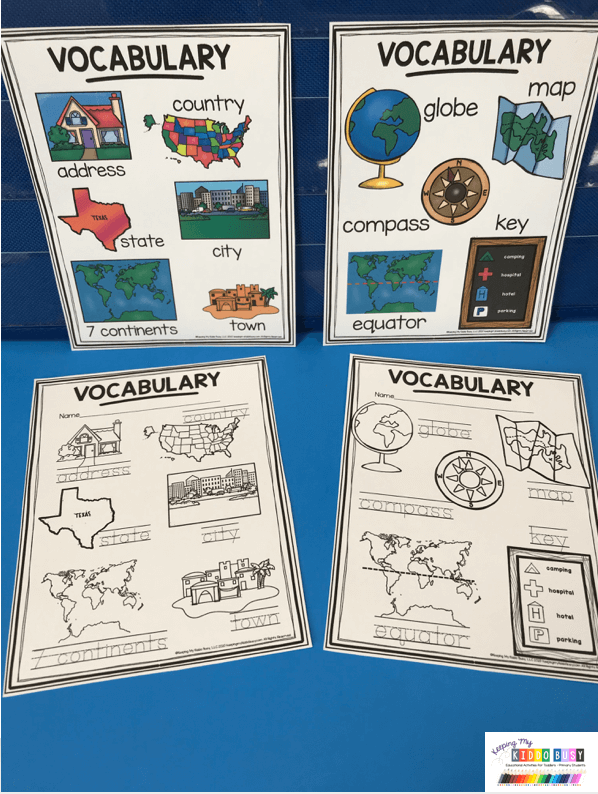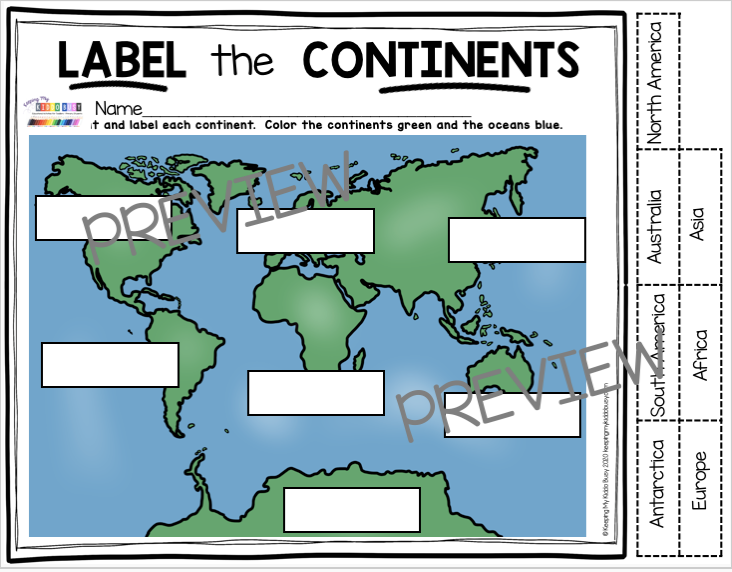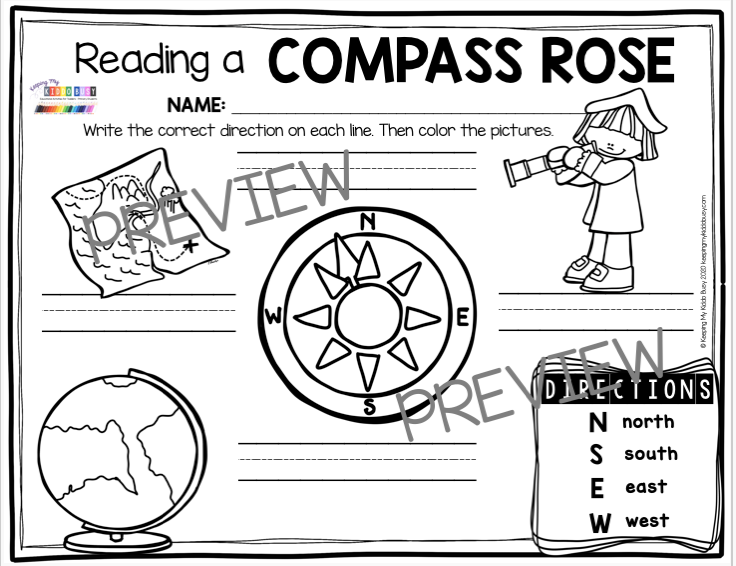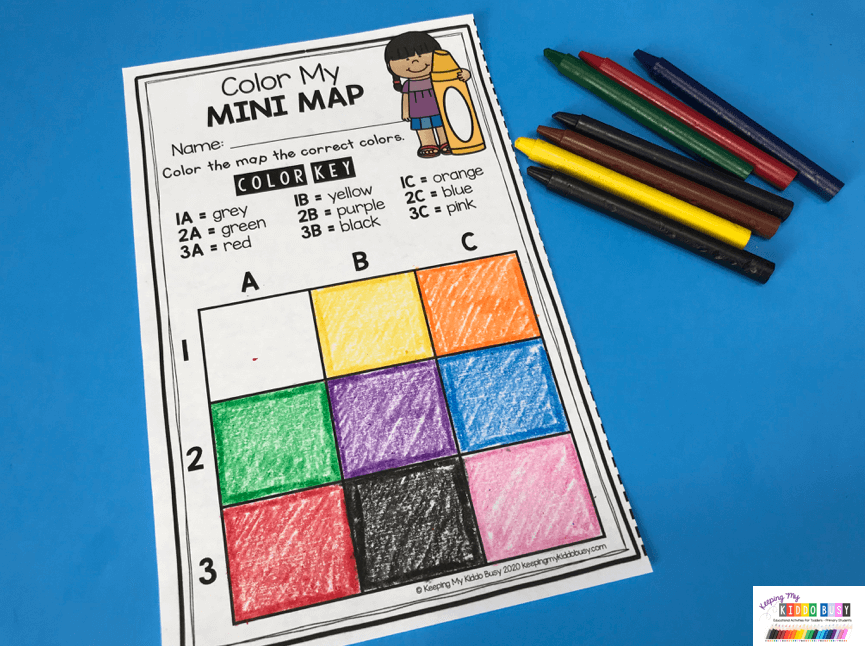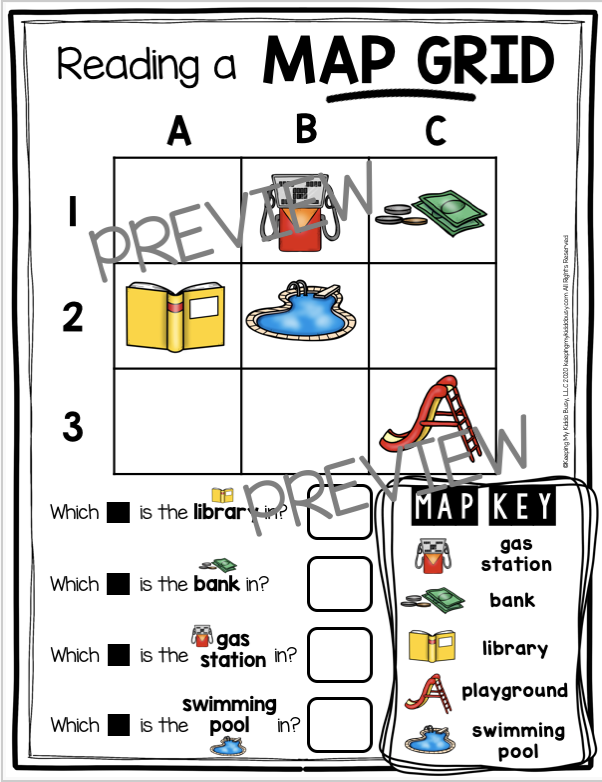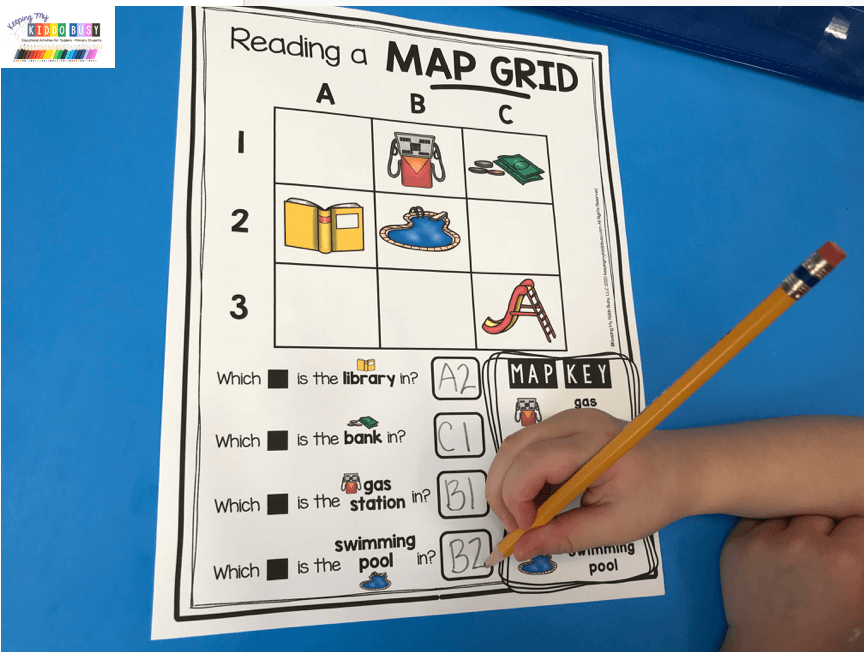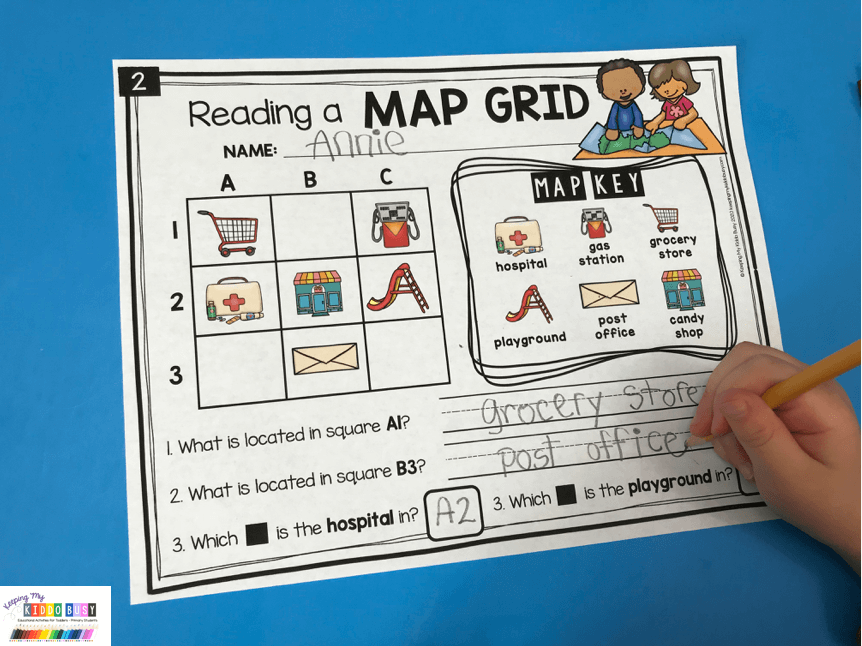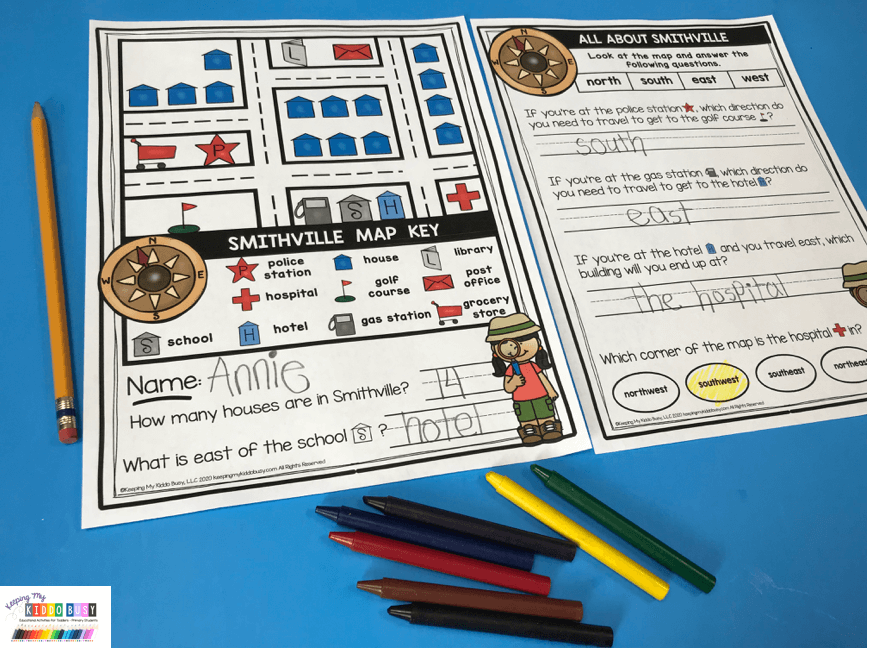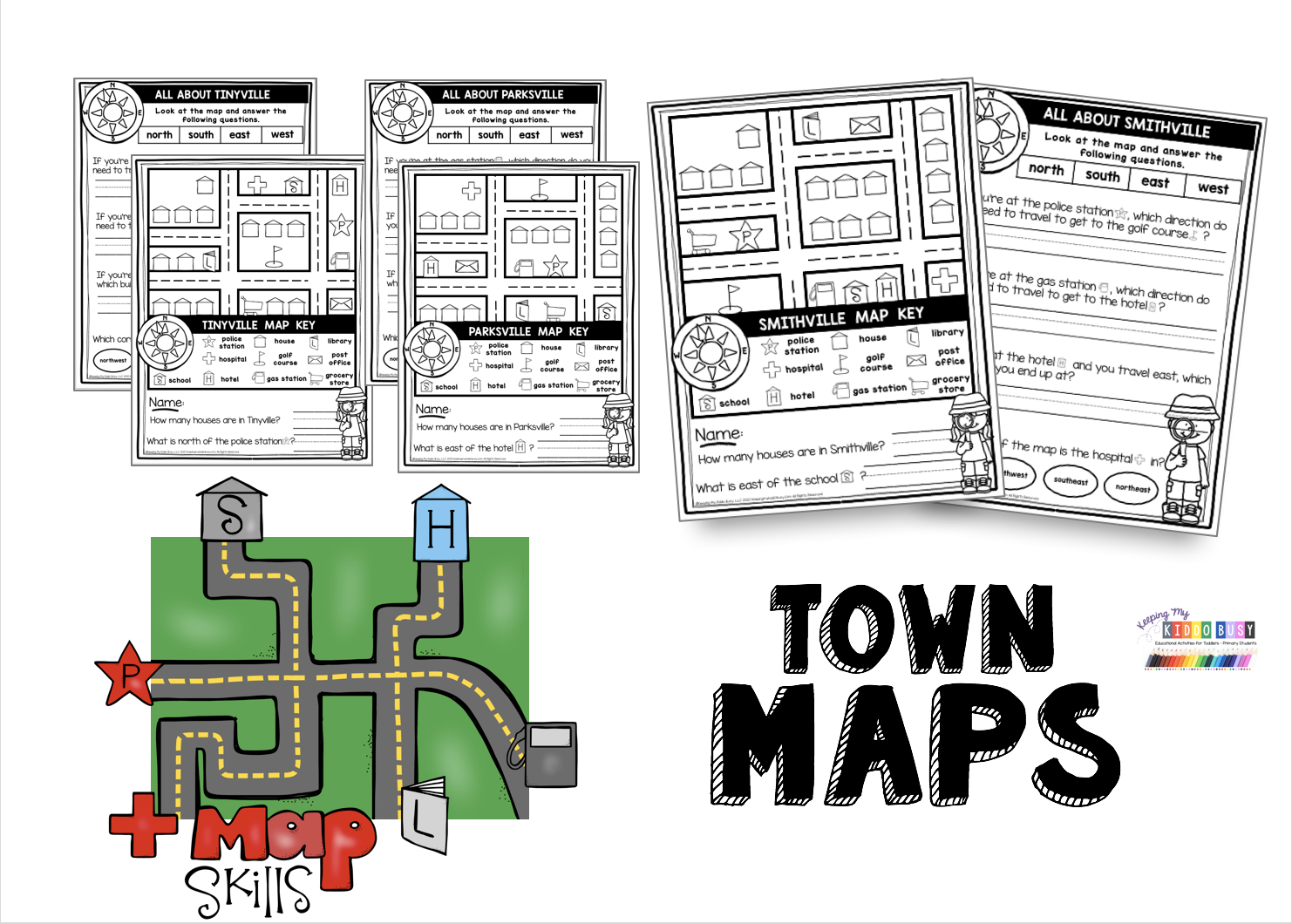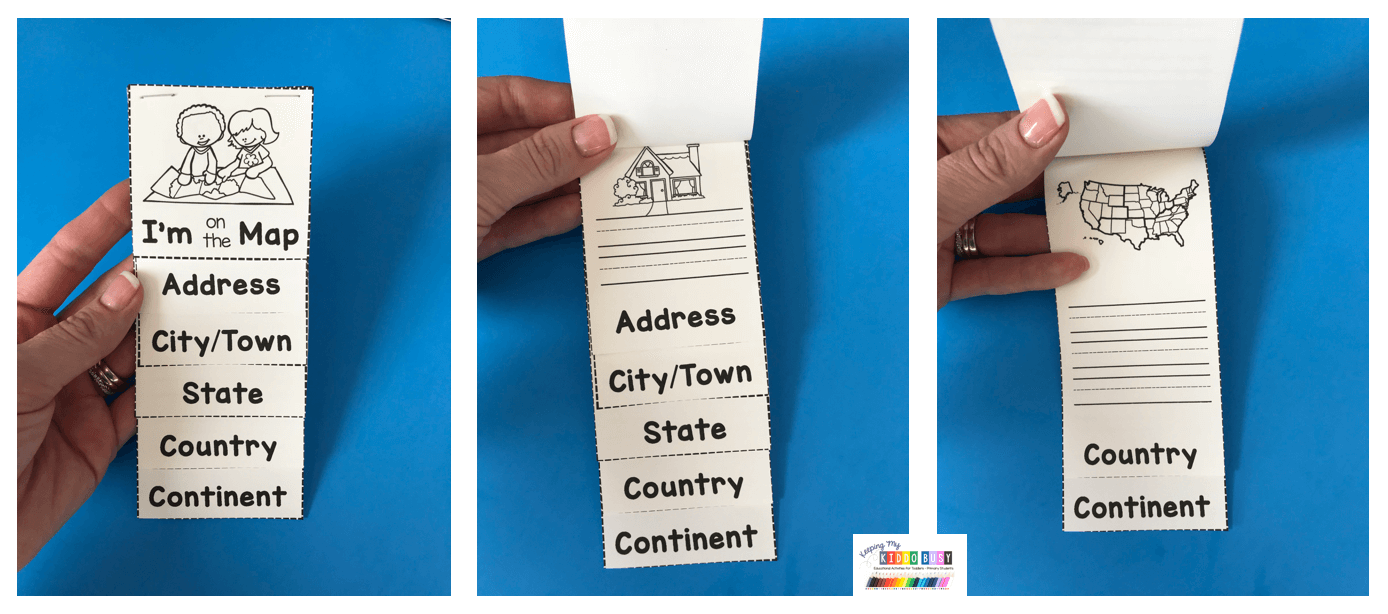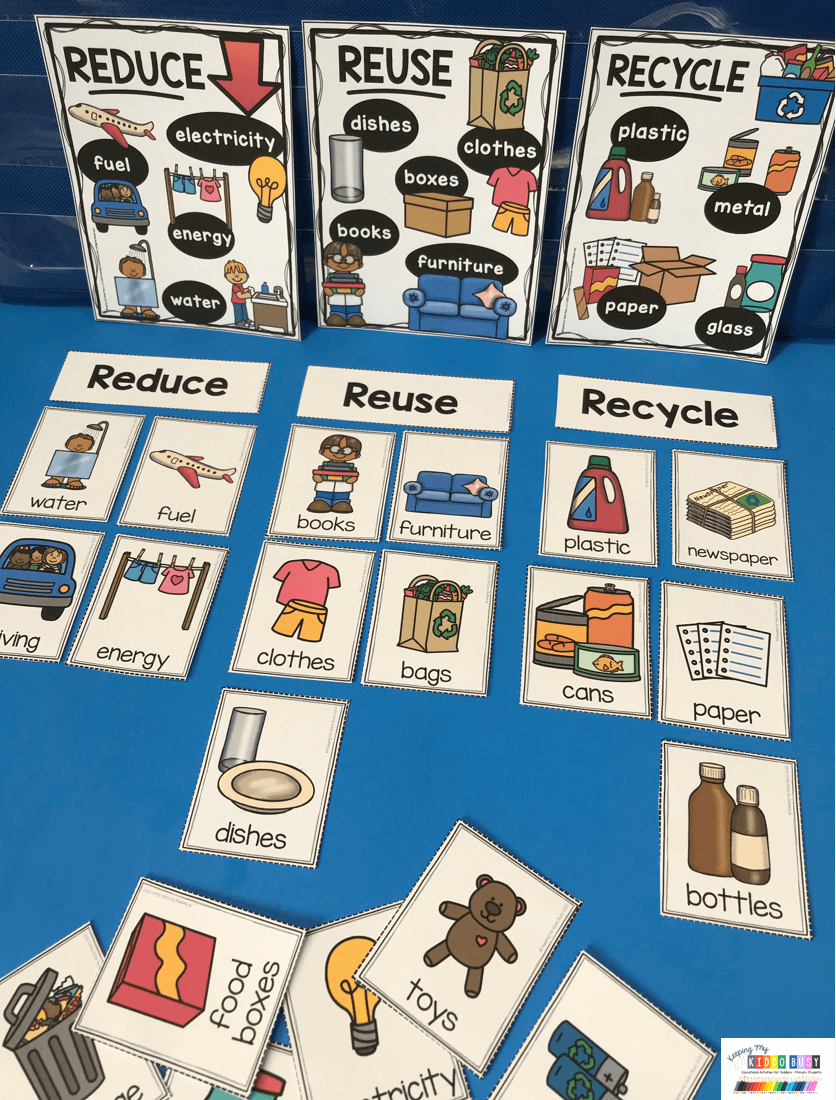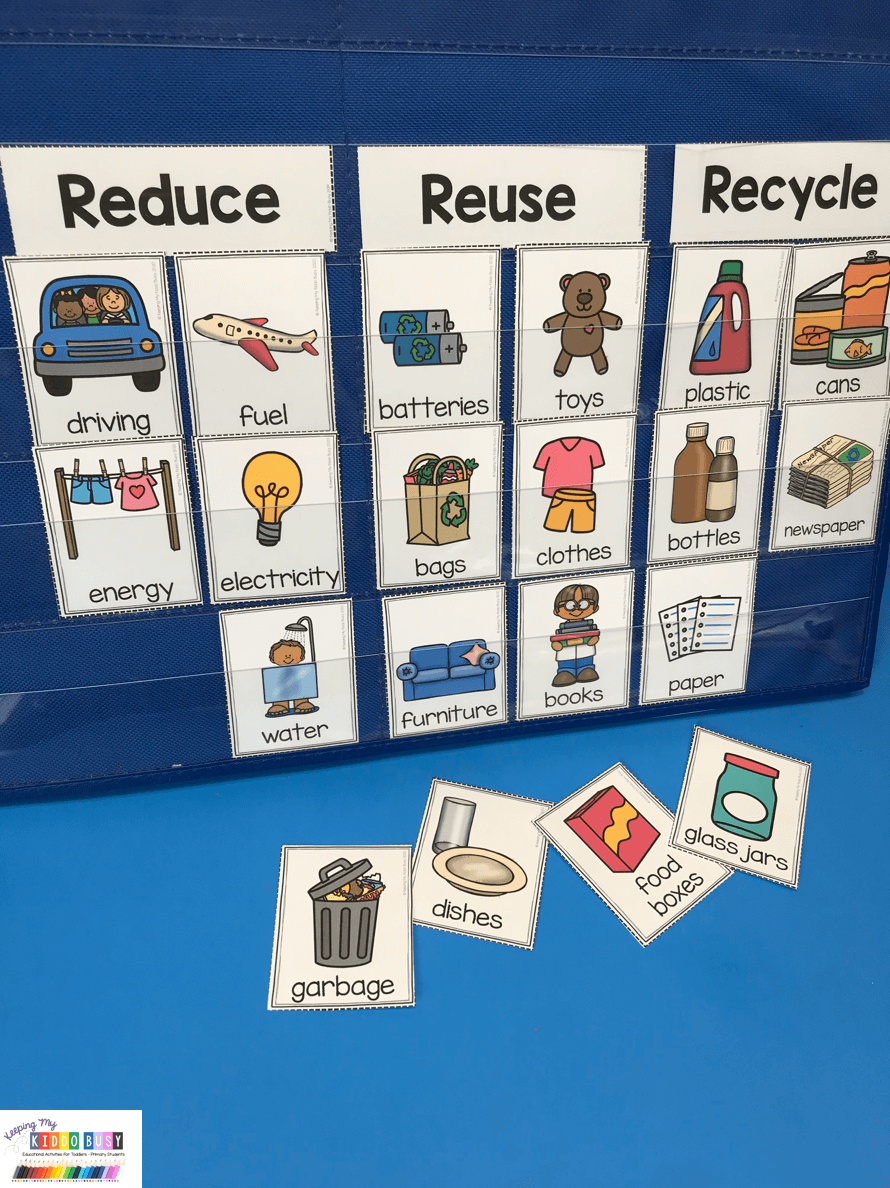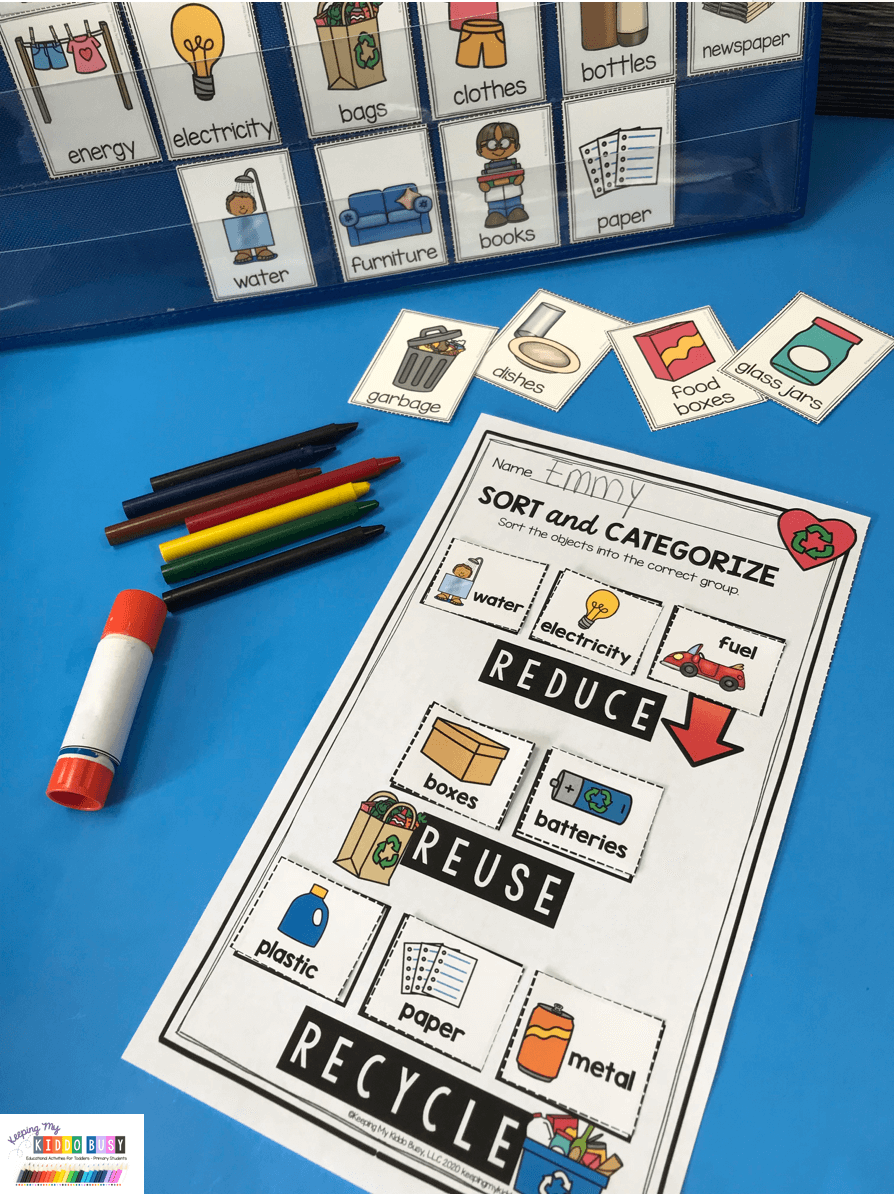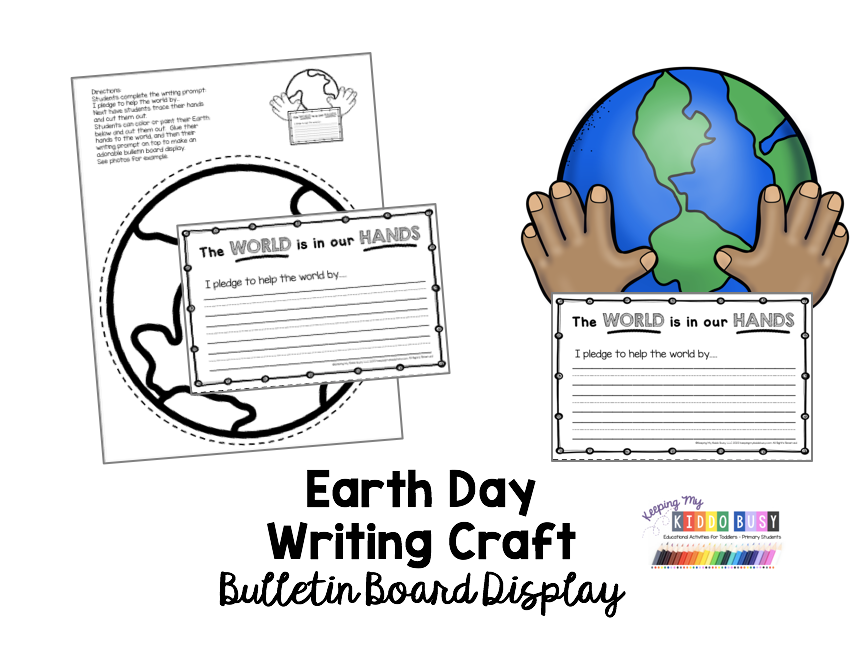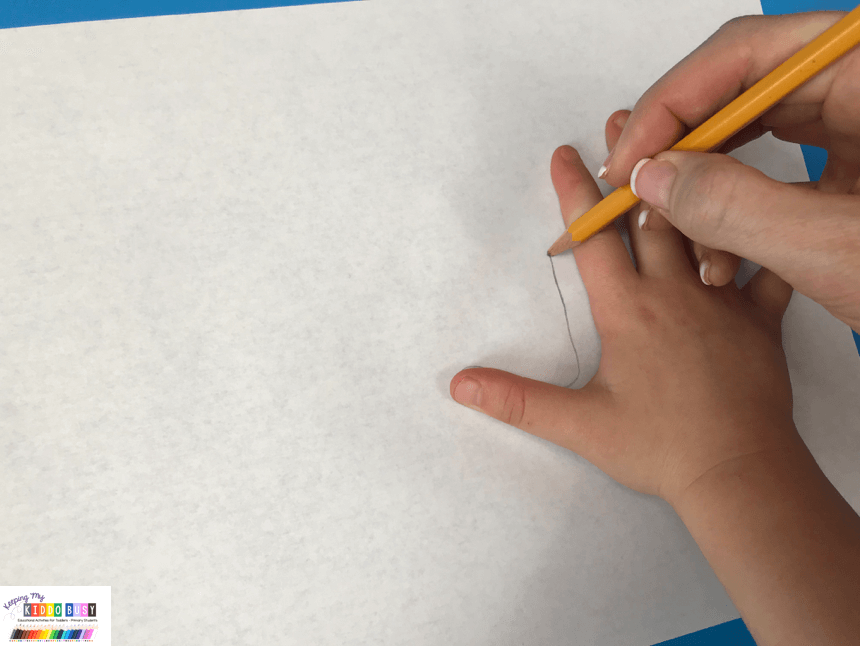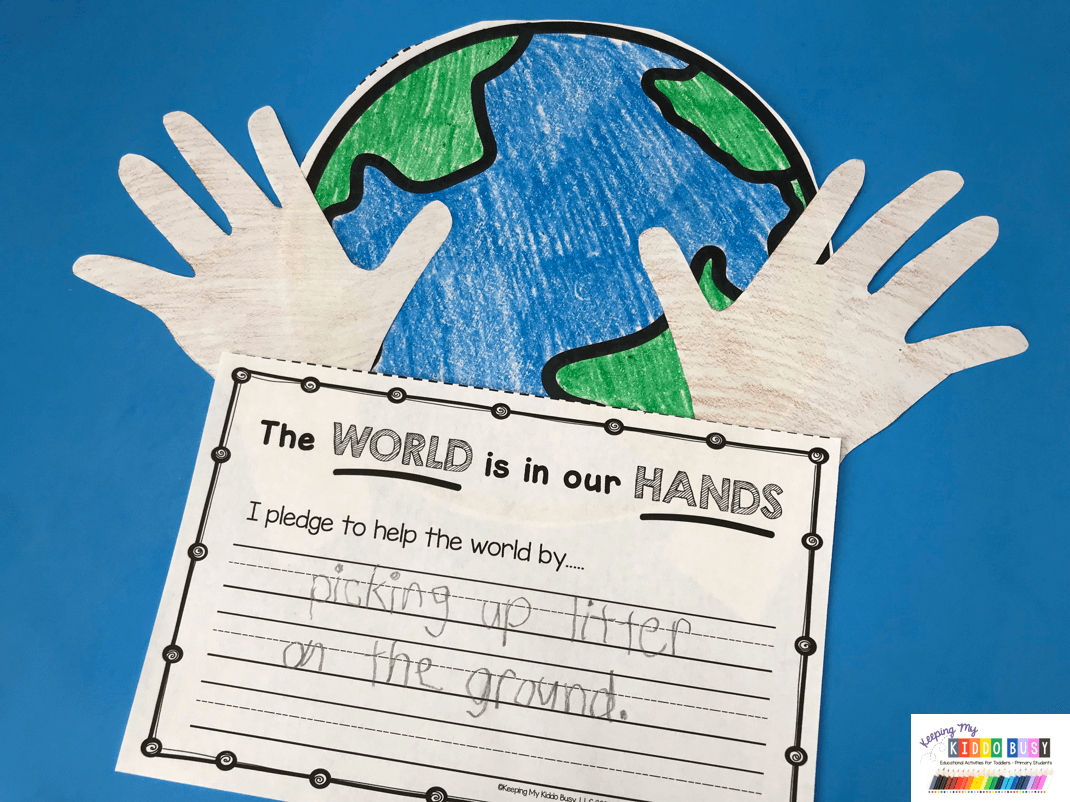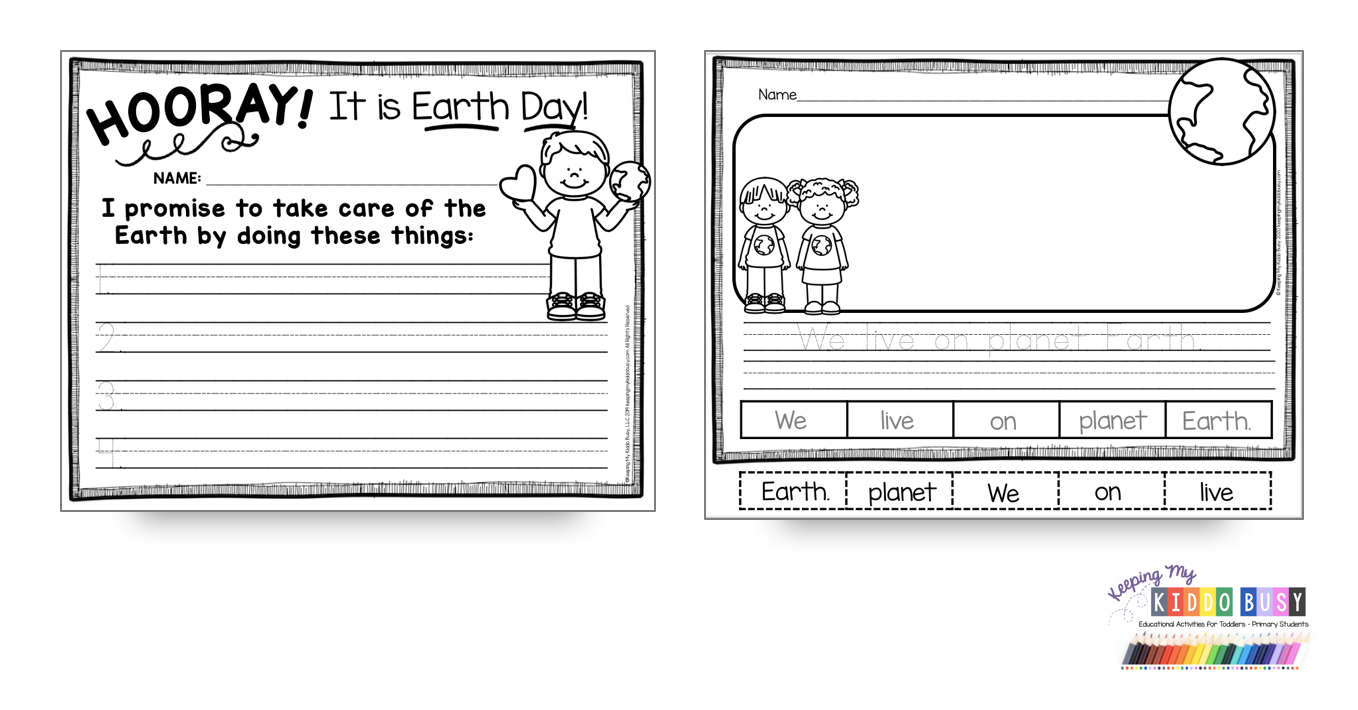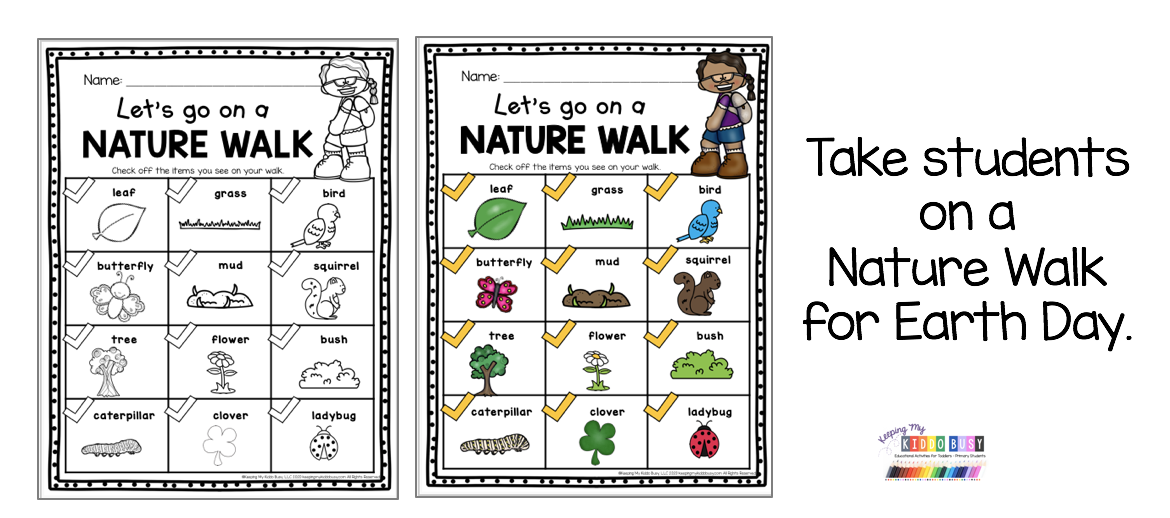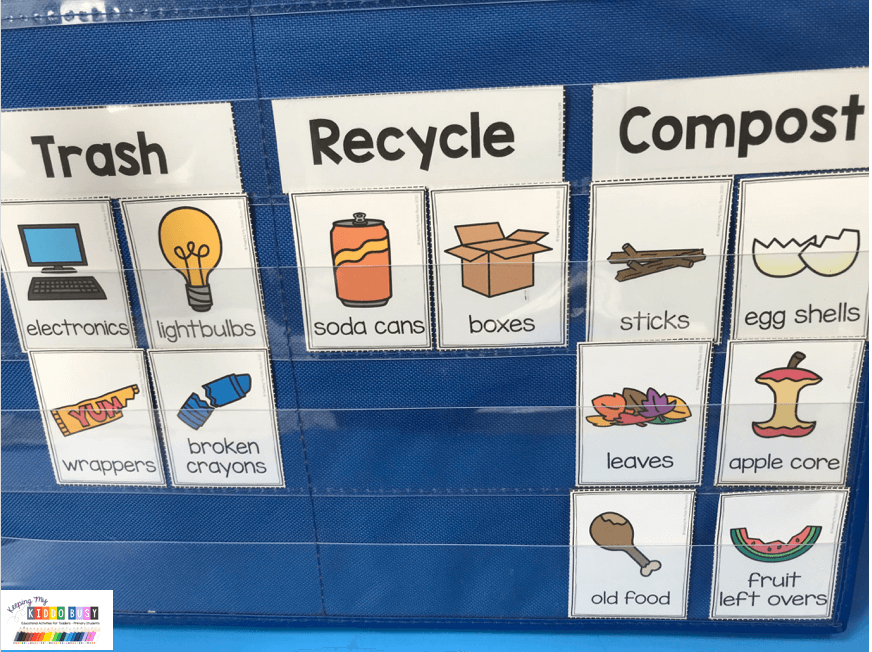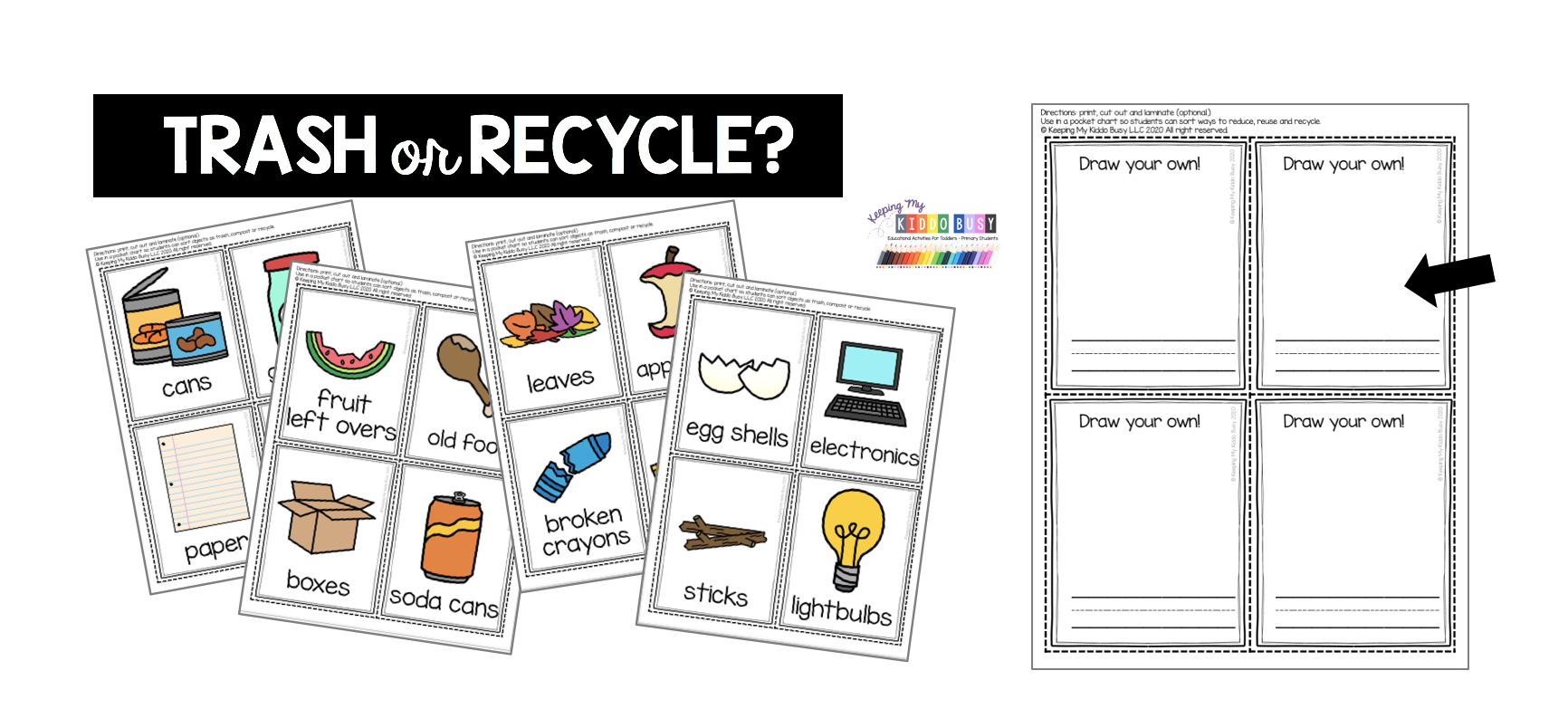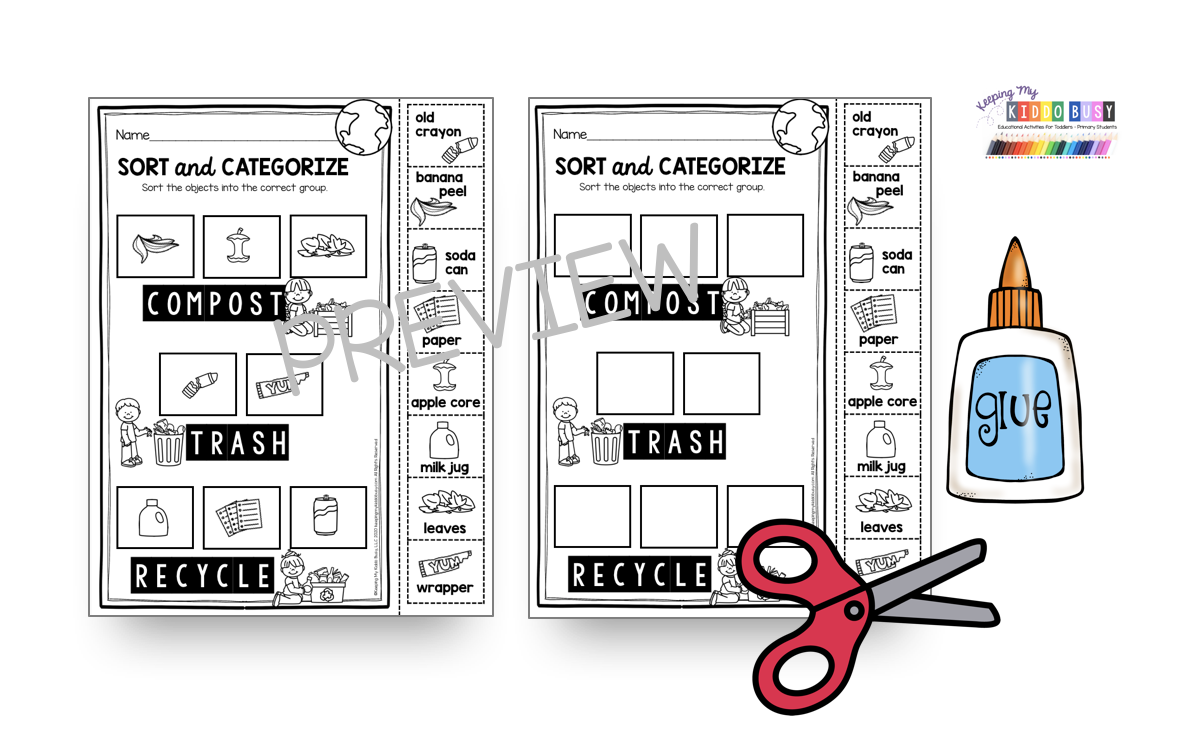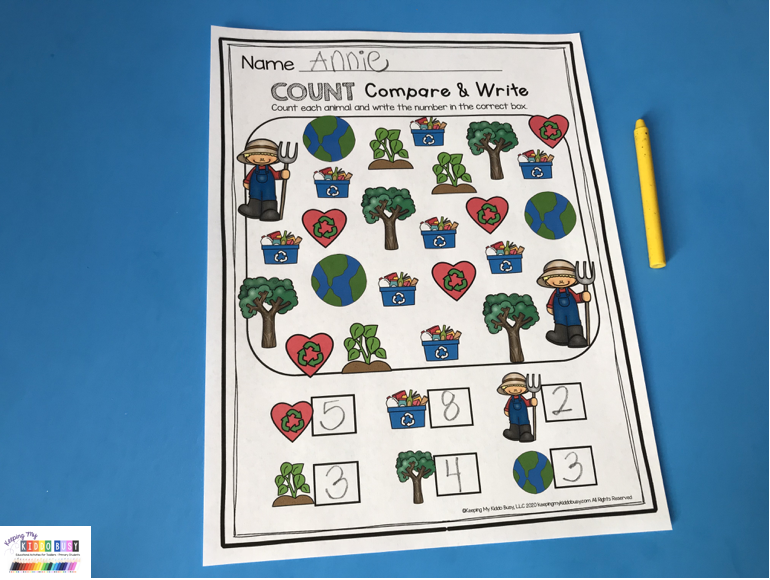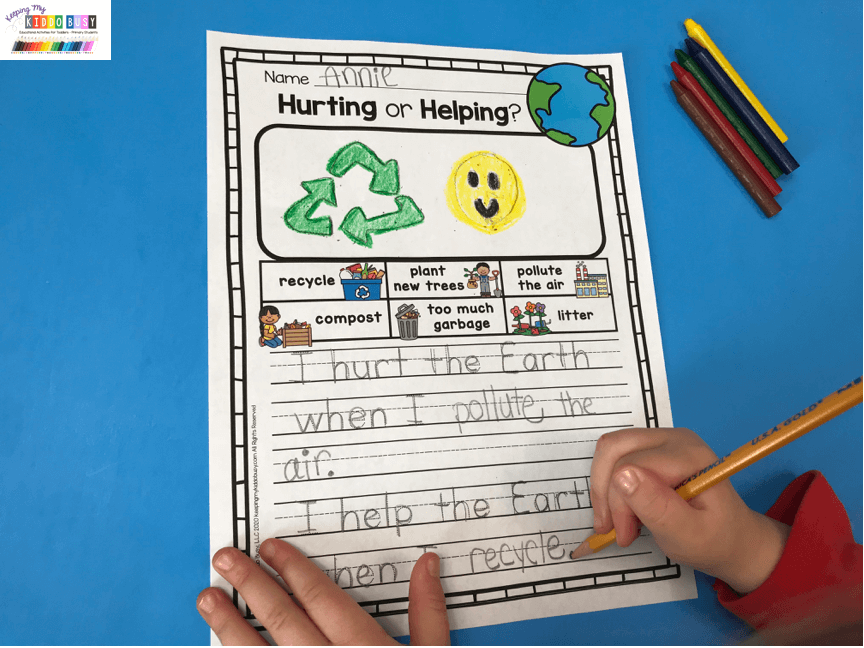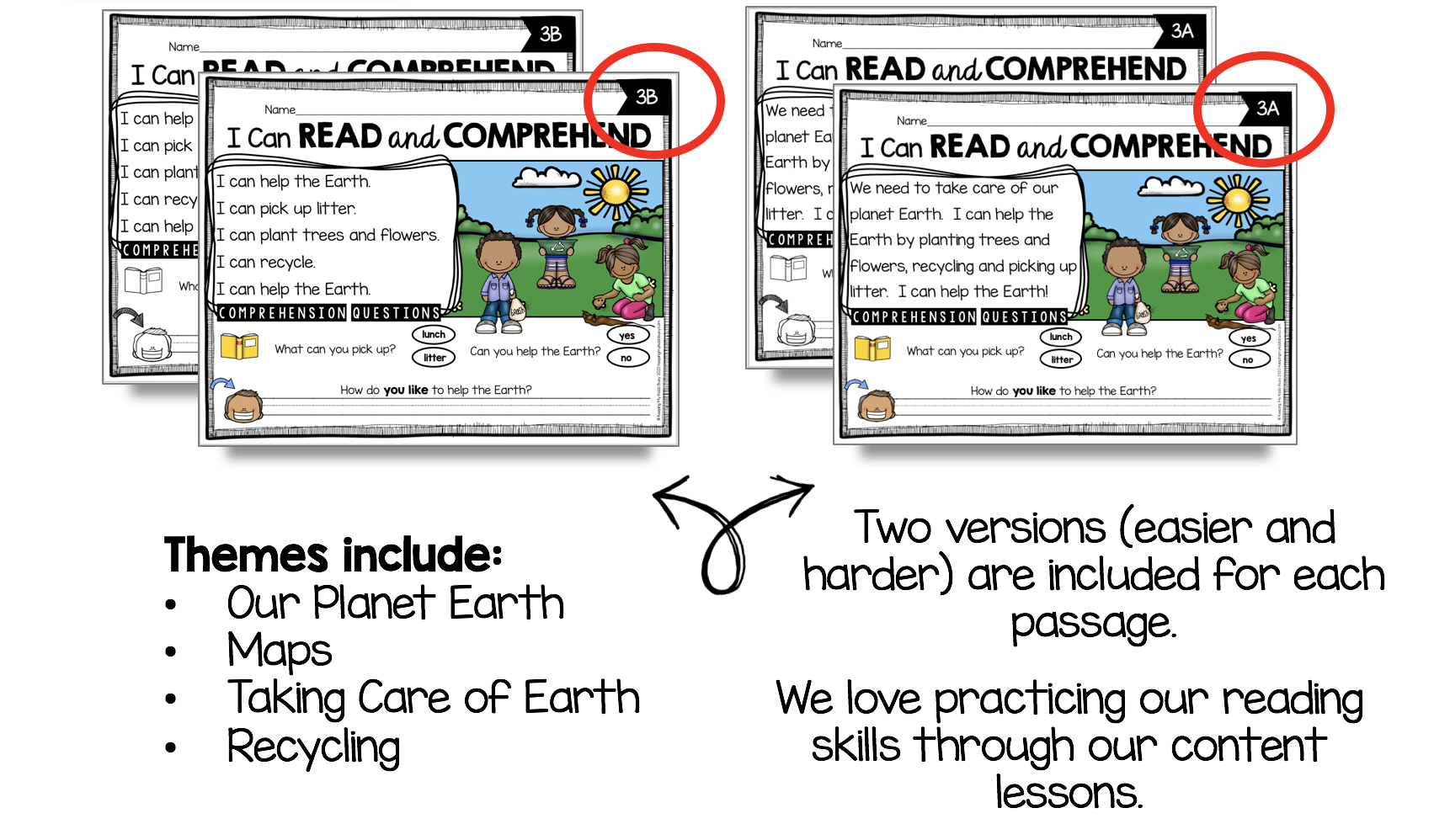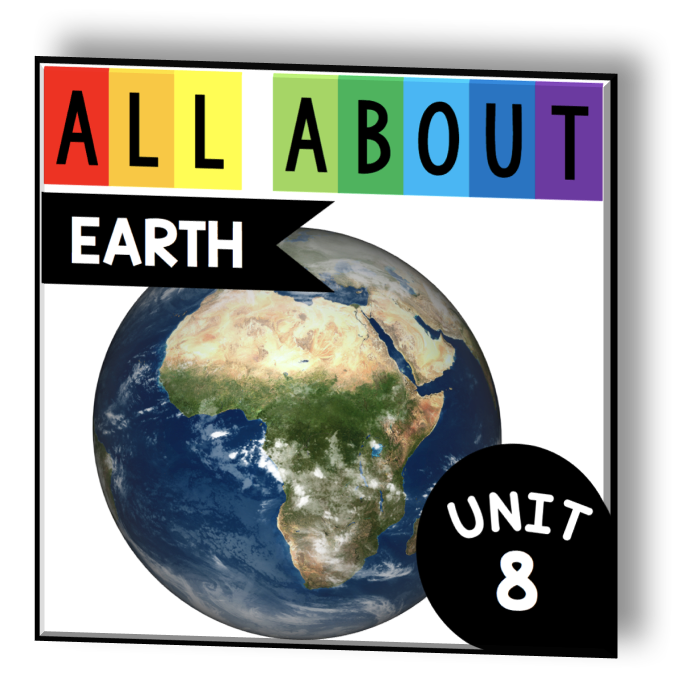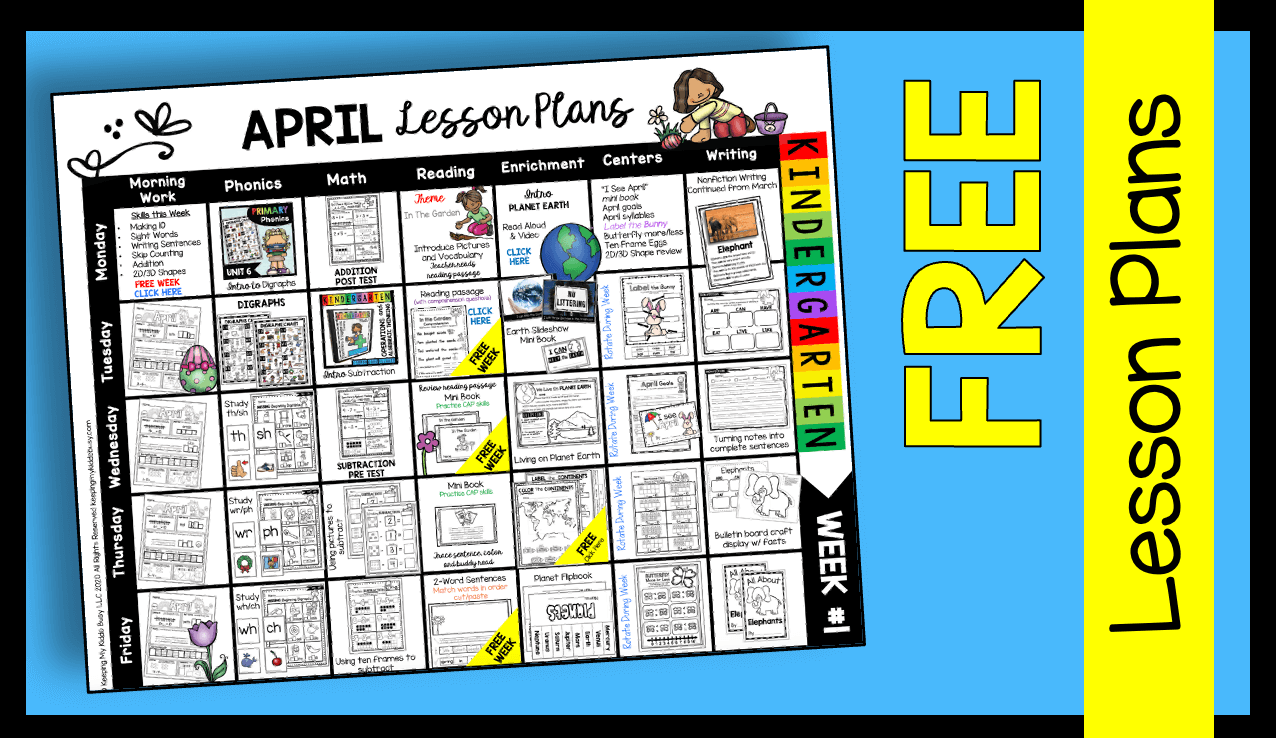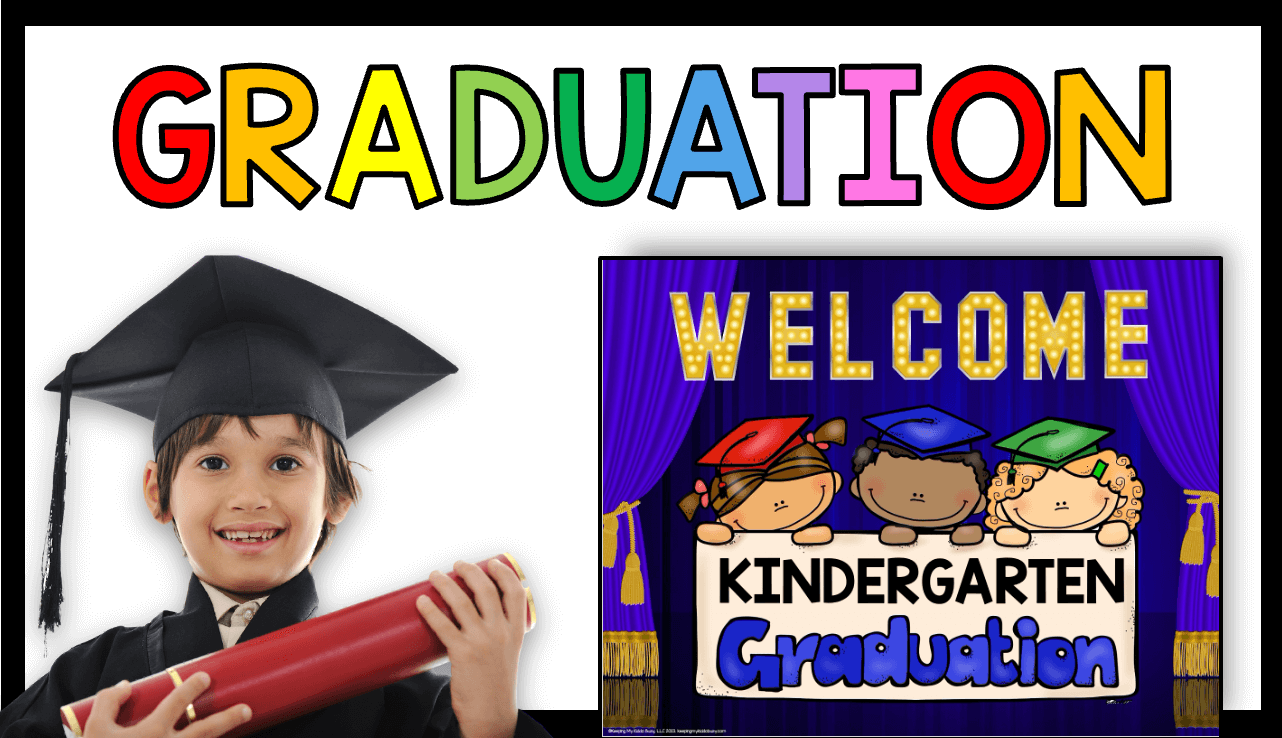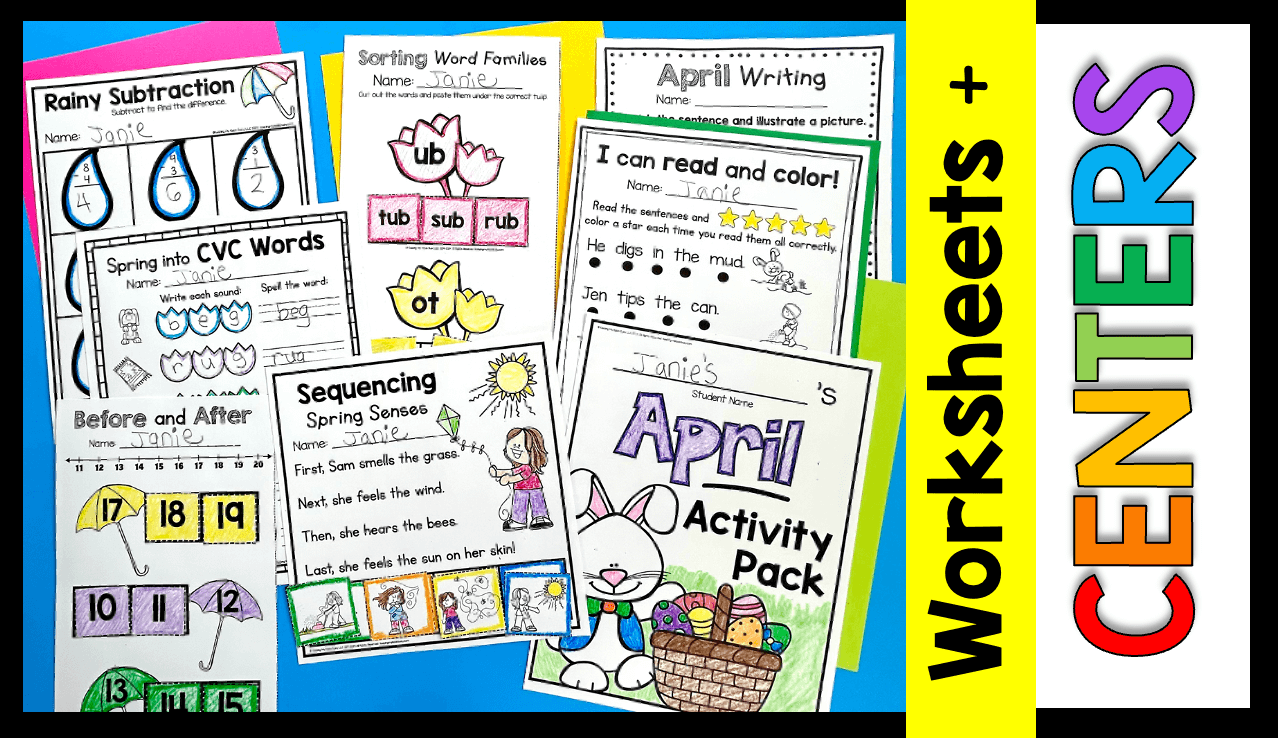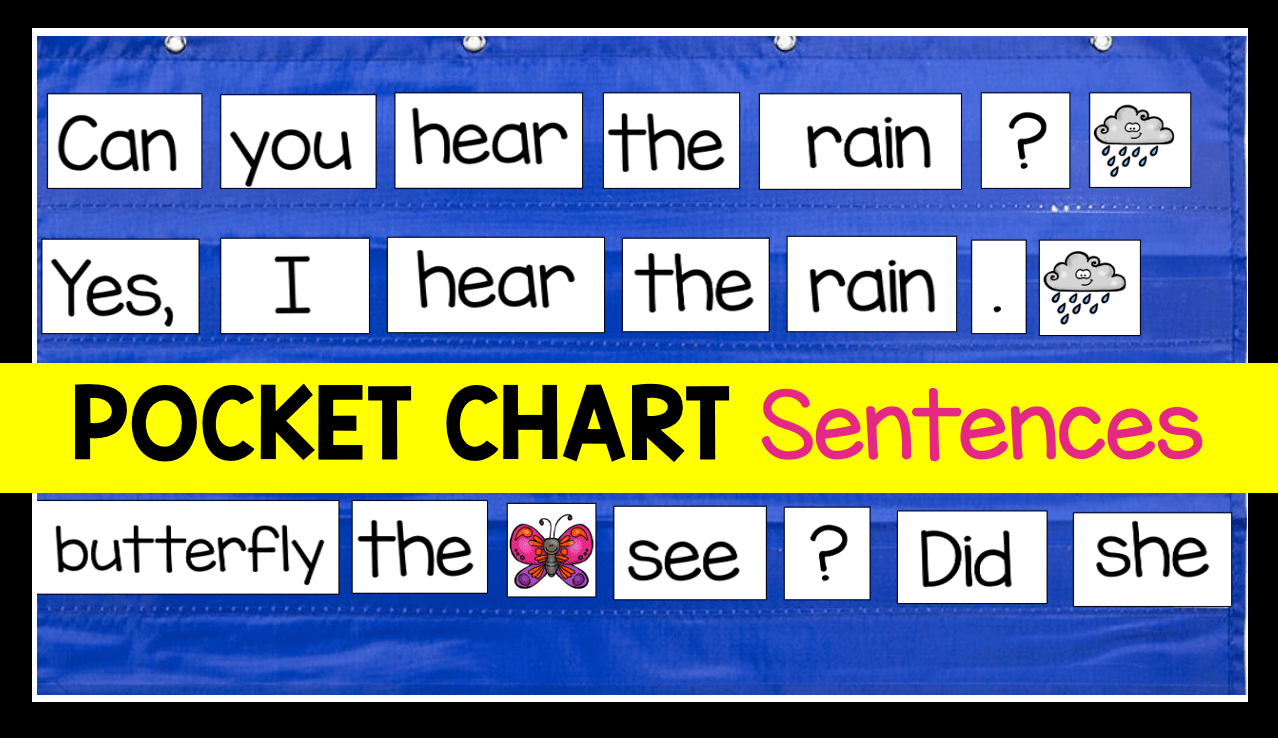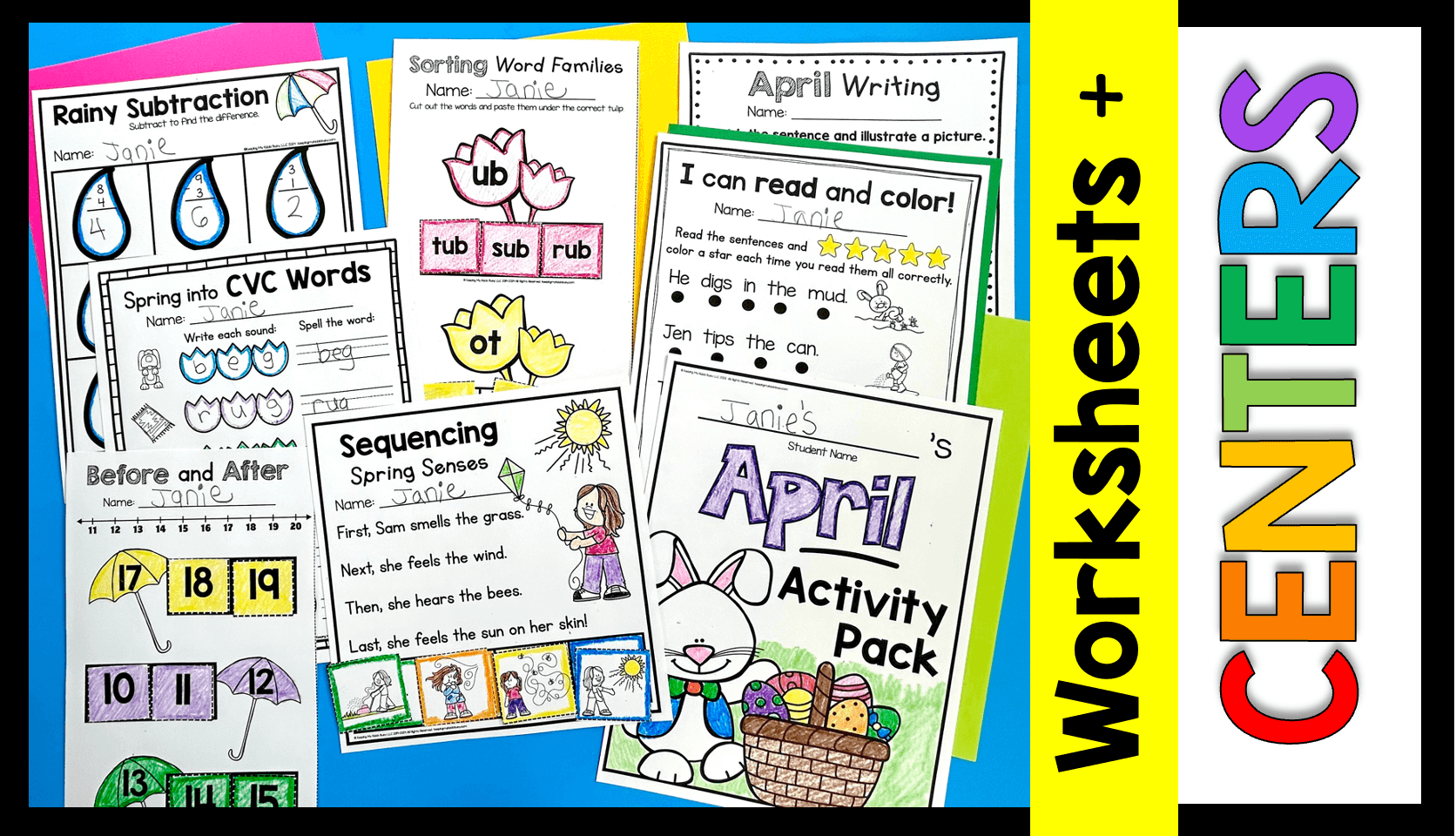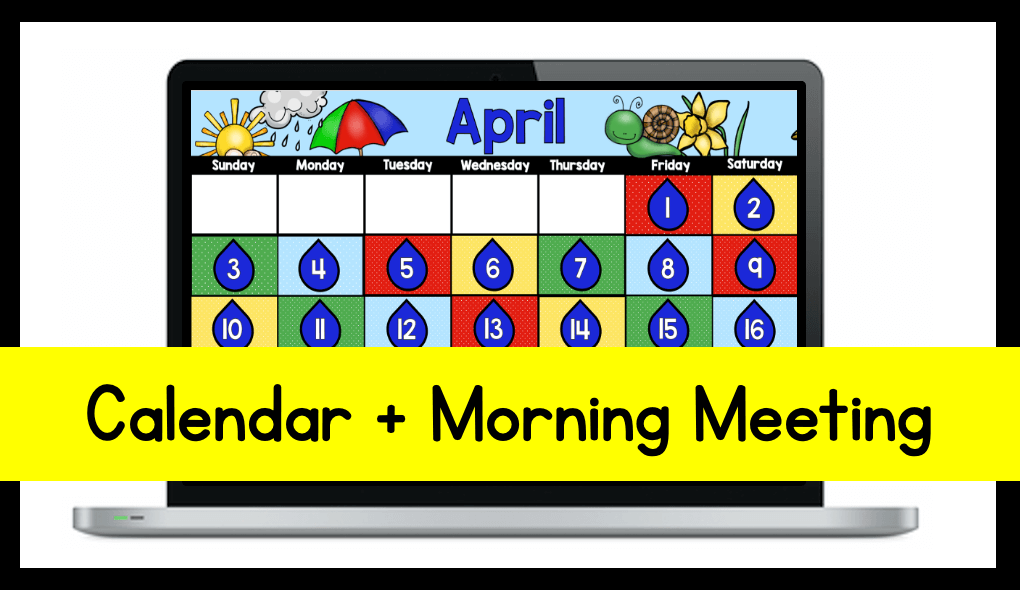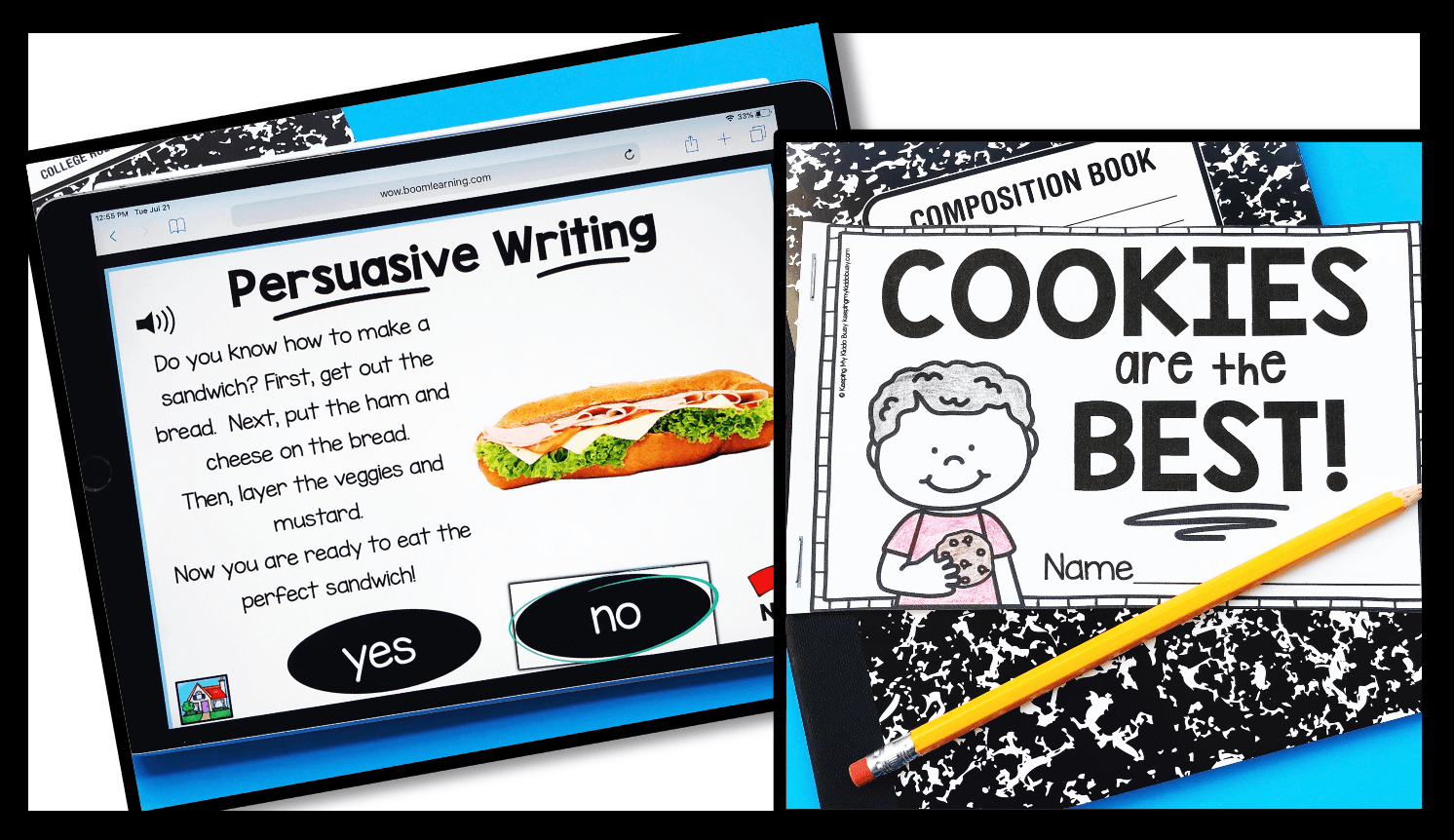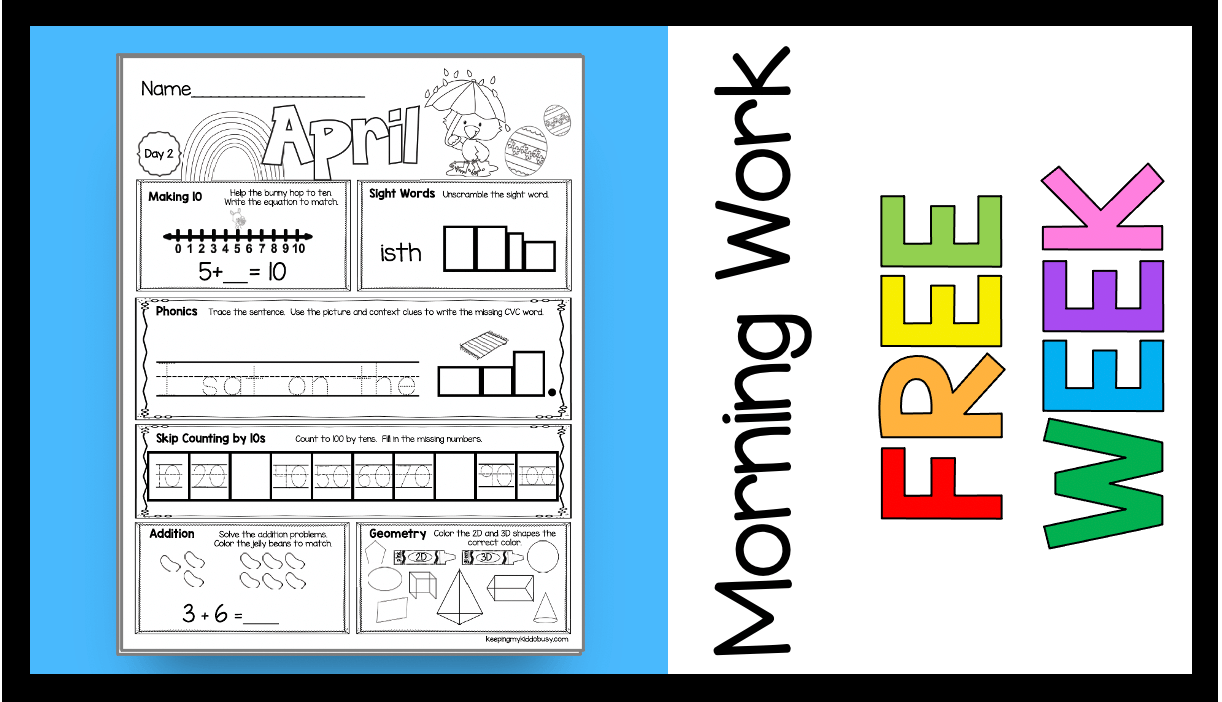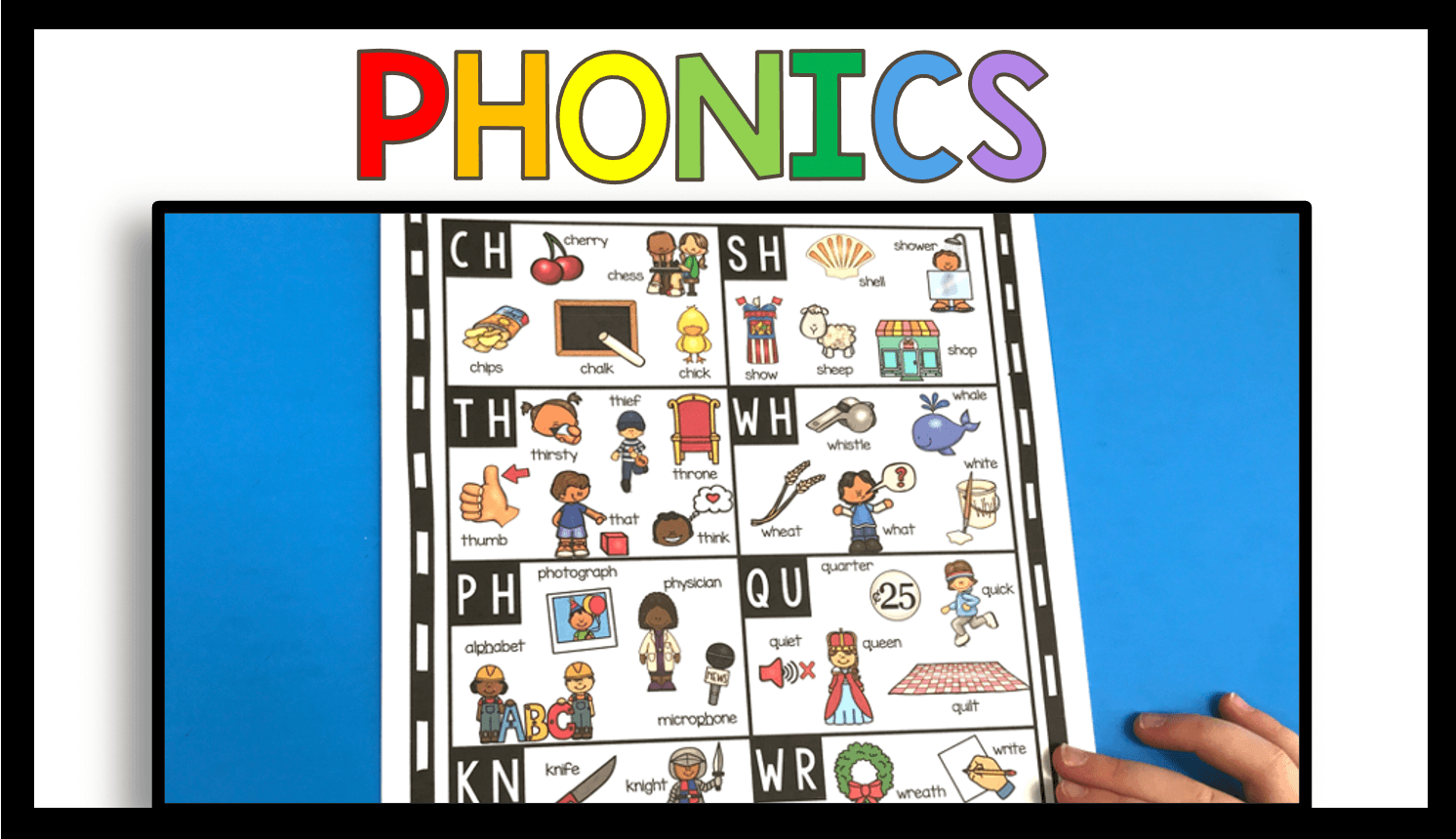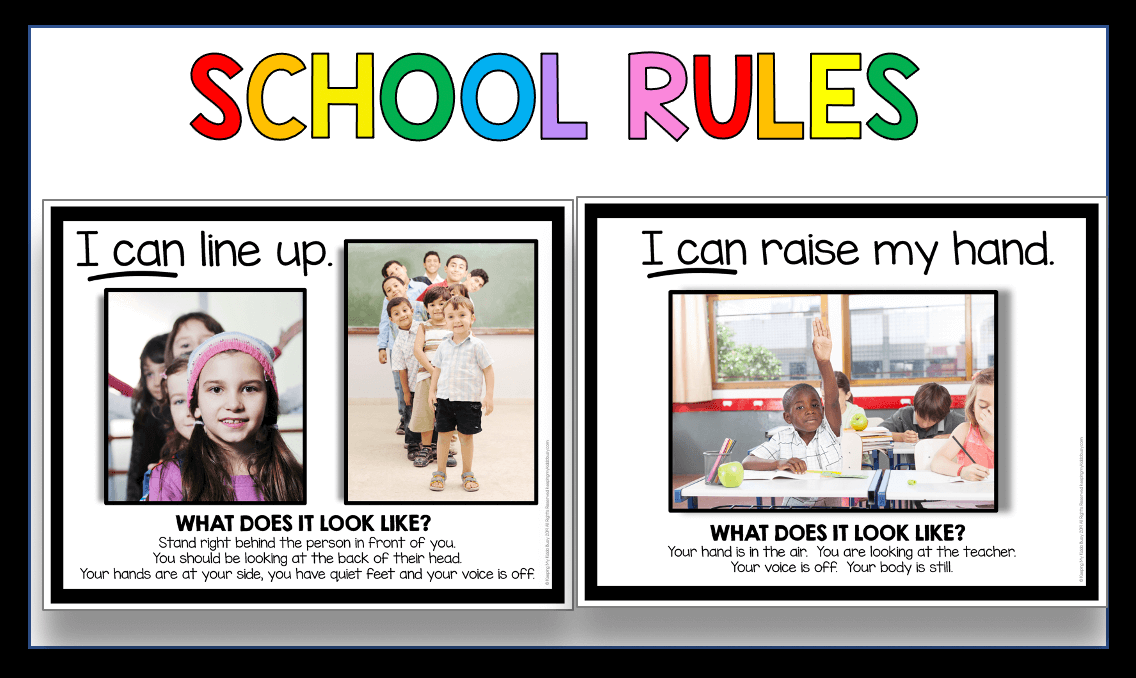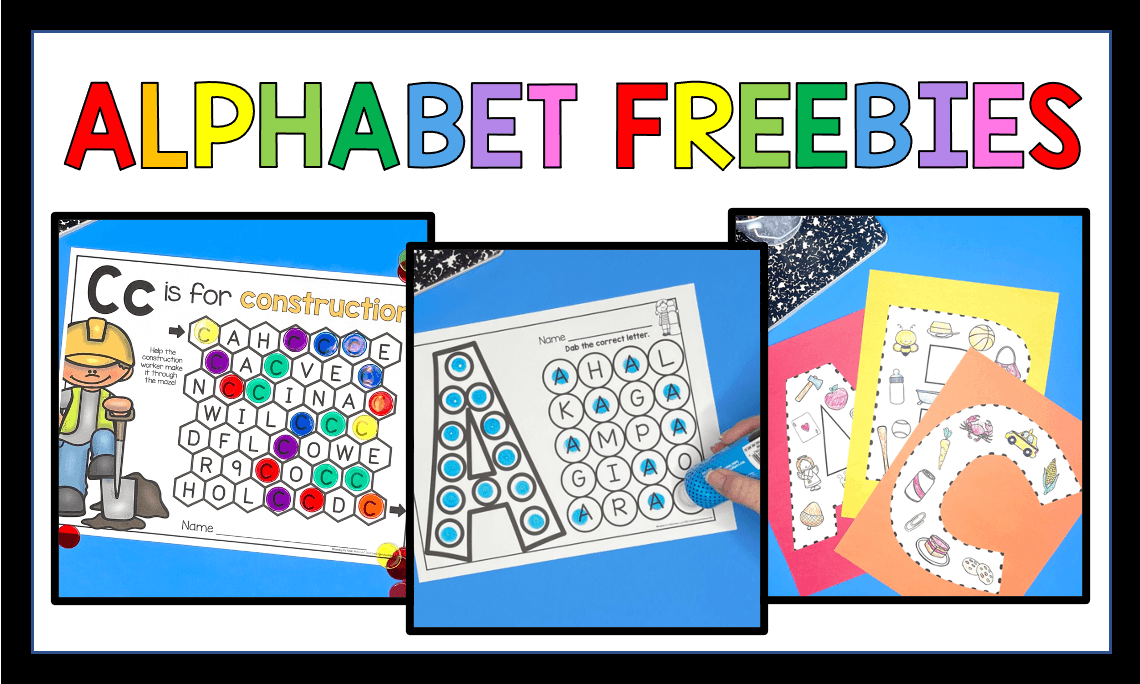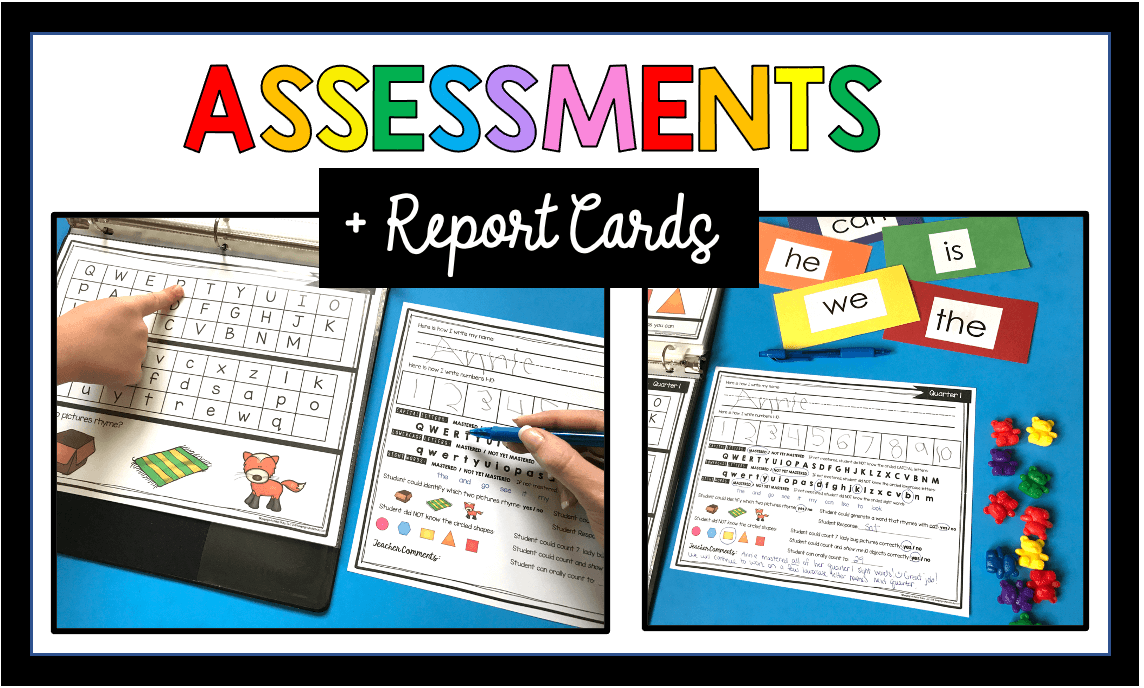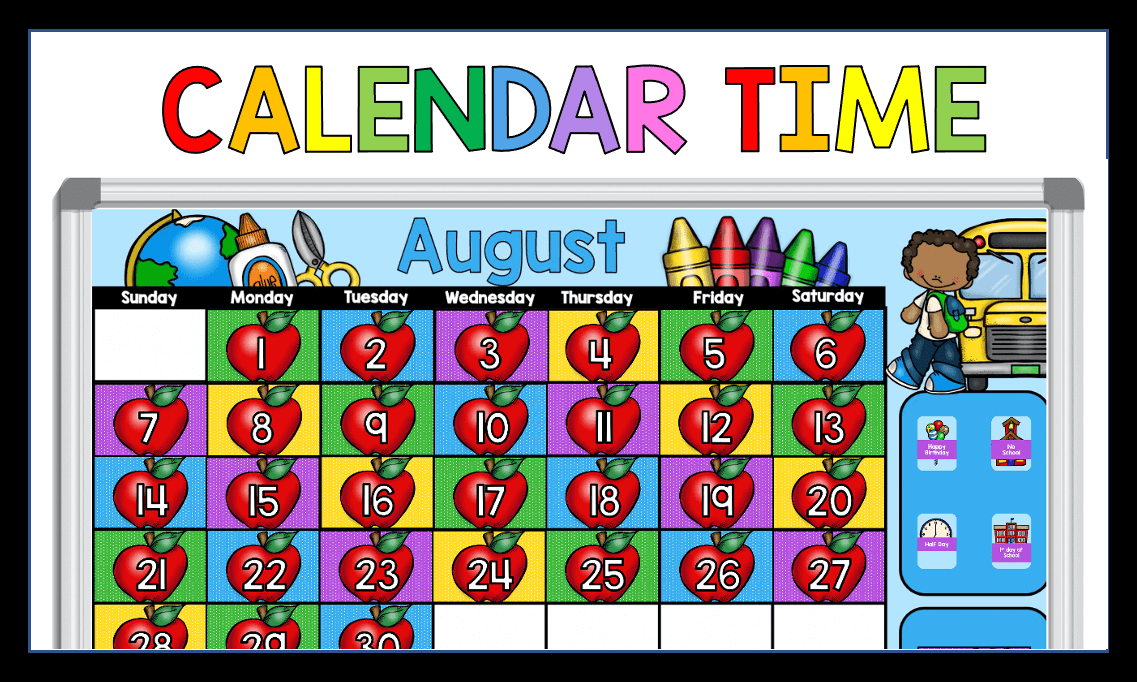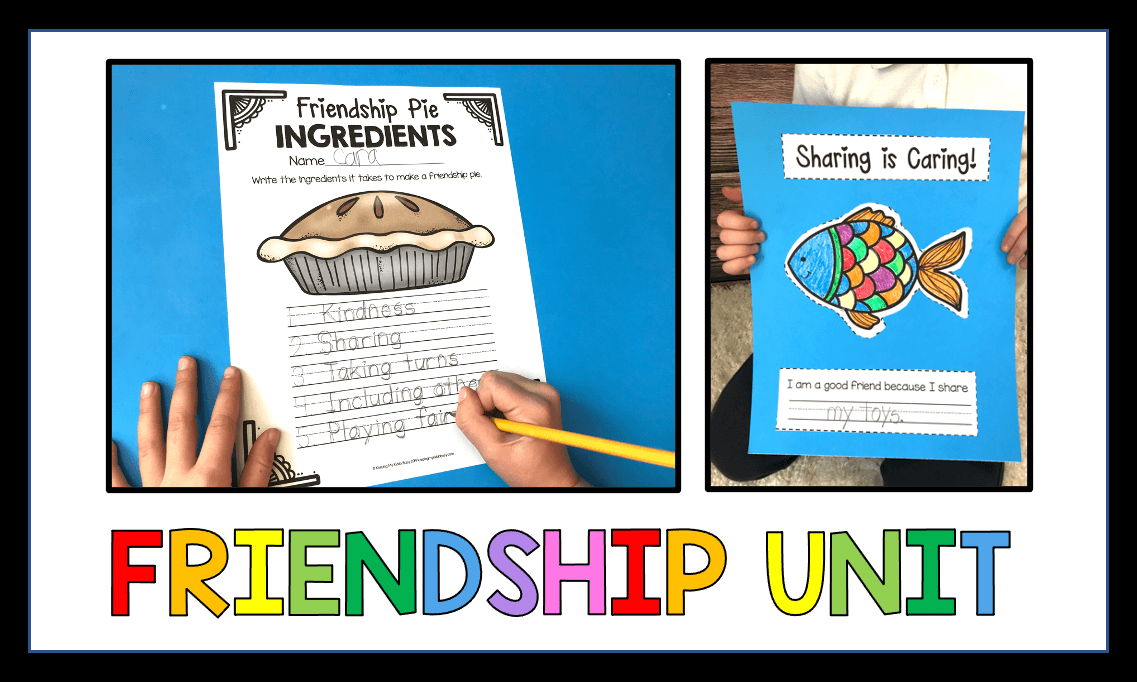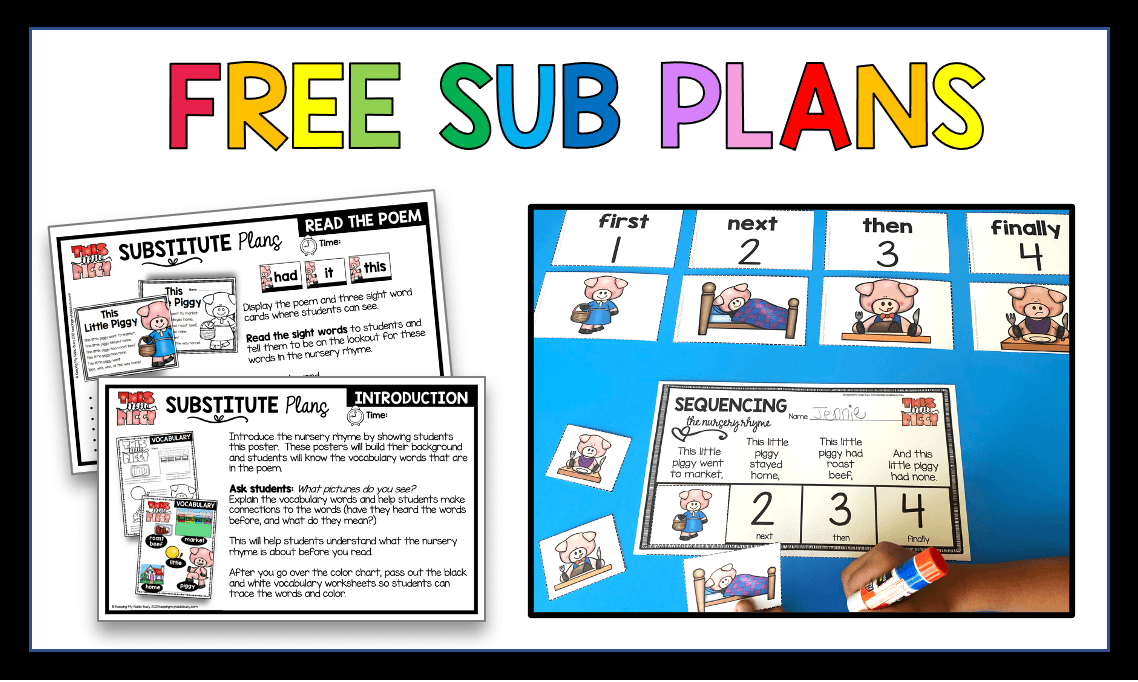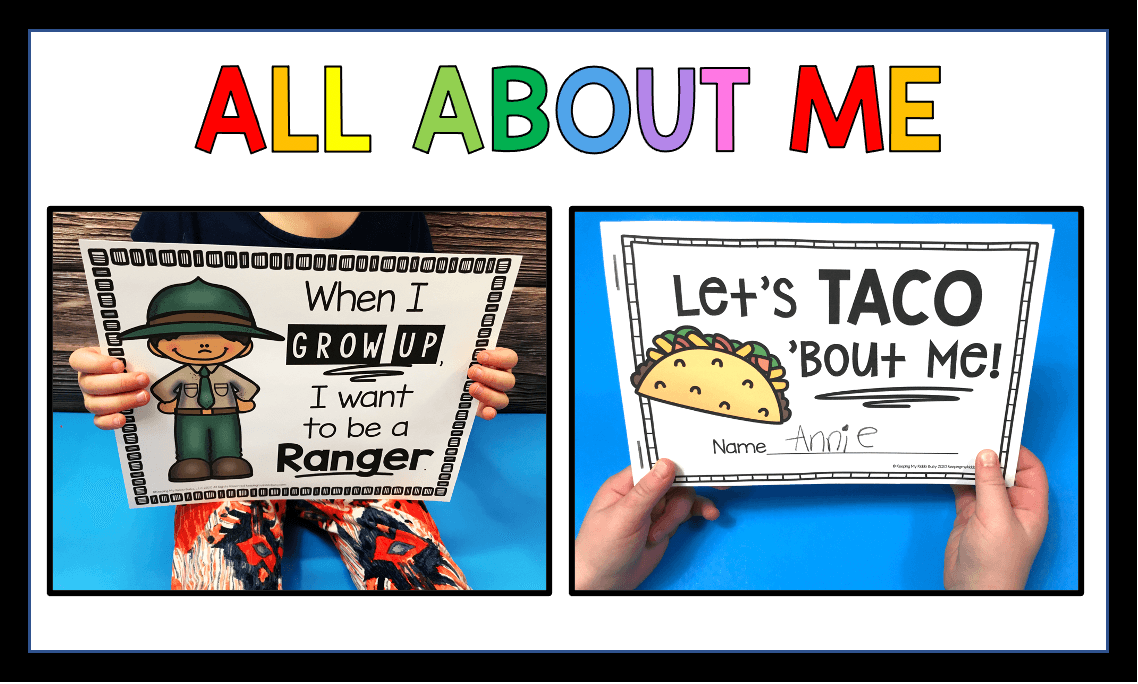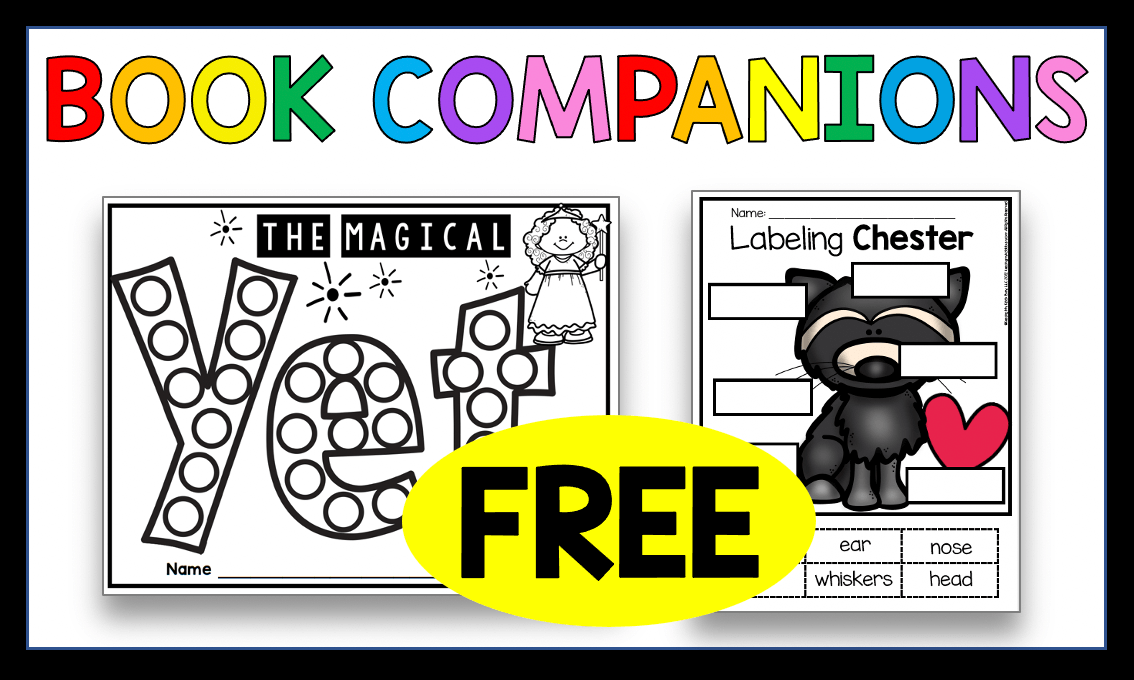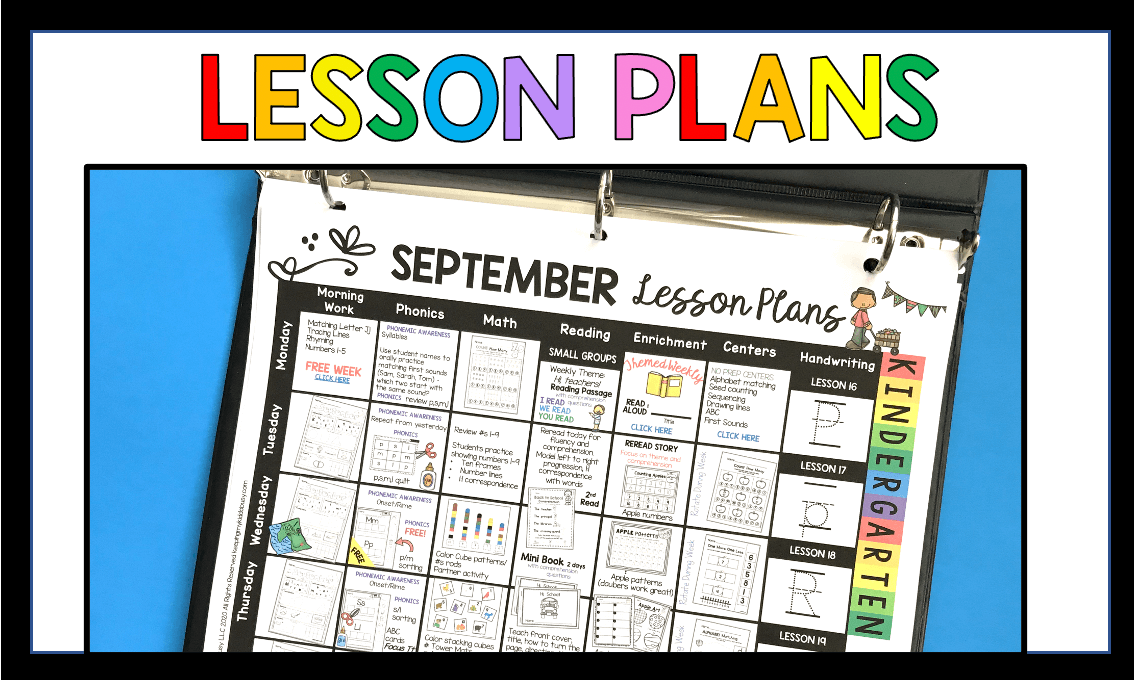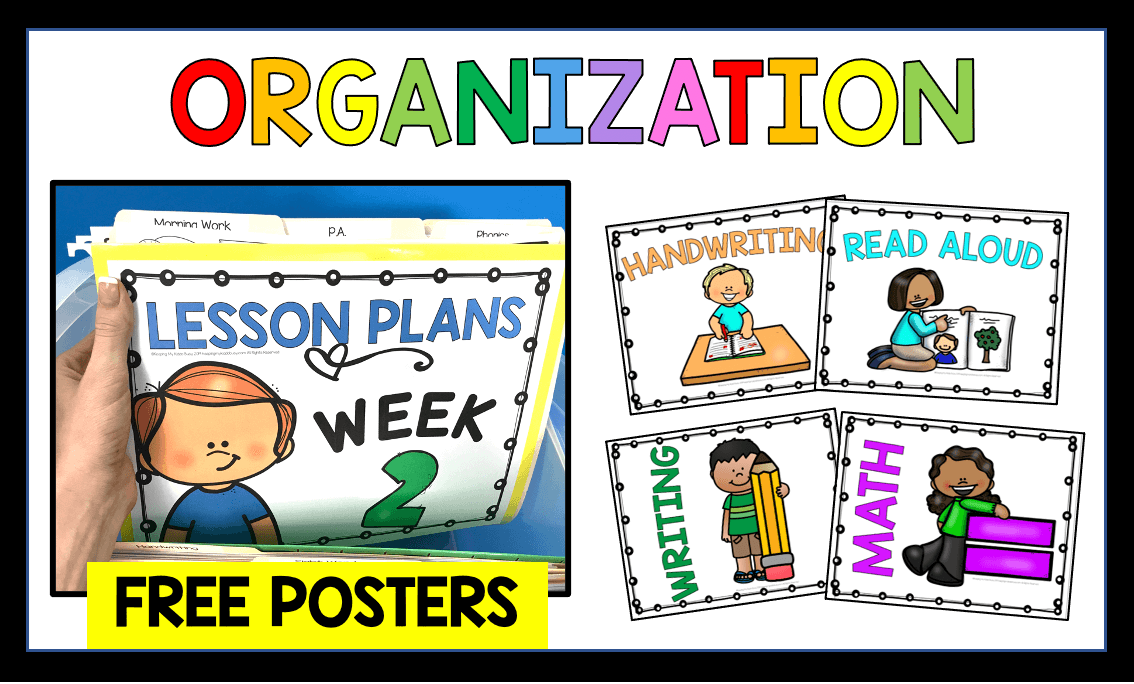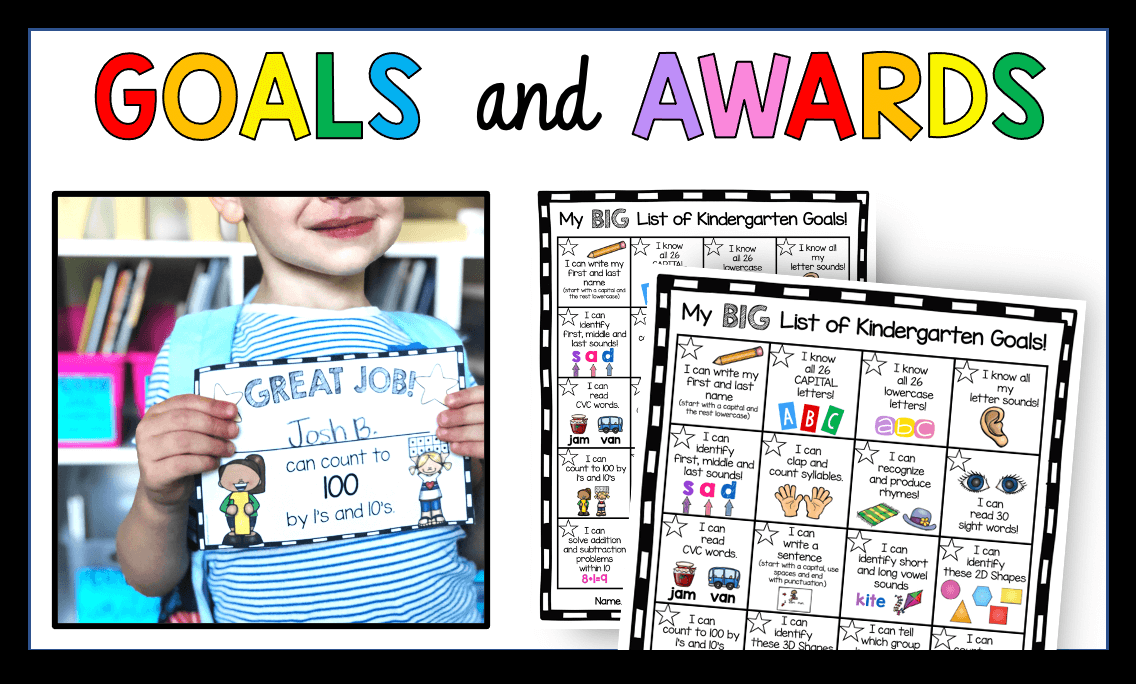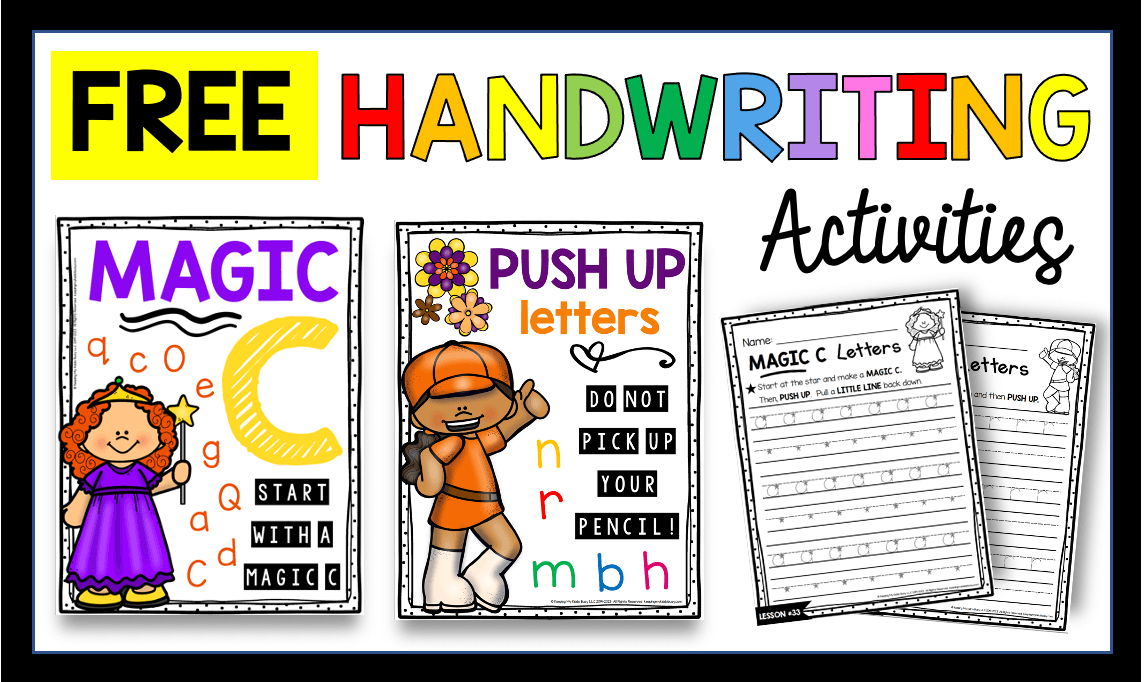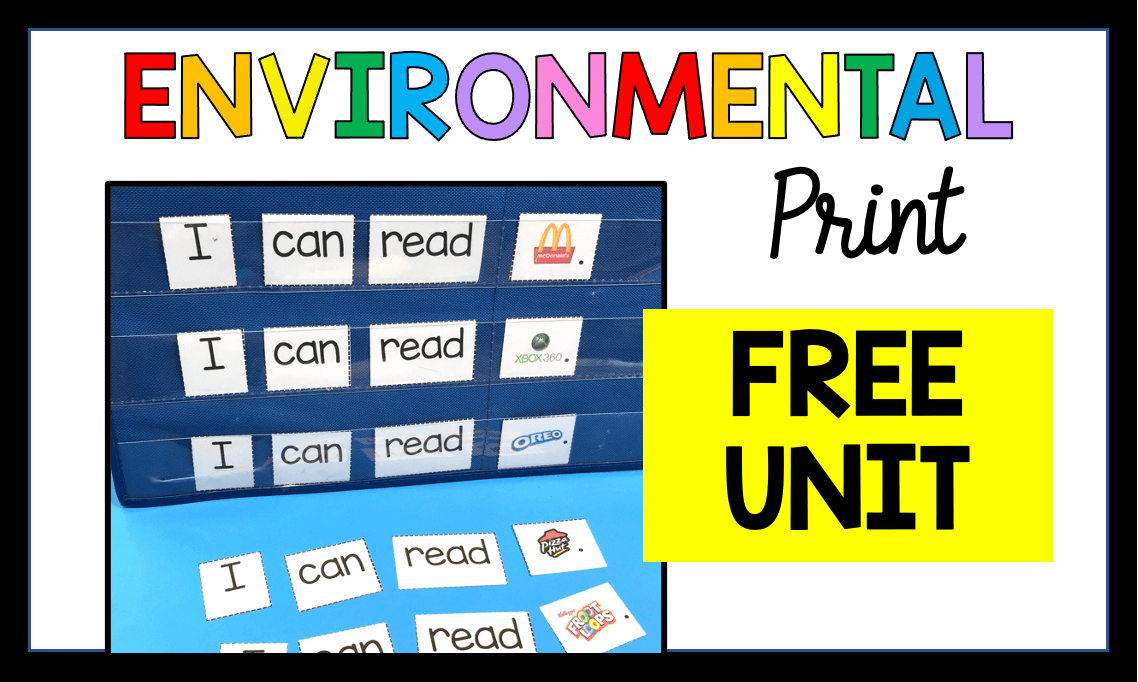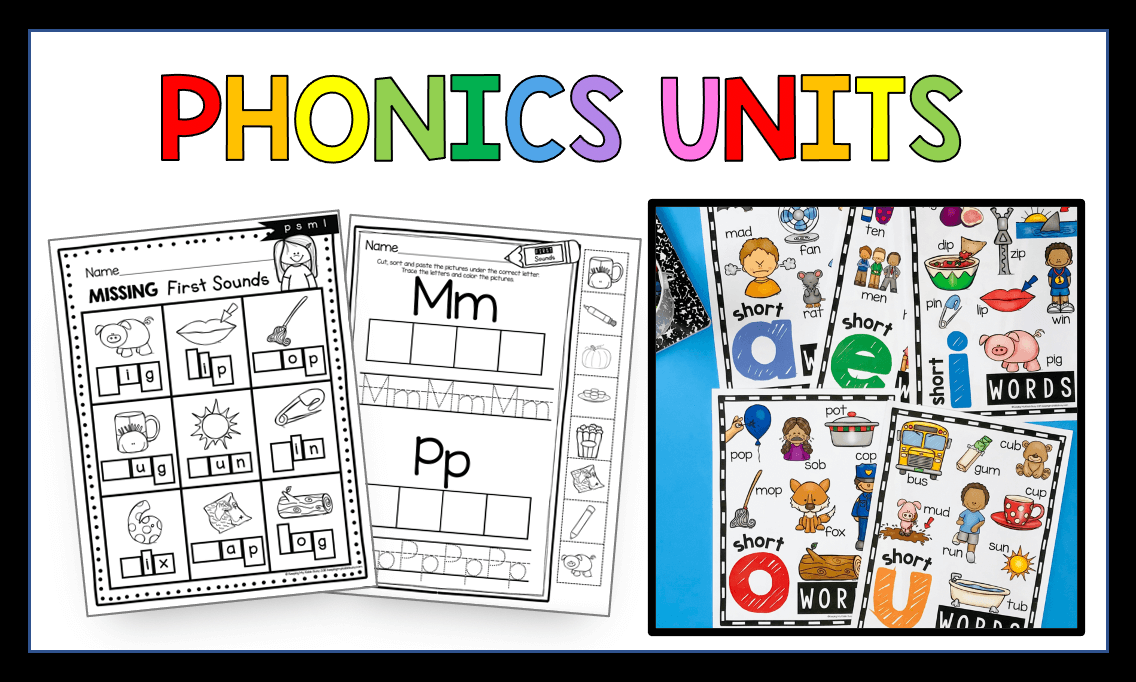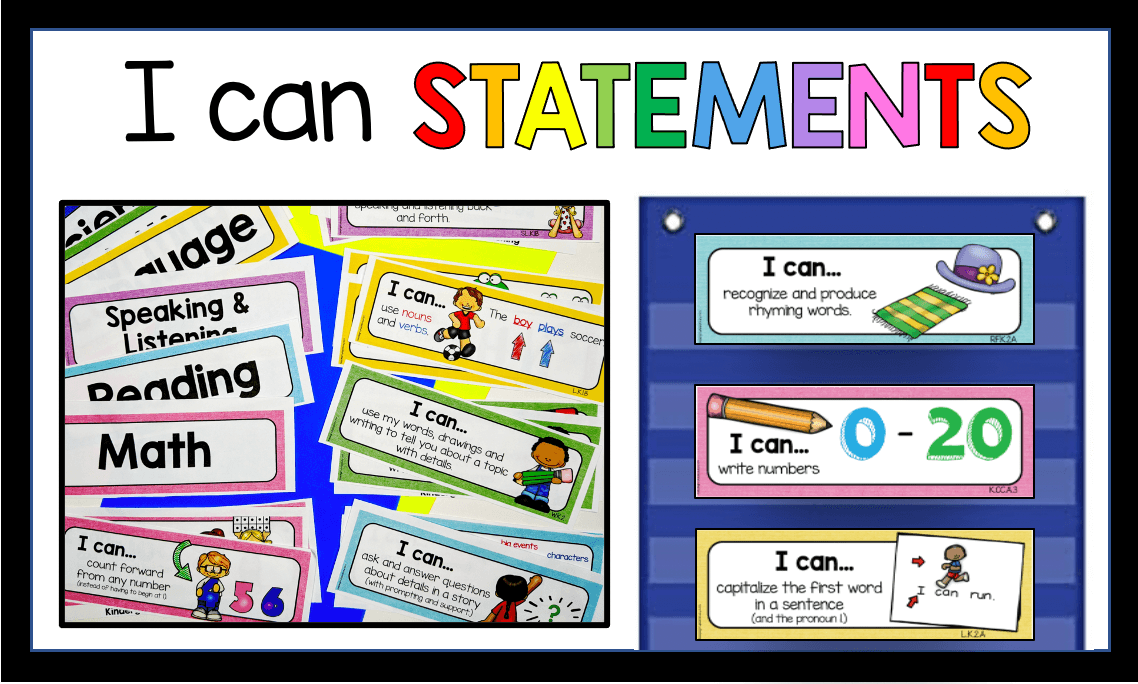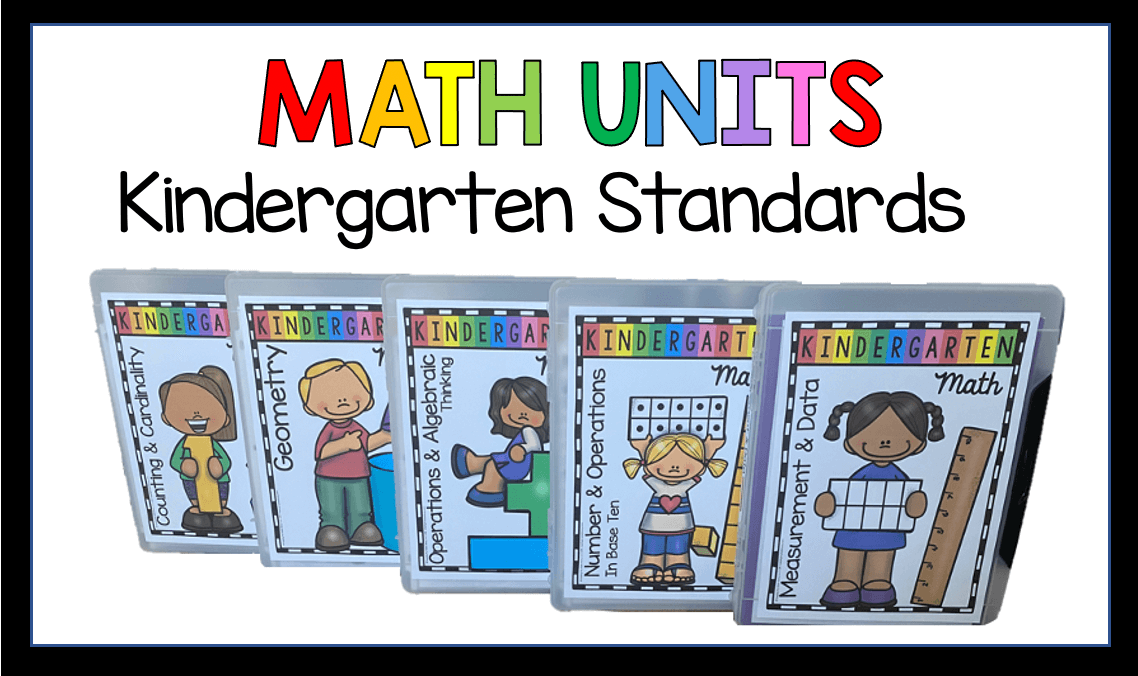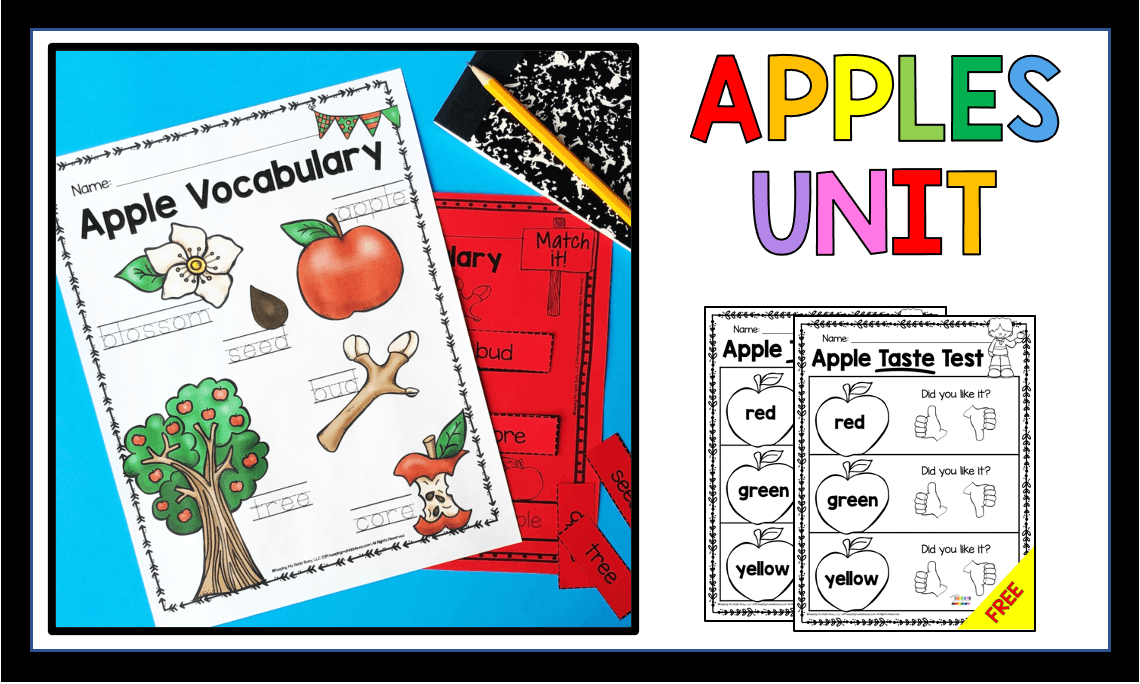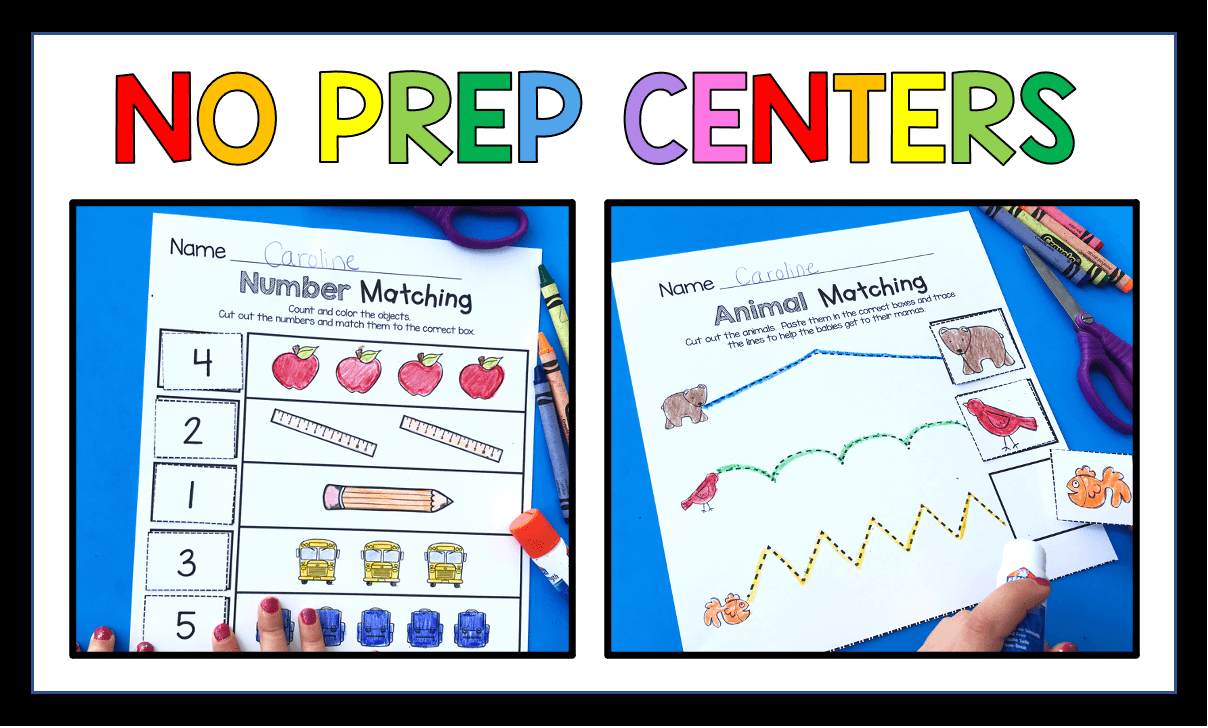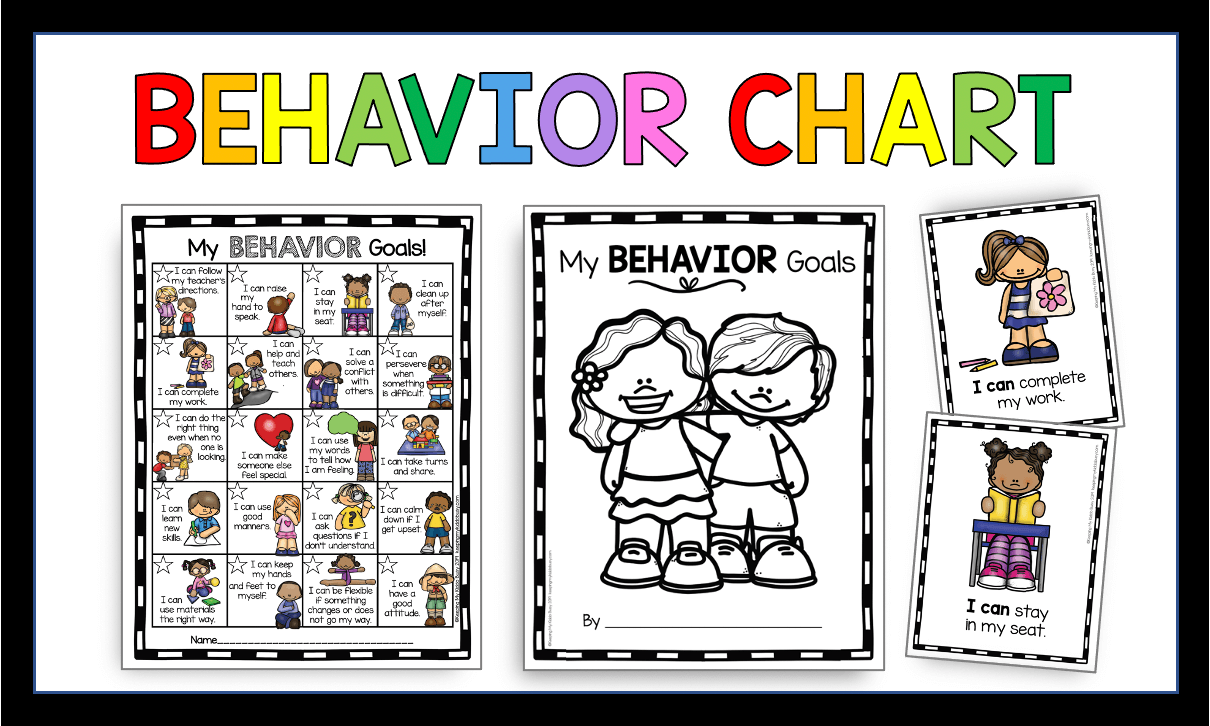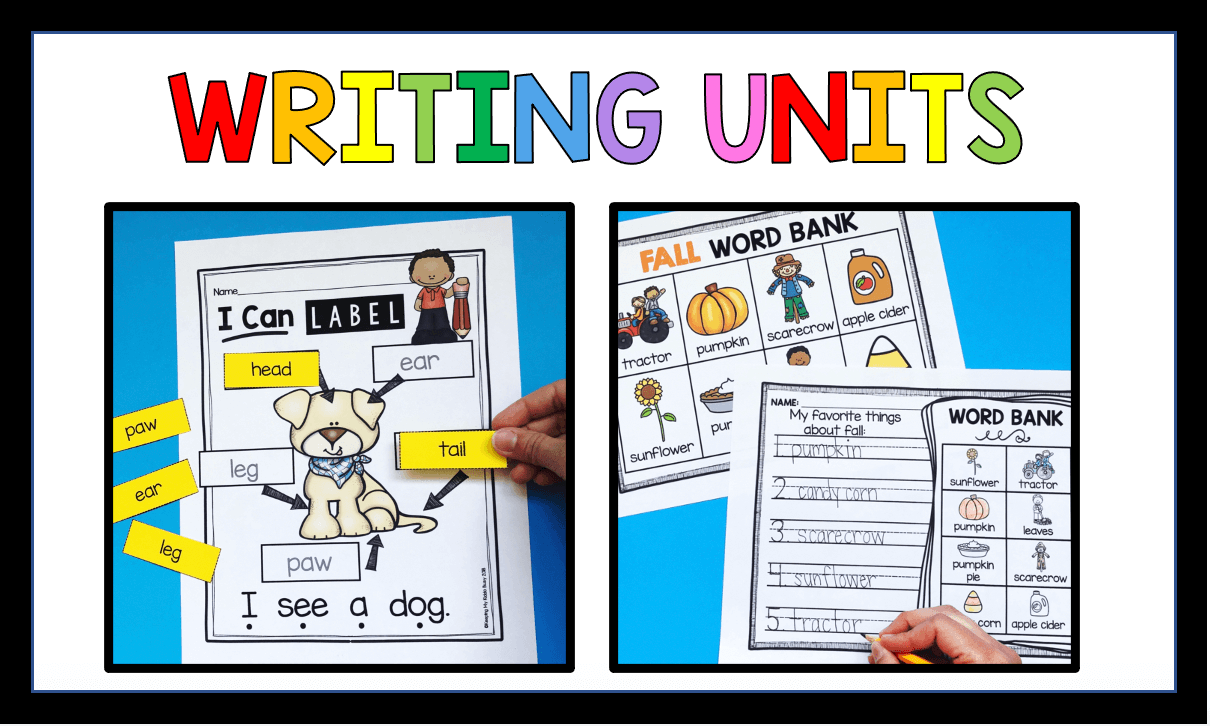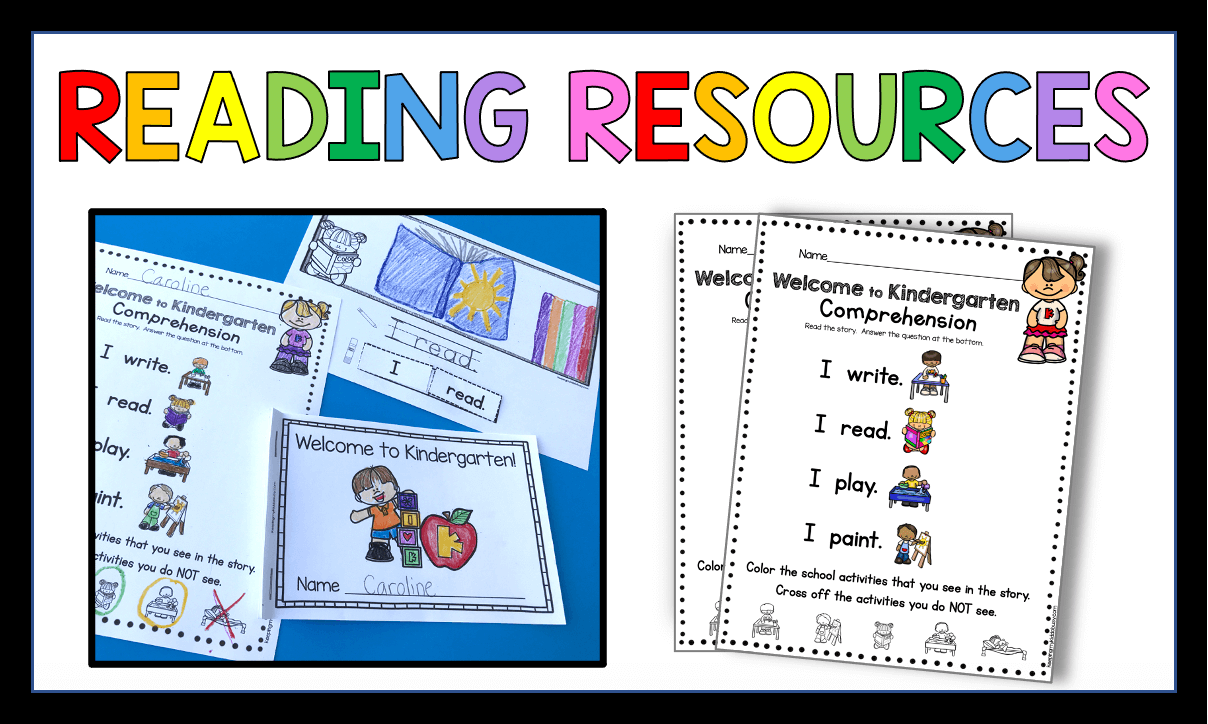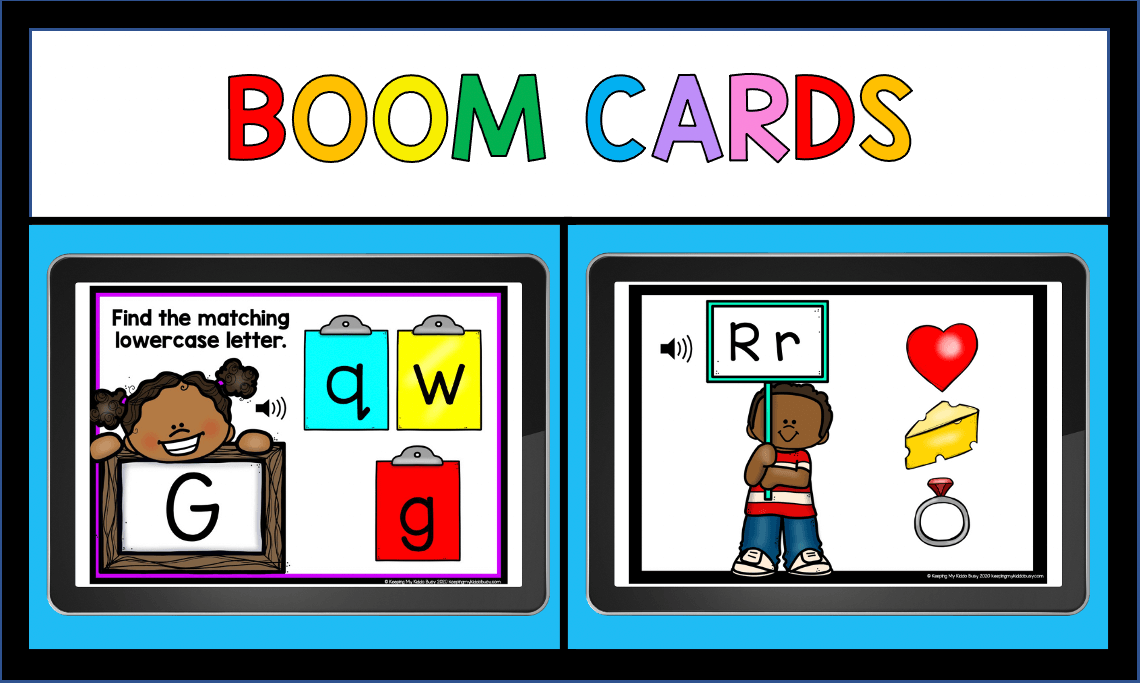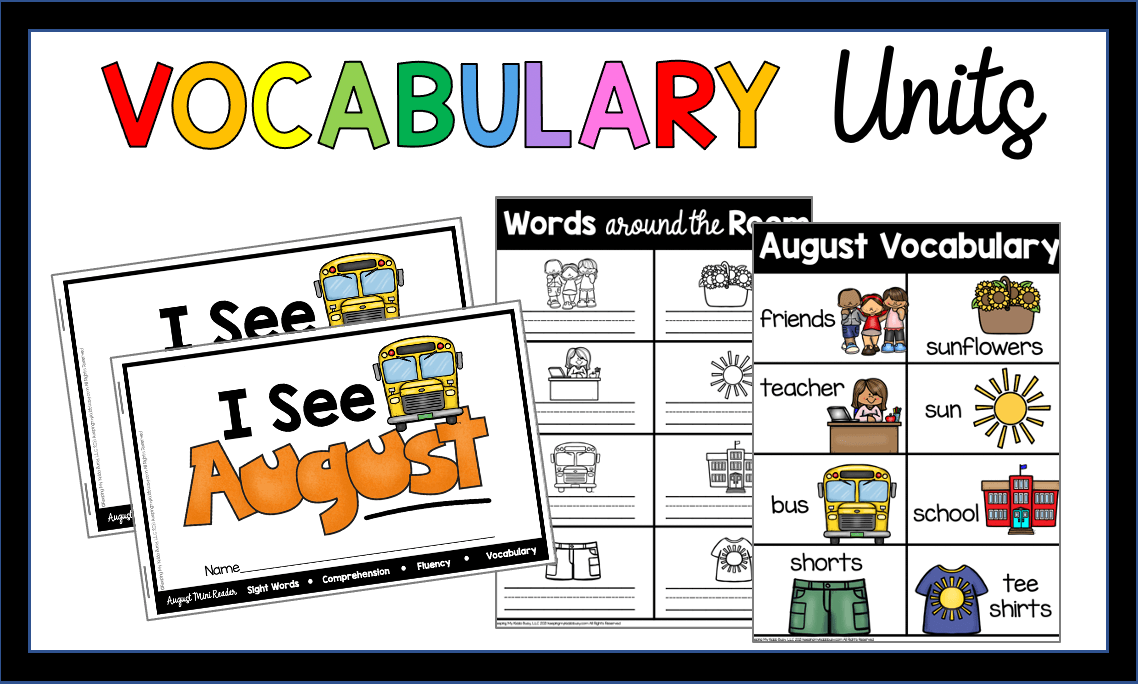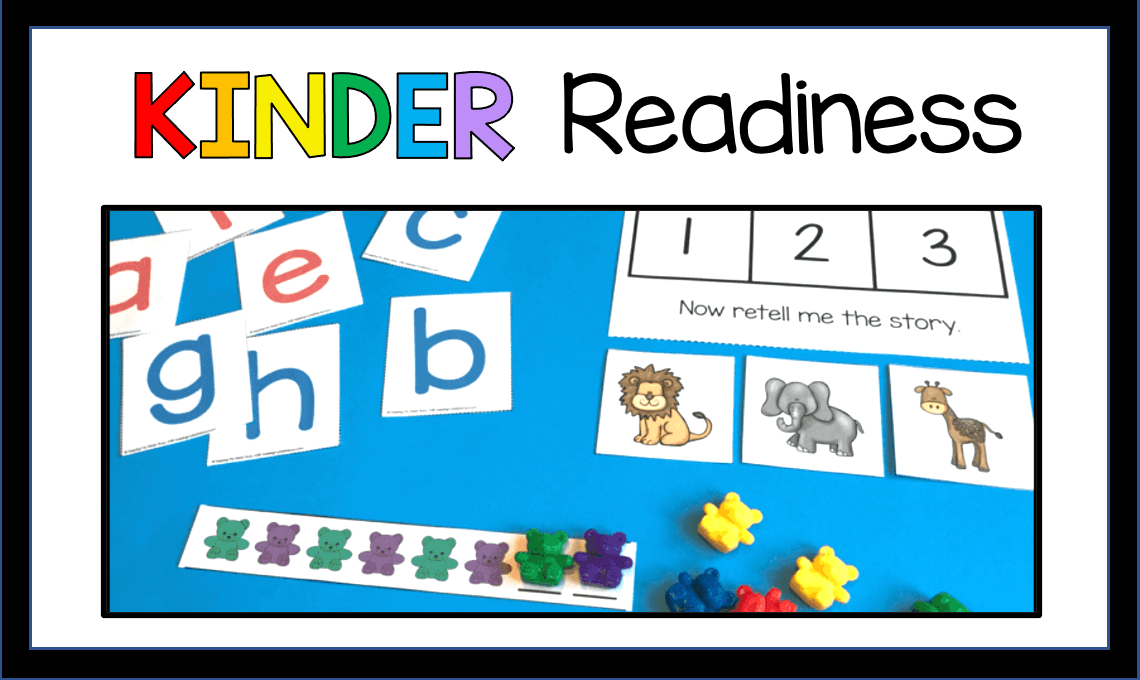All About Planet Earth - FREE Activities
ALL ABOUT EARTH
Get ready for a month filled with so many fun activities to teach your kiddos all about our planet Earth.
I teach this unit in April so it coincides with Earth Day.
I’ve loaded up this blog post post with read aloud book ideas, free videos you can share with your students, links to free resources, plus I am showing you how I implement this entire unit.
All activities are perfect for kindergarten and first grade kiddos. Many work well for Pre-K or even second grade too.
It is so much fun to teach, so let’s get started!
This page contains affiliate links. Read Full Disclosure
I use my All About Thematic Units to incorporate science and social studies into my primary lessons.
I love to use thematic teaching and capture my kiddos excitement to fuel our lessons.
Each month is a new theme (September was All About Apples, October was All About Pumpkins, etc.)
In April, we learn All About Planet Earth.
Each week, our lessons and activities focus around a specific theme and read aloud book shown above.
Over the course of this month, we learn about:
planet Earth and where we are in the solar system
how to use maps and globes
ways to help the earth
how to reduce, reuse and recycle
… and so much more!
Let’s dive into what we learn about each week!
WEEK 1 - HERE WE ARE
I start the unit with this adorable book called, Here We Are.
It is a great overview for little ones about planet Earth - where we are in the solar system, what planet Earth is made out of, it talks about land, water and air, where people live and how we should take care of our only place to call home.
As the title says… it is simply, “Notes for living on planet Earth.”
I love when I find books we enjoy on youtube too.
I read aloud the story first, and then later in the week I come back and show the video of the book to my students.
I feel like this really helps with comprehension, and it saves my voice as the week goes on.
After reading the story, we dive right into our unit slideshow.
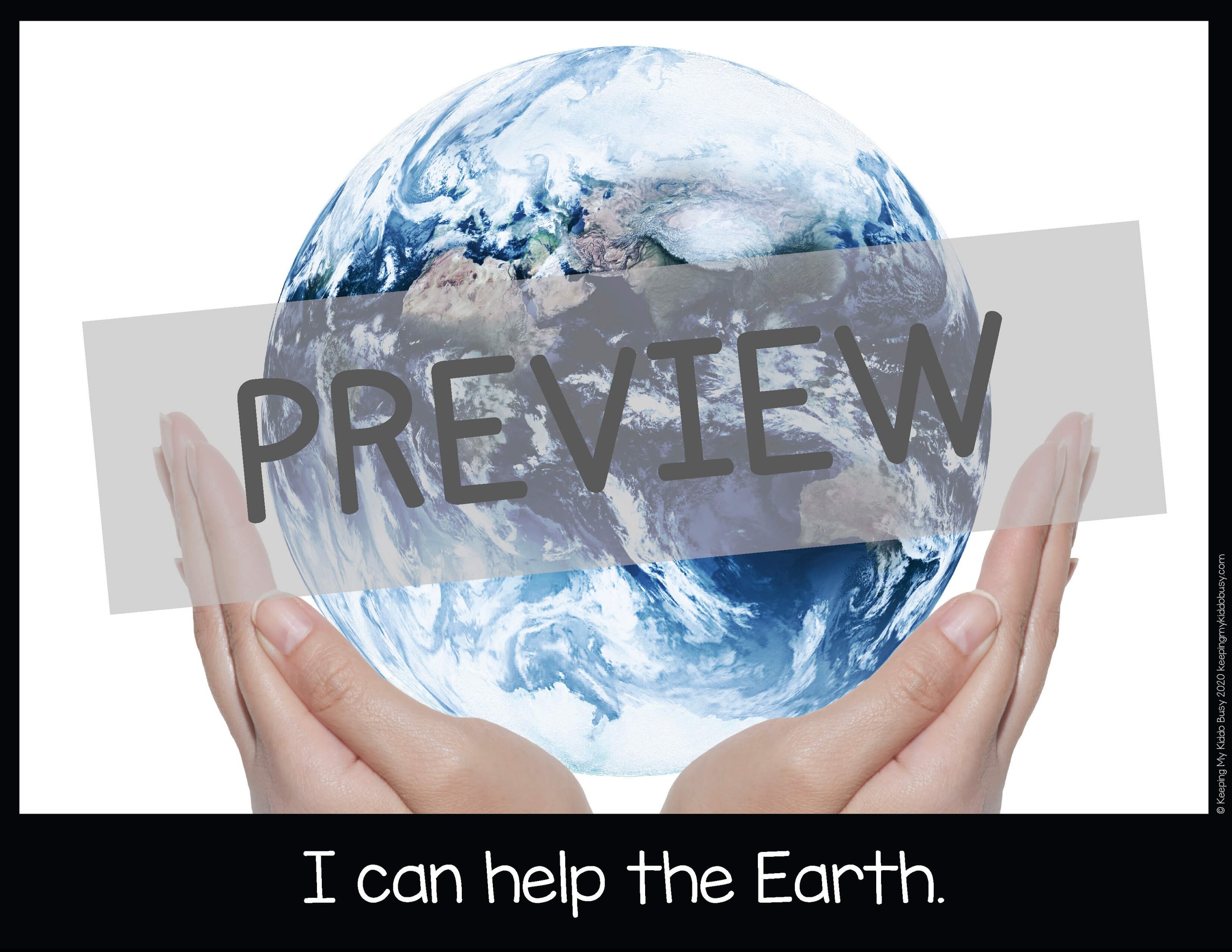
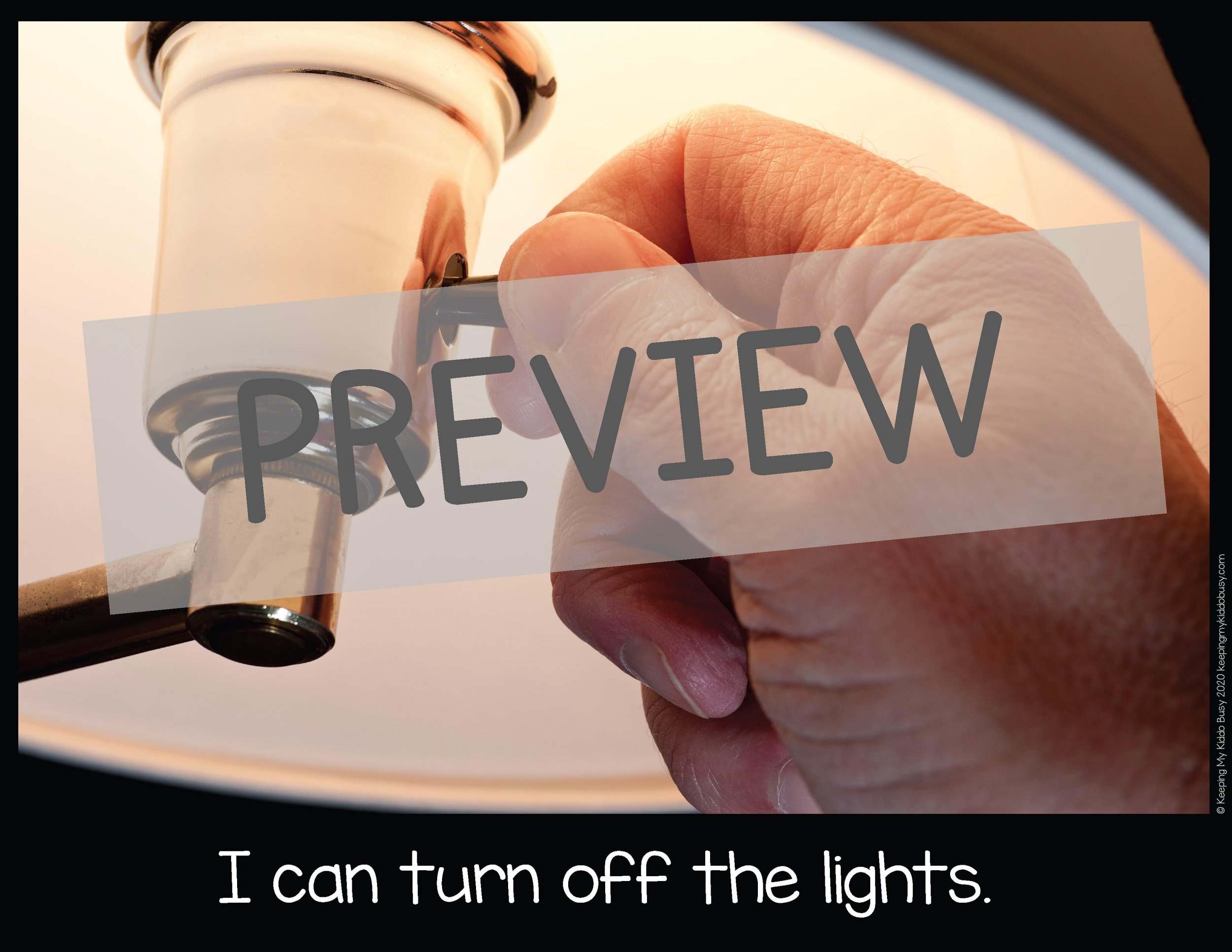
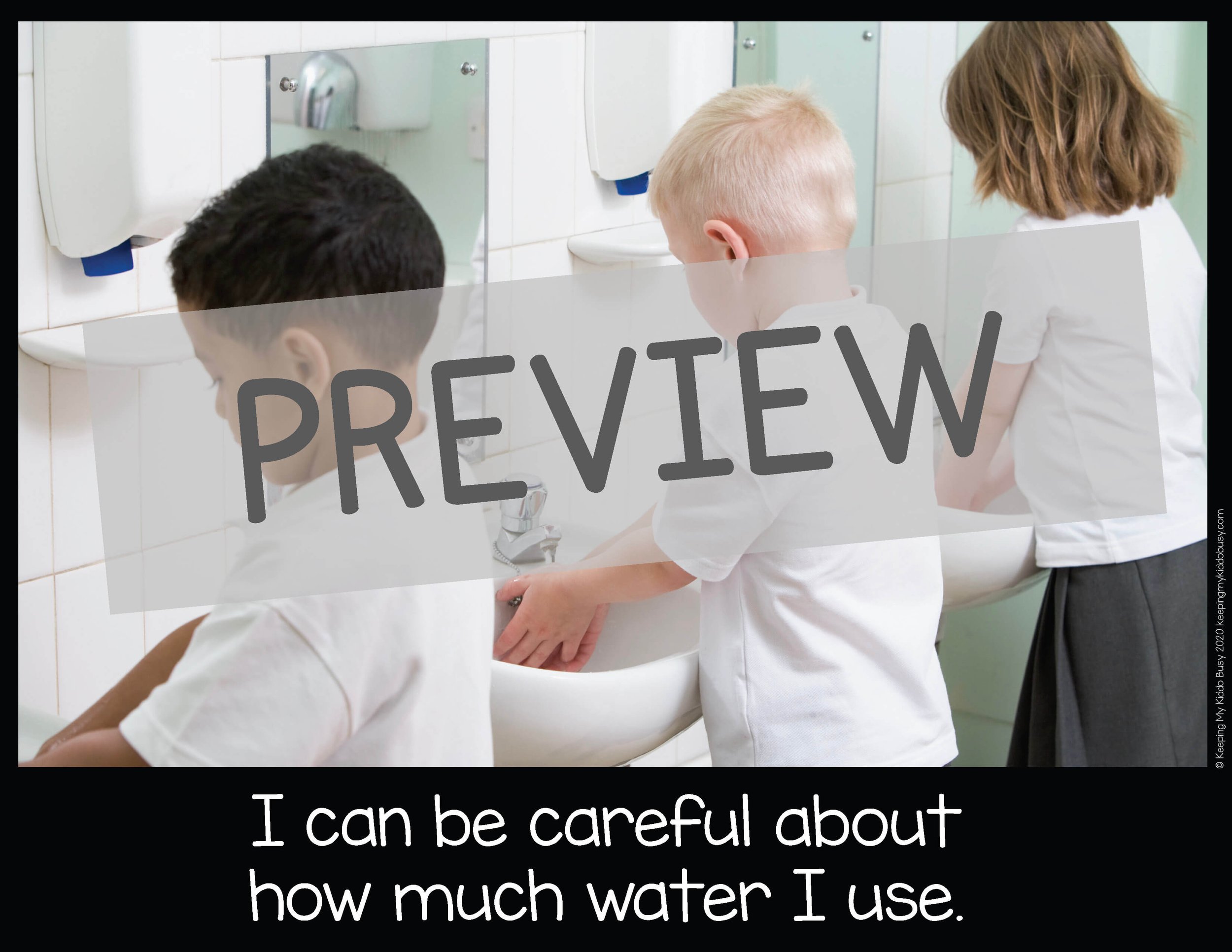
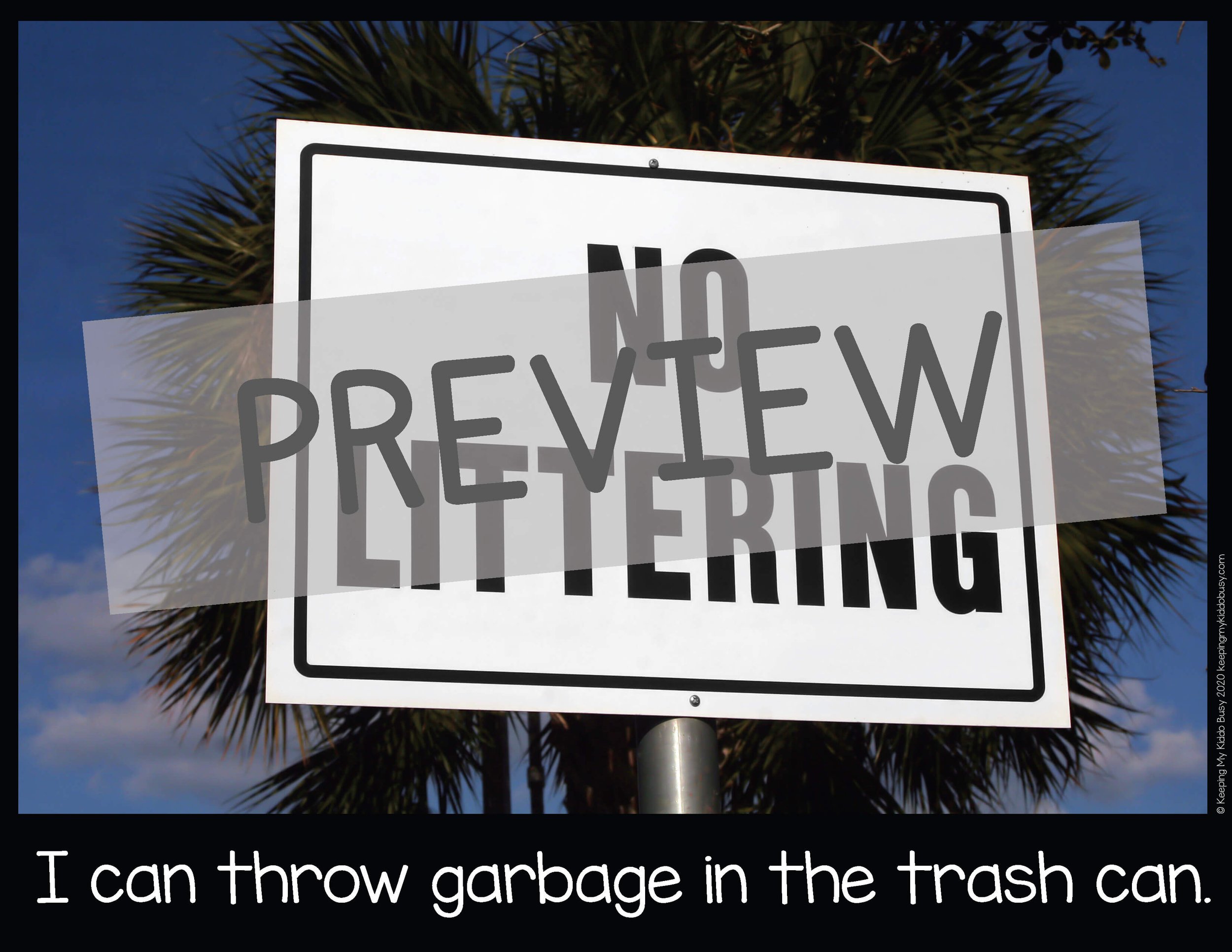
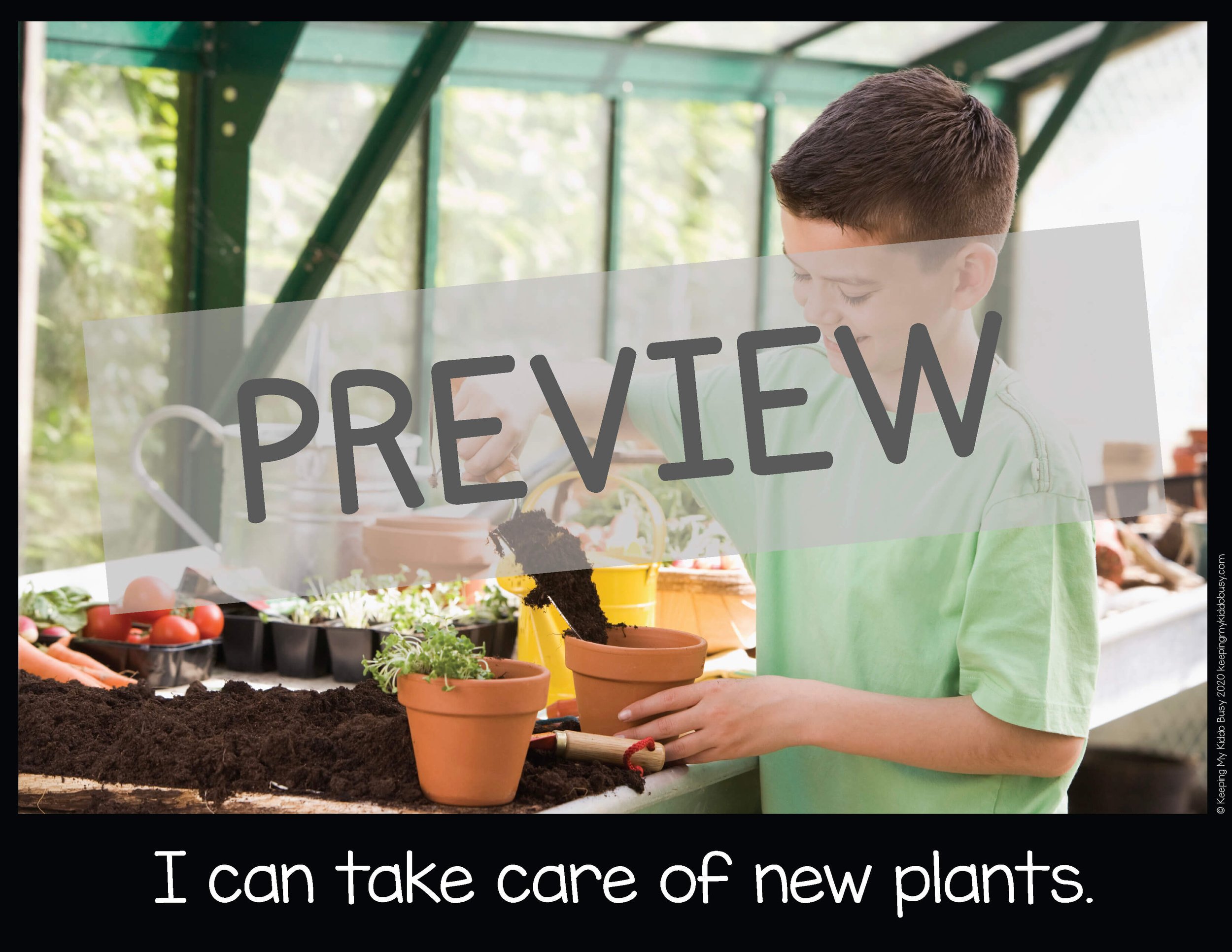
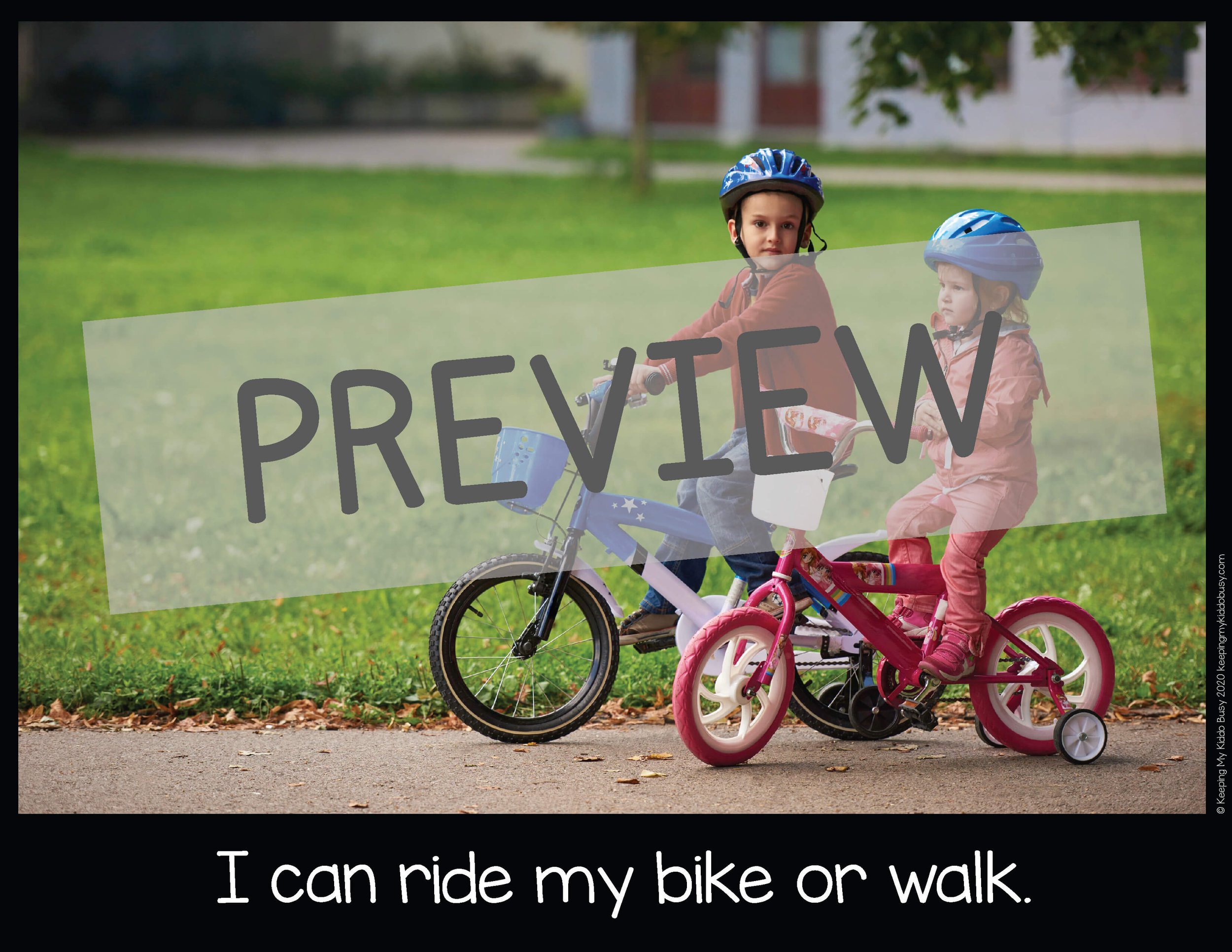
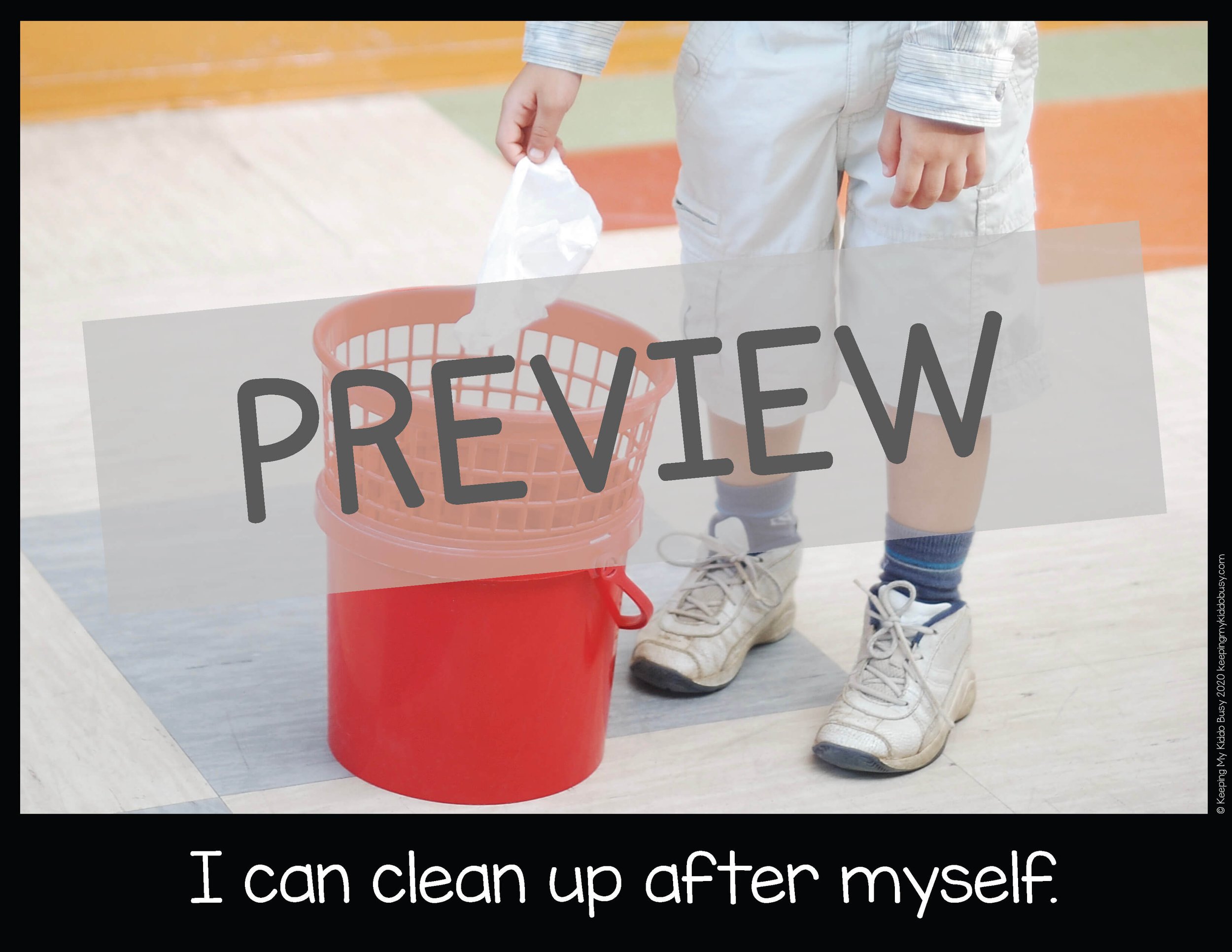
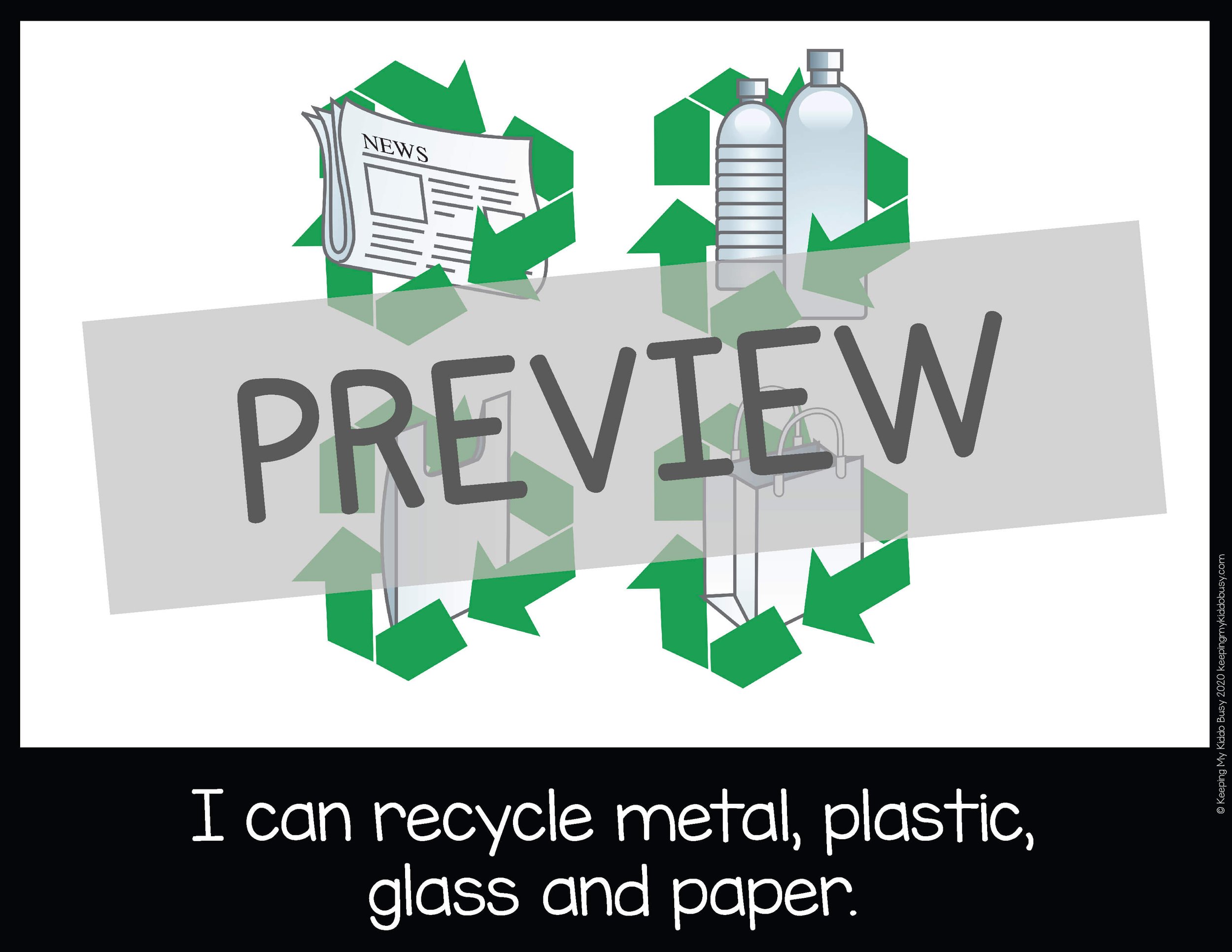
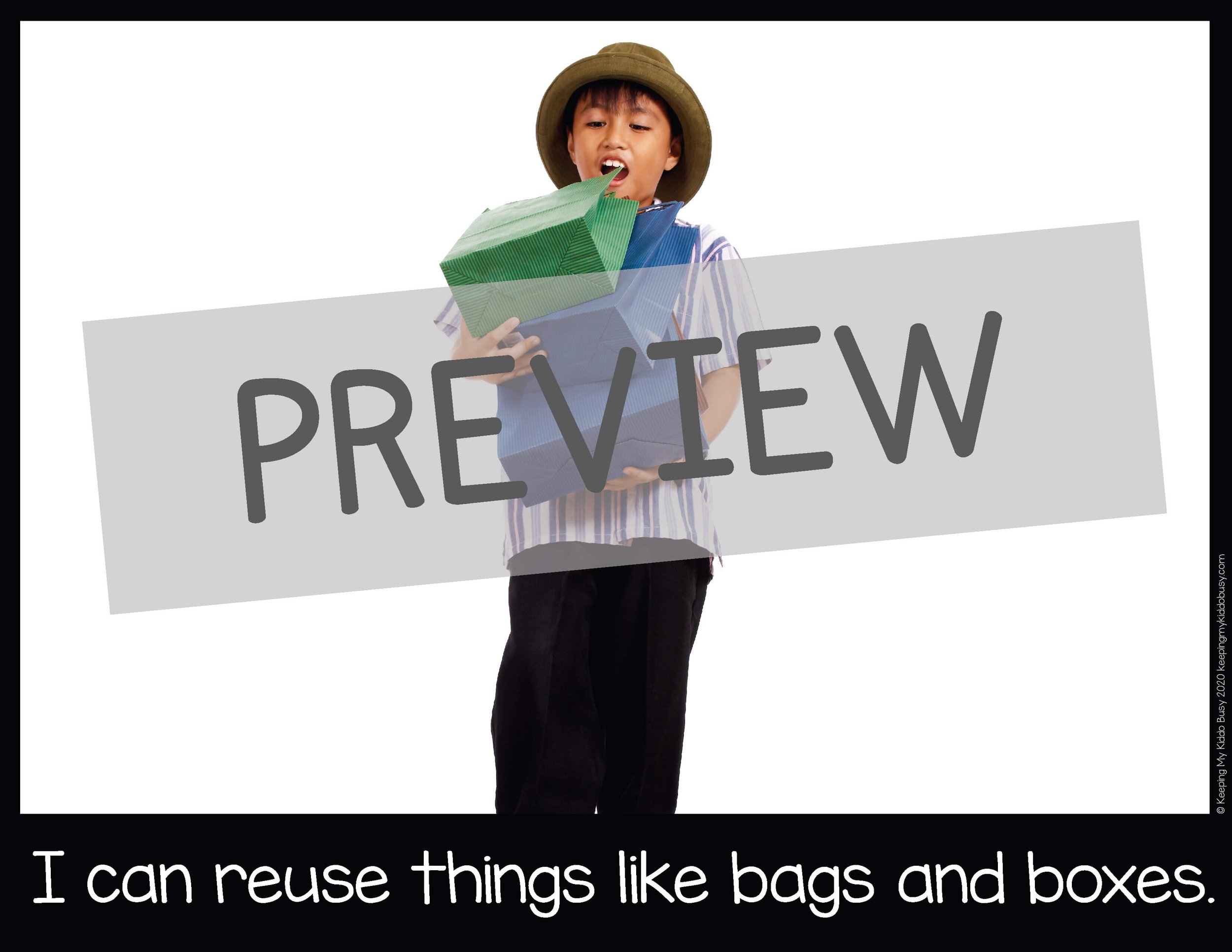
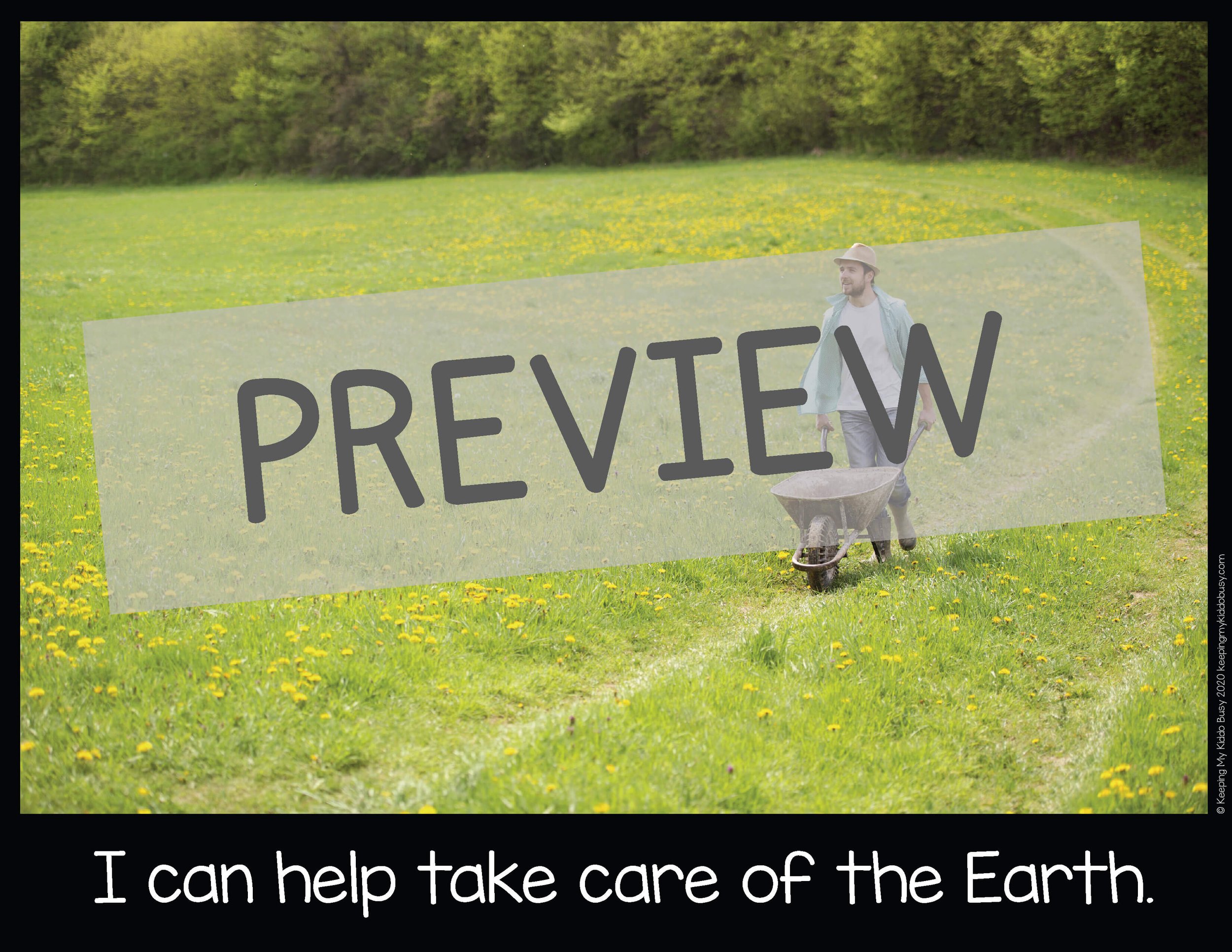
This slideshow comes in a PDF format and can be displayed from your computer on to your front white board.
This is the perfect way to:
build background knowledge
get students excited to learn about our planet
activate their schema
answer any questions
Students love the real life pictures!
I created an adorable mini book that coordinates perfectly with each slide.
I read the book first
We choral read it together
Finally students can color the pictures and buddy read
Next, we explore a few activities that support what we learned about in the story.
This gives students a good introduction, builds background knowledge about planet Earth, activates their schema.
We make a quick flip book about the planets, and where Earth is.
I teach them the saying, “My Very Excited Mother Just Served Us Noodles” to help them remember the order of the planets.
Students color and label the continents (two differentiated versions included) and we sing the continent song.
Your little ones will be humming this non-stop!
Put anything to a tune and it will stick in their brains.
This week is really about getting students excited to learn about planet Earth and giving students a broad overview of the planet to build their background knowledge.
Then at the end of the week we tackle the vocabulary we will be using throughout the unit.
The anchor charts come in both color and black and white.
The BW version has traceable words for students to write on.
This makes an easy, no prep literacy/social studies center or you can use it whole group.
These also tie in well with the theme we cover next week all about maps.
WEEK 2 - ME ON THE MAP
Have you read this book with your kiddos?
It is absolutely adorable, and a must have if you’re teaching your students about what a map is, how to use it and their special place on the map.
This week is so much fun, and may be one of my favorite themes to teach in this unit.
Have you noticed your students get so confused about the difference between a town/city, state, country and continent?
My kiddos have no clue about the difference… it is such an abstract concept for them.
This book, video and activities will help them learn the differences.
We love this story, and I tell my students we each have a special place on the map.
To start, I teach my students what a map is and how to use one.
Chances are they have seen a map and globe before, and we review our vocabulary charts from last week.
Maps help us see the world like a bird does - from the top looking down.
They help us find where we are going and shows us more about the world around us.
We labeled the continents last week, so students saw the world with oceans and land masses.
I teach my students what a compass is and why they are important. We practice north, south, east and west.
Then we dive right into learning about map grids. Students love these activities and we are practicing so many skills.
To start, I have to teach my students how to find specific grids.
This lays the foundation for many of the activities we complete this week.
I teach them how to go over to the correct letter (ABC) and down to the correct number (123) by following the Map Color Key.
Three different Color My Mini Map activities are included so students practice multiple times to build their confidence.
They feel like they are doing little puzzle and they love it!
Once my students have the hang of locating specific squares on the grid, the fun really begins with maps.
This is the first map we read:
The first mapping activity is very basic so students can practice finding specific squares on the grid and reading the map keys. They love these little “hunts” to simply fill in the correct square.
I have them write the letter first and the number second - for example A3 or B1.
The next step gets a little bit harder and I have students actually write answers to a couple questions like, “What is located in square A1?”
Activities build on each other and slowly get harder throughout the week as their mapping skills develop.
You can try one of these activities for free later in this blog post!
These cut and paste map activities are so fun.
Students cut and color the map places and follow the directions to place them in the right spot on their map grid.
For example, the movie theatre 🍿 is located at C3, so students cut out the popcorn symbol and glue it in square C3.
Students can also make their own map and simply color, cut and paste to design their own little town.
By the end of the week (or sometimes it takes us longer to reach this point) we are ready for maps of entire towns!
We have moved past the grid maps and we tackle using directional words.
Three towns like the one shown in this photo are included. We examine “Smithville”, “Parksville” and “Tinyville”. The setup is always the same, but each town has different arrangements of houses, a hotel, grocery store, library, hospital, etc.
You can print them front to back or on separate pages.
Students must use the map and the compass to answer the questions.
This is definitely done the first time whole group (or direct instruction small groups.)
Students absolutely love exploring these maps and answering the questions.
They feel so big!
I love that three maps are included, because they get so much out of repeating the activity with different towns.
Our last mapping activity is learning where My Place On the Map is!
We make these adorable flip books to show our place in the world.
Students can fill out their address (or just street name), their town/city, state, country and continent.
These turn out so cute and are such a fun way for students to understand the differences between these confusing terms.
All 50 states are included!
Please note: these flip books are only formatted right now for the United States.
WEEK 3 - I CAN SAVE THE EARTH
Earth Day generally falls in the third week of April.
This week we learn about Earth Day and ways I Can Save the Earth!
We talk about what hurts the Earth and things we can do to help the Earth.
This is very intriguing to the kids and engagement is awesome with these activities.
Students love to make connections with this story.
They are shocked when the little green guy named Max does naughty things like littering, overflowing the sink and leaving the TV on.
There are a lot of great lessons about how our behavior and activity effects others and our environment.
This story leads to so many great discussions and introduces vocabulary we will use over the next couple of weeks including reduce, reuse and recycle.
These anchor charts come in both color and BW, and the black and white version has traceable words.
We have so many fun ways to explore how to reduce, reuse and recycle.
I start by sorting the cards whole group so we can discuss and students know what all the pictures are.
After we do this, it can be moved to a center along with the cut/paste Sort and Categorize activity.
How cute is this writing craftivity for an Earth Day bulletin board display?
Trace students hands, cut them out and glue them to the Earth that they color/paint.
Then students with about how they pledge to take care of the world.
These are so adorable to hang up around your room for Earth day or in the hallway.
I love to see what the kiddos pledge to help the world. Seriously.. too cute!
Here are a couple other quick writing activities for Earth Day.
I love the scaffolding provided in our sentence builders.
By now my kiddos know the routine with these and get can get right to work.
Here in Idaho, it is totally hit or miss if we have a nice enough day during this week to get outside and do a nature walk.
My kiddos absolutely love doing this.
I give each student a clipboard with their check off sheet and we head outside to go exploring.
This is the perfect activity for Earth week.
We only spend about 20 minutes outside and then we come back in and discuss our findings.
WEEK 4 - WHY SHOULD I RECYCLE?
This week’s theme piggy back’s off last week.
We dig deeper into why we should recycle, what we should recycle and what composting is.
The content is not quite as rigorous as the previous two weeks, and this gives you time to play catch up too.
Depending on where you live, some kids are very familiar with recycling and other children have never heard of it.
Regardless of whether they recycle at home, this is an important topic to teach them about.
We sort cards based on whether we put them in the trash, we can recycle them or if they can be composted.
We discuss why it is so important not to just throw everything in the garbage.
Also included are blank cards so students can draw their own.
They can draw a picture of something that goes in the trash, something that can be composted and something they can recycle.
Then we follow up with the cut/paste sort and organize activity like we did last week.
This time students sort the pictures based on whether the pictures can be put in the recycling, compost bin or trash.
Two differentiated versions are included: one where students match the pictures and one they complete on their own.
How cute are these activities about hurting and helping the Earth?
We love Count, Compare and Write printables to enhance your thematic teaching.
We also love color by sight word activities, puzzles, missing words and count + graph all about the Earth!
⭐️ BONUS: I CAN READ & COMPREHEND ACTIVITIES ⭐️
I created these I Can Read and Comprehend activities for each week.
Plus there are passages for two different reading levels so you can easily differentiate in your class.
There are four themes: Planet Earth, Maps, Taking Care of Earth and Recycling.
I use each passage during the week it correlates with.
No prep for you and they can be used whole group or in small groups.
Watch this quick video preview:
If you only wish to purchase the mapping activities, you can find them HERE
Ready to get started with this complete unit?
“This TPT creator has been a game-changer for my classroom. With no guided curriculum, I am slowing growing our resources and seeing exciting results from my kindergarten kiddos!”
“Fantastic units. Easy to implement and perfect in content for my kiddos. Thanks!”
“Great product! Has a lot of content! I love it and so do my students!”
“I LOVE these units!”
“YAY! I've been waiting for social studies units and Keeping my Kinders Busy did not disappoint!!”
